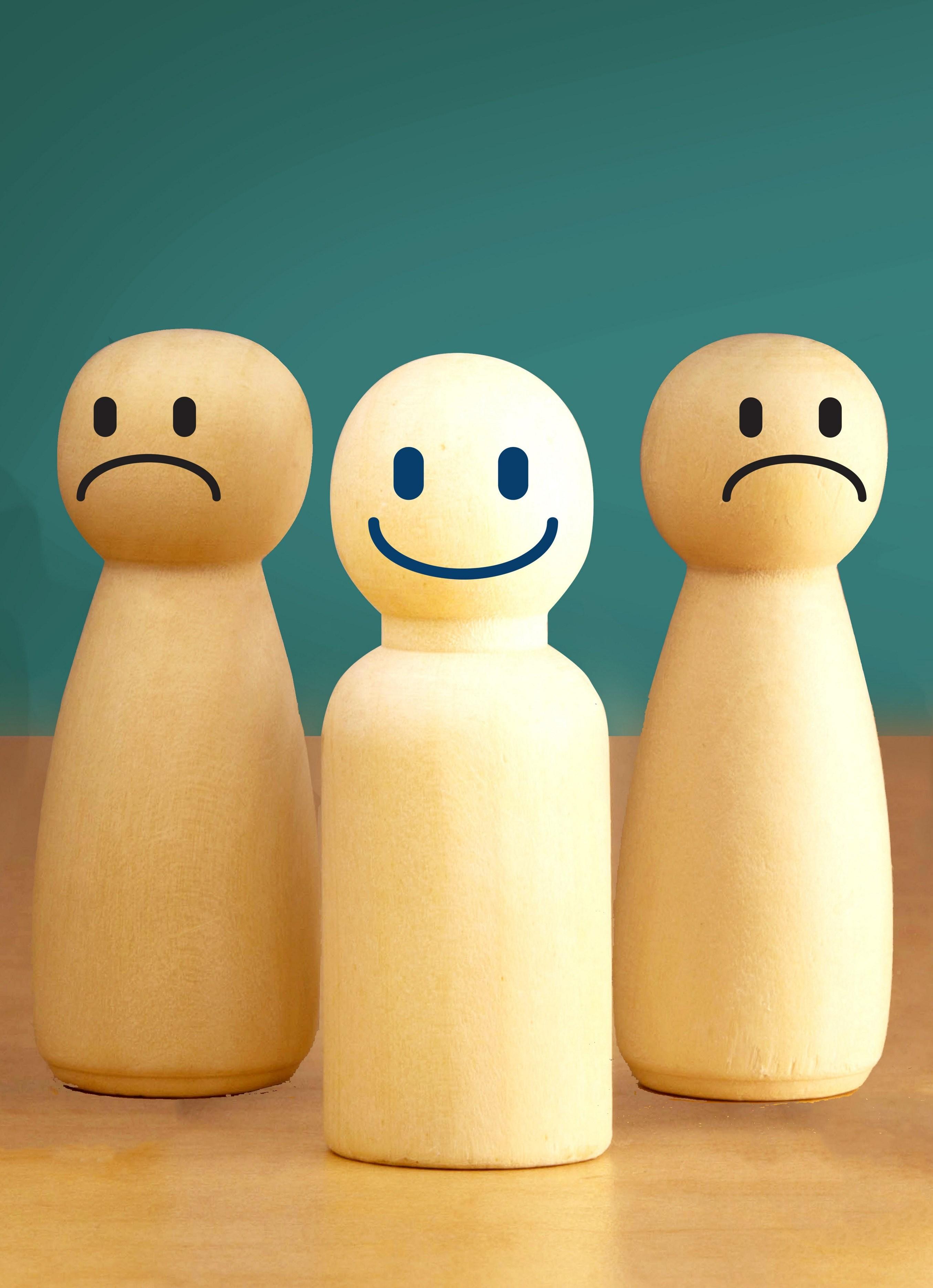



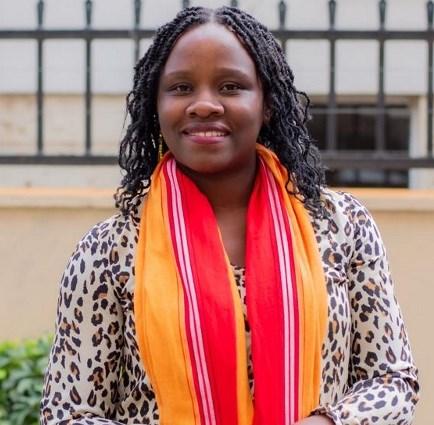
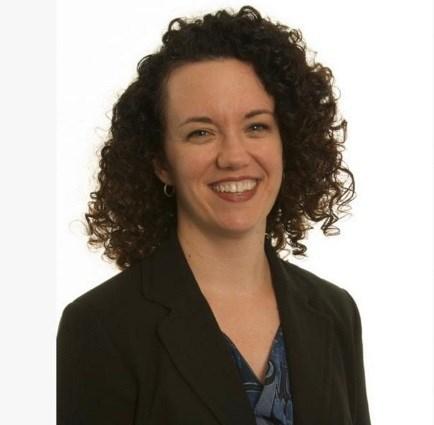
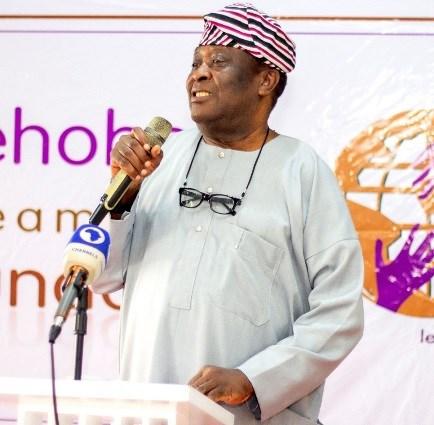
ISSUE OCT - DEC 2022 20
publication of rehoboth dream solid foundation (rdsf)
Cover Photo: Mental Health Edition


Dr. Folasade Hunsu
Department of English, Obafemi Awolowo University, Nigeria
Mr. Patrick Edebor
Editorial/publishing consultant. Owner, Patrick Edebor and Associates.
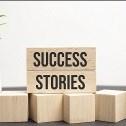



Mr. Akin Adejuwon
Curator, Institute of Cultural Studies, Obafemi Awolowo University, Ile-Ife.
Mr. Rotimi Lawuyi FCA Owner, RAMA Editors.
Dr. Mrs Olayinka Opadiya Senior Pastor, Every Nation Church Sydney Australia.

Mrs. Abimbola Komolafe Founder/Executive Director, Rehoboth Dream Solid Foundation.
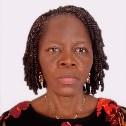
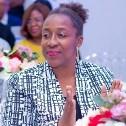


@2022. Thinking Aloud Magazine, a publication of Rehoboth Dream Solid Foundation.
All rights reserved. No part of this publication may be reproduced, distributed, or transmitted in any form or by any means, including photocopying, recording, or other electronic or mechanical methods, without the prior written permission of the publisher, except in the case of brief quotations embodied in critical reviews and certain other non-commercial uses permitted by copyright law.

THINKING ALOUD | OCT - DEC 2022 2
Mrs
Mrs
Ms
Pastor
Mrs
Editor Bimbo Komolafe Publication & Design Benjamin Eze Project Manager Tomi
Project Team Edison
R D S F
Rear Admiral (Rtd) Oladeinde Joseph, Chairman, Board of Trustees
Pharm.
Samson Igbokwe
Roseline Igbokwe
Ronke Osikoya
Ketumi Alasa
(Dr) Joshua Opadiya Dr (Mrs) Yinka Opadiya
Abimbola Komolafe Rear Admiral (Rtd) K O Komolafe
Olatunde-Idowu
Egere Othniel Komolafe Grace Adoga Celestina Osiki Dorcas Adekunle Amarachi Uduma CONTENTS
Dear Readers,
I welcome you to another interesting edition of the Thinking Aloud (TA) Magazine produced by Rehoboth Dream SolidFoundation (RDSF).
This edition is dedicated to Mental wellbeing and psychosocial disabilities, and we spoke to two people experienced in these areas. We interviewed Dr Marcy Verduin, a leader in psychiatry and medical education. She is the Associate Dean for Students and a tenured Professor of Psychiatry at the University of Central Florida College of Medicine. A distinguished Fellow of the American Psychiatric Association and the Association for Academic Psychiatry, she shares her wide experience in mental wellbeing, explaining to readers in simple language how to deal with mental health issues.
We also interviewed Ms Elizabeth Ombati, a disability rights advocate and an International Disability Alliance Fellow who focuses on psychosocial disabilities. The interview will help people understand the problem, possible solutions, where to get help andgenerally make readers aware of how to offer supportto people inthis situation.
Our partners and financial sponsors will be glad to know that their continued support is instrumental to the accomplishment of many young people. We are proud to share success stories from two past beneficiaries of the RSDF bursary scheme. In this edition, we feature testimonies from Ms Rachel Ige; a lawyer and from Dr Oluwabukola Modupe Falade, a medical Doctor. For Dr Falade, a chance meeting with RDSF in 2019 was the saving grace that helped her avoid an extra year in school. In Rachel’s case, her academic pursuit was threatened by the sudden passing of her father four years to his retirement, butshe was assistedby a timely intervention from the RDS foundation.
Our Special Feature for this edition highlights the 2022 Teachers’ excellence awards and readers will be delighted to read how the RDSF honoured teachers and the reactions from these teachers.
The health article this quarter is titled ‘better kidney health for children’ by our guest writer Dr Mrs Sylvia Olomu. She is a Paediatric Nephrologist and head of Paediatric nephrology unit at the Irrua Specialist Teaching Hospital Irrua.
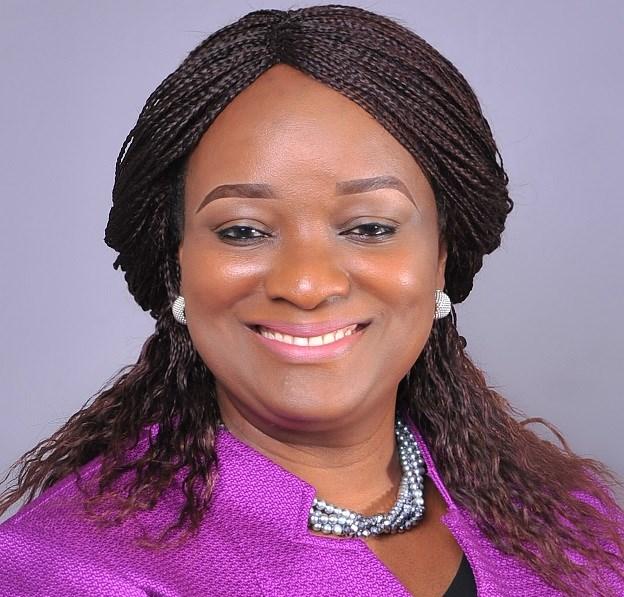
Finance corner brings attention to the possible investment options for low and high income earners. FCBK explains ‘there is no reason not to be investing’ as investing is the key to financial freedom.
Do have a pleasant reading experience and remember to show some love by sharing this magazine with your contacts andlovedones.
I wish you all a successful 2023. connect with us on social media thinkingaloudmagazine

 Bimbo Komolafe Editor
Bimbo Komolafe Editor


3 A QUARTERLY MAGAZINE
ISSUE OCT - DEC 2022 20
R D S F
EDITORIAL
FREEDOM FROM PERFECTION
“Everyone looks perfectexcept me!” she declared.
A typical response to a young person struggling with poor self-image is to attribute this to social media. Undoubtedly, for many people social media has a significant impact on their self image. However, I was recently challengedby my own contribution to this.
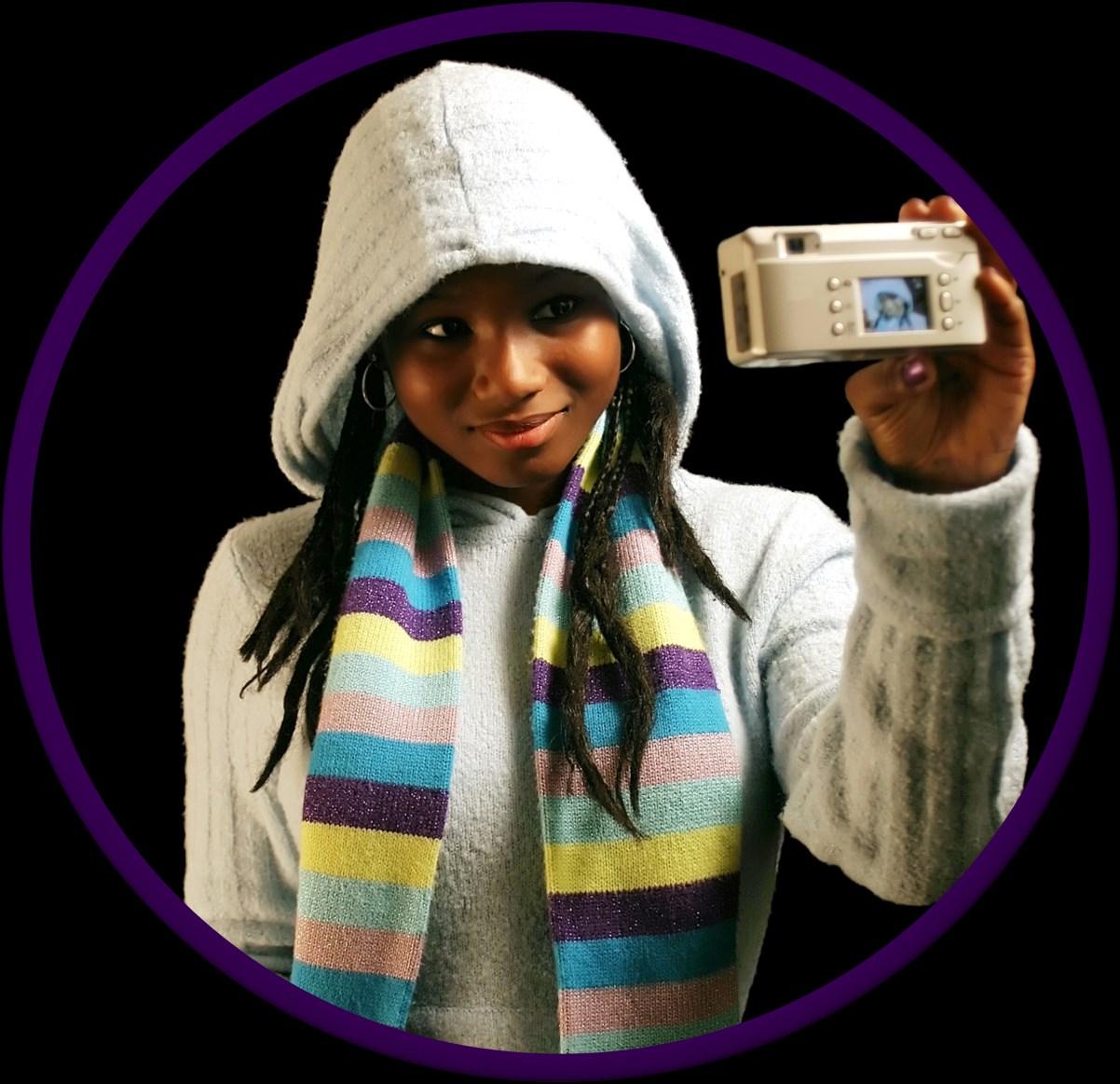
I recognise that I do not have the stereotypical perfect body shape dictated by the western society. However, through my choice of accessories, colours and patterns, I have learned to conceal undesirable parts. Thus, to the uninitiatedeye, I look “better” than I really am.
There is a discussion to be had around putting one’s best self forward versus being real. Personally, I don’t think these two approaches are mutually exclusively. Rather, I believe that we can make room for both approaches. This goes far beyond how we dress. It is a philosophy - can we accept and reveal ourselves as we are, even if we are working towards being better?

As parents, do we have a duty to let our children see our shortcomings and imperfections whilst we strive for better? Values are not taught but caught. Children learn from how they see us behave and what values we prioritise. If we don’t expect perfection from our children, how can we show them?
Naturally, the age and maturity of the child ought to be taken into consideration. What is appropriate disclosure for a teenager may not be appropriate for a toddler. We don’t need to disclose for the sake of disclosure. The impact on the childandpurpose of the disclosure matter.

Nonetheless, I consider attributes such as honesty worthwhile regardless of the child’s age. For example, apologising for mistakes. Saying to your child, “I am
sorry, I was wrong” can feel like a challenge. It can feel risky – if you admit failure in one area, how can they trust or respect you in other areas? However, apologising can serve many purposes.





Firstly, it is an acknowledgement that you are human and don’t always get things right. It declares that it is okay to make mistakes. Secondly, it teaches accountability. Children learn to be accountable for their actions and how to move on frommistakes.
Another important benefit of saying sorry to your child is that it positively impacts your relationship. It builds trust between both of you. The child can trust that you will be honest with them even when it is difficult. It builds connection with them as you take the risk of being vulnerable.
As for me, I have not totally transformed how I dress. However, I am becoming more comfortable allowing myself to be seen as I reallyam.
BisiOlayeis atrained counsellor andon the boardof governors fora primary school in England. She is passionate about childrenandyoung people, and has experience working with them in different capacities including mentoring and counselling. She is a mother of three children.

THINKING ALOUD OCT - DEC 2022 4
Another important benefit of saying sorry to your child is that it positively impacts your relationship. It builds trust between both of you.
R D S F
UNDERSTANDING INVESTMENT OPTIONS FOR ALL INCOME LEVELS


put something away towards savings and investments. To identify possible areas where you can save money, you must work with a Budget. Do not be in a hurry to 'reap' from your investments. There is a Japanese proverb that says 'Money grows on the tree of patience'. When you bear this in mind, you will not rush into wrong investment decisions. When investing, especially if you are just starting the investment journey, work with a professional.
Anyone and everyone can have investments. There are investmentoptionsforallincomelevels. Many people haven’t started on this investment journey and are not paying attention to building an investment portfolio for many reasons. They have all sorts of excuses ranging from lack of knowledge, low-income level, fear of taking risks, current indebtedness, to lack of financial discipline. If you are one of such people, I ask you to PAUSE andhave a change of mindset.
The first step is to build up your savings which you can then channel to available investment opportunities. No matter your income level, you can put something away as savings towards your investment portfolio. Depending on funds available to you, your investment portfolio should be spread across 3 markets; Money market, Capital marketandRealestatemarket

When you look back, are you pleased at the actions you have taken, or do you wish you did some things differently? The good news is that it is never too late to take the right actions to grow your money. In this article, I want to share some tips about investing. I want to remind you that to grow your wealth and achieve financial freedom, you MUST be INVESTING your money.
InvestingisthekeytoFinancialFreedom

Financial Freedom is achieved when you have enough passive income to meet your current and future financial needs. Passive income is income earned that doesn't require you to do a lot of “active” work to earn. It is income earned when your money ‘does the work’ and this is often from money INVESTED. Your goal should be to reduce reliance on ‘active income’ and increase reliance on your ‘passive income’ to pay for your living expenses. You need to INVEST to earn passive income which will move you to the level of Financial Freedom. You must remember this and make effort to take some action towards investing.


Anyoneandeveryonecanhaveinvestments
Contrary to what many people think, you do not need a lot of money to start investing. There are investment options for all income levels. People do not invest because they are wealthy, they are wealthy because they invest! No matter your income level, you should regularly
If you live in Nigeria, you can begin your investment journey with as little as N5000 (five thousand naira). Unbelievable right? Let me share some investment opportunities that show you can invest irrespective of your income level.
INVESTMENTOPPORTUNITIESFORLOW INCOMEEARNERS




Stocks: You can open an account with a stock broking company and fund your account periodically (monthly/ quarterly/annually) as it is convenient. You can then subsequently instruct them to buy shares on your behalf. You can begin this investment withas little as N10,000.
Fixed Income: You can invest in the FGN savings Bonds, and this allows investment from N5000 and in multiples of N1000 thereafter.
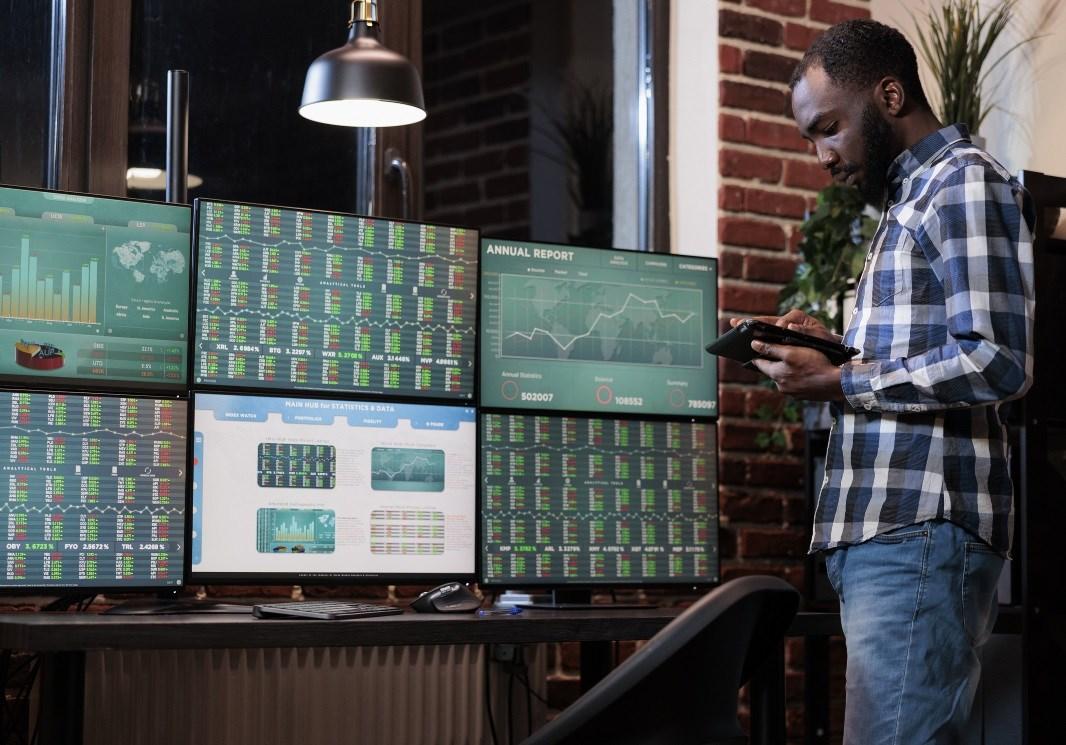
| 5 A QUARTERLY MAGAZINE
No matter your income level, you can put something away as savings towards your investment portfolio. Depending on funds available to you, your investment portfolio should be spread across 3 markets; Money market, Capital market and Real estate market.
R D S F
Naira Mutual Funds: You can open an account with a finance institution and fund your account periodically as it is convenient. Most of the institutions will allow you startwithN10,000.
Dollar Denominated Mutual Funds: Dollar denominated mutual funds allow you to conveniently invest and earn returns in foreign currency. Depending on the financial institution, you can invest withas little as $100.
Foreign stocks/shares: Stocks have a history of providing high potential returns over time. If you are based in Nigeria, this should not be a limitation as there are many reliable platforms thatallow people resident in Nigeria to invest in foreign stocks with as little as $100.
When you invest in a CP, you are lending money to the issuer of the CP via the bank or institution helping them raise the funds. CPs are usually raised for funding a new project. The investor must be careful to know the history of the company trying to borrow money via CP.
Real estate: Buying properties and leasing these out has been proven to provide steady rental income. Though capital intensive, if the property is located in a good area that easily attracts tenants, the investor will be smiling to the bank.
Letmealsosharethreeofmygoldenrulesforinvesting

DIVERSIFYyour investments - Do not put all your eggs in the same basket. Do not put all your funds in the same investment class. Spreadyour risk around.
STAY INFORMED - Do not invest if you do not understand.
DON’TFOLLOWTHECROWD– Don’t invest in an option because someone did. Invest based on your financial targets, your personal circumstances and your risk appetite.



INVESTMENTOPPORTUNITIESFORHIGH INCOMEEARNERS
In addition to the investment opportunities available to low-income earners, high income earners can invest in the following:
FGN bonds: You can also invest in the FGN savings bonds subject to a maximum of N50mlnper investor.
Eurobonds: Eurobond is a type of bond issued in a currency that is different from that of the country or market in whichit is issued. If you want to invest directly via the primary market, the minimum investment amount for Eurobond is $200,000. You can however invest in lower amounts via the secondary market.


Dollar Denominated Mutual Funds: Dollar denominated mutual funds allow you to conveniently invest and earn returns in foreign currency. The funds invest mostly in Federal Government and Corporate Eurobonds. This investment is low risk and there is no cap on what you can invest.
Treasury bills: Treasury bills are promissory notes issued by the government cum central bank to raise funds and control the money supply. They are the safest class of investments as the risk is very low being issued and backed by the sovereignty of the nation. Investment in the primary market starts at N50mln while you can buy lower volumes from the secondary market.
Commercial papers (CP): These products usually attract higher interest rates as they are typically issued by banks or corporations to meet short-term financial obligations.
Remember, BE PATIENT. Make investment decisions bearing in mind that ‘money grows on the tree of patience’.
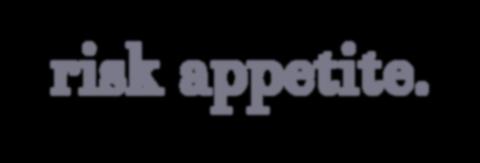

BimboKomolafeFCA, FCIB writes from Lagos. She is a CertifiedFinancial Education Instructor, a Fellow of the Institute of CharteredAccountants of Nigeria anda Fellow of the CharteredInstitute of Bankers. She teaches financial literacy across FinanceCoachBK platforms. Follow her SM handles for daily tips to help you achieve financial freedom andgrowyour wealth.
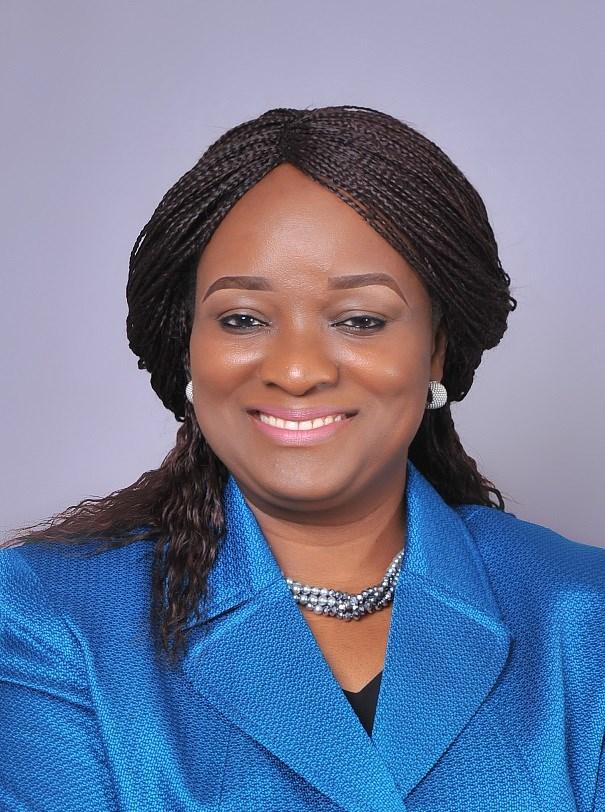
Instagram:@Financecoachtoday
Twitter:@FinanceCoachBK
Website: www.FinanceCoachBK.com
Facebook:Finance coach money andwealth

THINKING ALOUD OCT - DEC 2022 6
Don t invest in an option because someone did. Invest based on your financial targets, your personal circumstances and your risk appetite.
R D S F
AS WE GROW OLDER
Seven Tips to Maintain Relationships with Parents and Grandparents

1. Check up on them: Especially if you reside a long distance from them. If you're extremely busy, you could even set a reminder on your phone, choose how frequently you want to call, and put it on your to-do list.
Call and find out how their business is going, how their job is going, ask about their health, and let them know that you are still very much interested in their lives.
One of the things that makes my grandmother very happy and keeps her healthy, according to a statement she once made, is hearing from me, my siblings, and my cousins. It wouldn't hurt to make their final years special since we know for sure that our parents and grandparents are getting closer to their glorious exits.
2. Keep them updated: By so doing you are carrying them along and fostering a sense of belonging and trust. Your parents shouldn’t be hearing about major events in your life from a third party.
In our world today, there is a tendency to consume a lot of material about fostering and developing relationships with people of the other sex. Other relationships, particularly friendships and family relationships, may suffer in our efforts to maintain relationships with our partners and achieve "couple goals."

Preserving relationships with our parents and grandparents is the primary focus of this article.
It’s the joy of every true parent to see their child succeed. It is a greater joy when the child recognizes, acknowledges, and values the parents as they grow older. From birth, our parents nurture us, however, we grow and life happens, then we move far away from our parents and build our own lives.
In most parts of the country, it is typical for parents and grandparents to reside in villages while the children build their adult lives in cities. It is very possible and especially bad to become so engrossed in the hustle and bustle of life that we give our parents progressively less time, calls, visits, and overall attention.
The good thing is that it is also very possible and especially right to carry our parents along with our lives, even from a distance. It only requires a willing heart, and your level of relationship with them will also play a role.
3. Pray for them: You pray for who you love, if they are dear to your heart, then they should be on your prayer list. Write it down if you must, pray for their business, job, and their health. There’s something special about a child’s prayer for a parent and a grandchild’ s prayer for a grandparent.
4. Celebrate them: Life is short, you don’t have to wait till you lose a loved one before you celebrate them. Celebrate the living, show them that you care while they still live and can appreciate you.
You don’t have to wait till there’s a burial to show up, spend all the money and have regrets, you can spend the money and love on them now that they are alive. Birthdays and wedding anniversaries are a great opportunity to celebrate our parents and show them love.
5. Visit them: Yes, you are busy, and your schedule is very tight, but you should make time to visit your parents or rather have them visit. They may be going through a really challenging phase of their lives, especially if they live alone.
One minute, children are racing through the house, and the next, they have all left to start their lives. Always make time to see them or extend an invitation for them to visit. You can make arrangements to take your children to see your parents, every real grandparent loves to have their grandchildren around.
6. Understand them: It’s not abnormal to have arguments with our parents and get angry with them.
7 A QUARTERLY MAGAZINE
R D S F
They are witnessing a rapidly evolving world, and it may be difficult for them to understand how the modern world operates. Being on my phone is, in my grandmother's opinion, a waste of time. I do not get annoyed by that, it is her own way of looking out for me. Most times our parents provoke us, mostly because of their expectations of us, but there’s always love in the background. Understanding is key. In the end, they are still the parents that love us, and we owe them our honour and respect.
7. Give: As much as it is within your capacity, give to your parents. Do not be the person that stays a whole year without doing anything for your parents. It doesn't have to be too much, you know what works for you. Occasional credit alerts and airtime recharge might reduce the risk of high blood pressure. Even if they are billionaires, the periodic act of kindness from you will gladden their hearts.


Finally, as you grow older, your well-being during old age should be a top priority for you. A popular French proverb says, "as you make your bed, so shall you lie on it”. Planning is essential for everyone, especially young people.
Create strong bonds with your children today, put structures in place, build their financial and emotional capacity, and instil family values in them, so when they become adults, and you become a parent or grandparent, they won't struggle with maintaining family relationships.
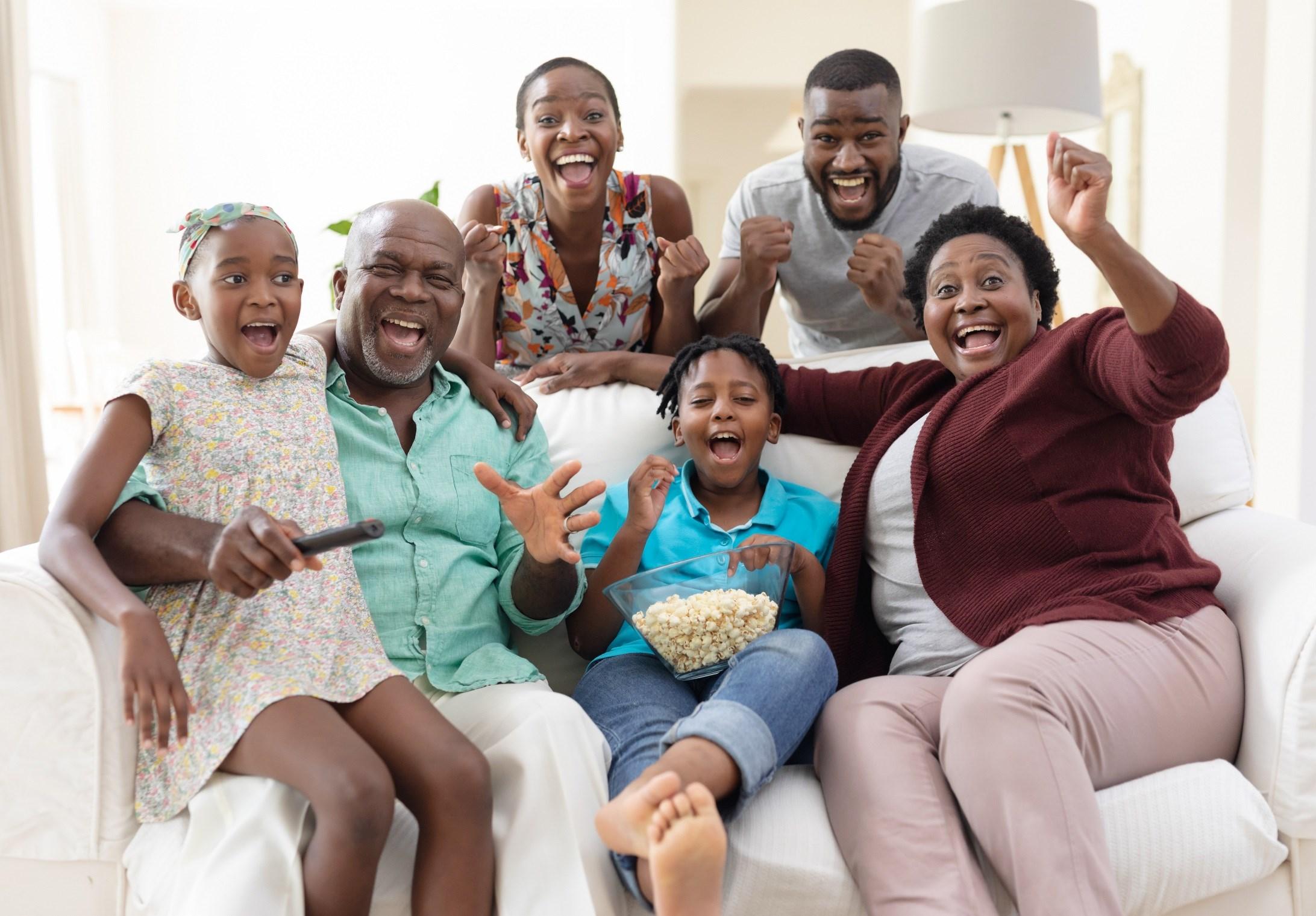
implore you to check on your parents and grandparents today, make that call, send that text message. Cheers to growth, and a better relationship with our parents and grandparents.
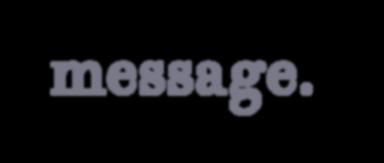

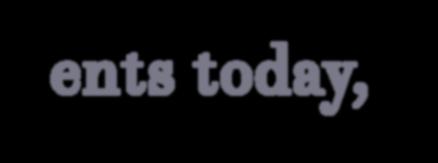

Amarachi Uduma writes from Abeokuta Nigeria. She founded Aglow Blog (www.aglowblog.com) in 2018 to share her writings with the world. She currently runs Aglow Editorials, where she offers top-notch editorial services and is reachable via Instagram @agloweditorials
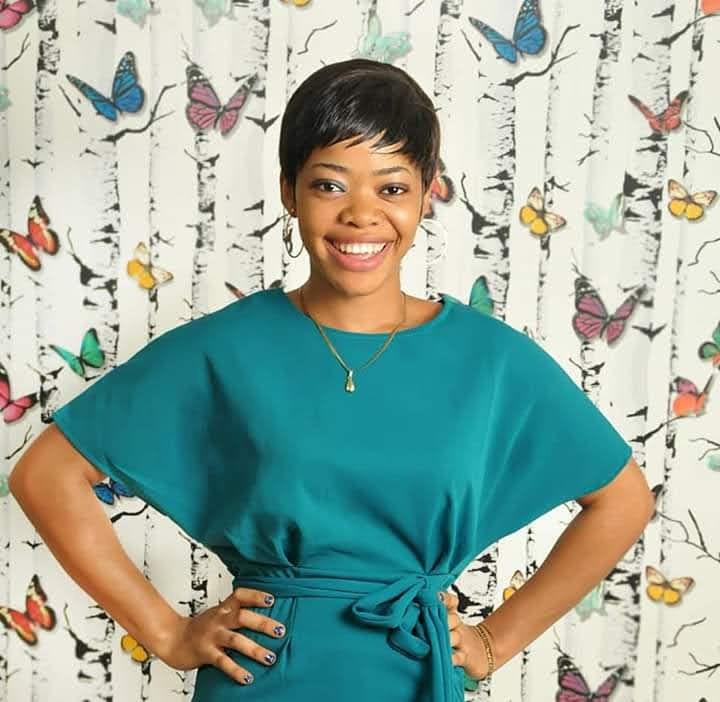
THINKING ALOUD | OCT - DEC 2022 8
I
I implore you to check on your parents and grandparents today, make that call, send that text message.
R D S F
Thinking Aloud magazine reaches a diverse readership around the world including Nigeria, Zambia, United Kingdom, United States, Australia, Canada and the Philippines. Advertise in the magazine today and experience Growth in your enterprise.

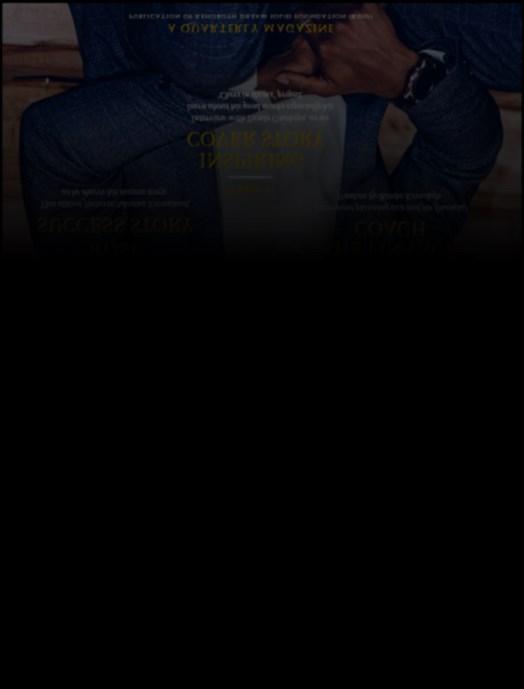
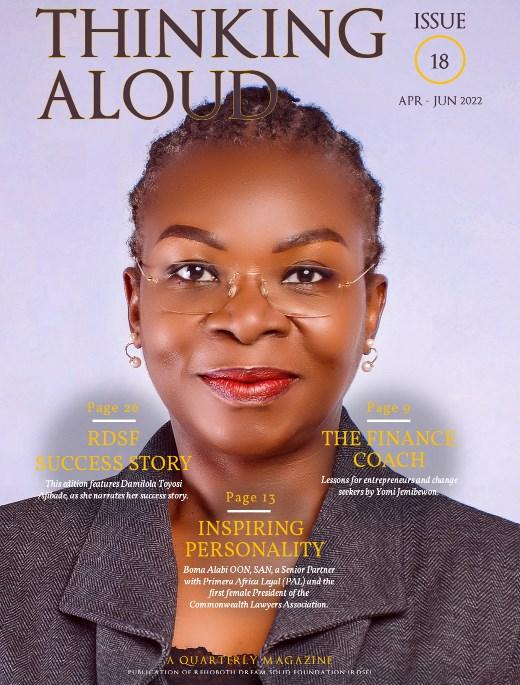


Send your advert enquiries to: thinkingaloudpublication@gmail.com
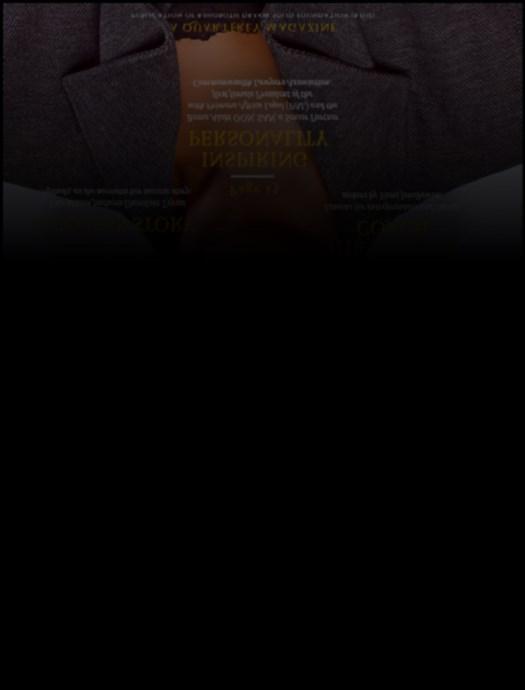
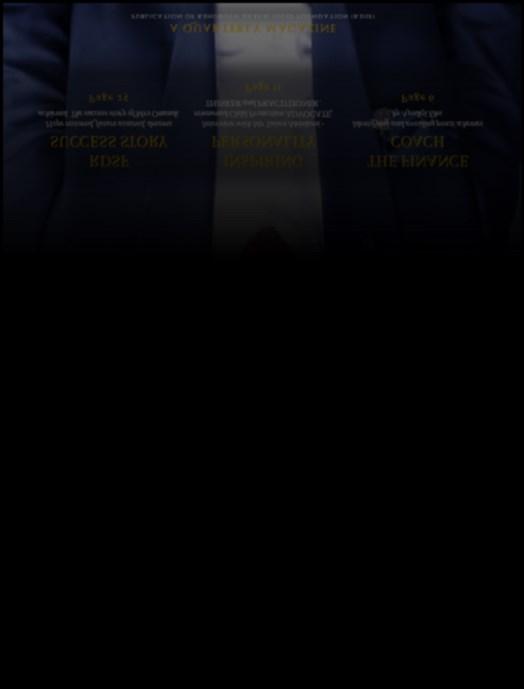
INTERVIEW WITH MS ELIZABETH OMBATI


THINKING ALOUD OCT - DEC 2022 10 |
Q1. Thank you ma’am for accepting to share your story with our readers. Please tell us about your background.
My name is Elizabeth Ombati. I was identified as a woman with a psychosocial disability though I was not always identified this way. Back then, I received a mental health diagnosis (social anxiety disorder). All I knew was that it was something that would eventually go away. I used to experience a lot of fear, particularly in social places. From as early as my primary school years, I would experience high levels of anxiety and because of this, I hardly participated in school events. I would not take part in drama and I would not participate with other students in symposiums. What bothered me so much then, was that even just answering questions in class was extremely difficult for me.
Though I really wanted to be a part of all these activities at school, the intense fear I would feel whenever I wanted to take part was greater than my desire to participate. I did not think it was a ‘problem’ that was big enough to share with others. Yet each day, it ate me from within, and I wished that it could be better. But then I decided that I would live within its confines. I would do what the fear allowed me to do, which unfortunately was not much.
Q2. What is a psychosocial disability, how is it different from other mental conditions and what would you say are the major contributory factors to the development of the condition?
Psychosocial disability is the term used to describe disabilities that may arise from mental health issues. It arises when someone with a mental health condition interacts with a social environment that presents barriers to their equality with others. Not everyone who has a mental health issue will experience psychosocial disability, but it can put those that do in a position of social disadvantage. Examples include anxiety disorders, obsessive compulsive disorder, post-traumatic stress disorder, and bipolar disorder.
Q3. You survived psychosocial disability. When did you become aware of this condition and were you diagnosed by a professional? What were the early symptoms you exhibited before discovering it or your diagnosis? Let us into your experience and how you came out?
It was in 2009 that I was diagnosed with social anxiety. By this time, I had already quit multiple jobs. My social anxiety was the reason I chose to study print journalism in college. It made sense because I loved words. A career involving speaking would have been great but seemed impossible with
the constant fear that I experienced when around people. So, I imagined a career in the written word would protect me. I was wrong. My first internship was with a radio station. I remember being sent to cover a press conference, and I had so much anxiety I could not even raise my hand to ask a question.
This is not how I wanted to live my life – a life filled with fear. I was getting older, but it was not getting better. So, I did not last one more day with the radio station. I handed in a resignation letter and moved on. This was the start of a difficult journey struggling to keep jobs.

By the time I was diagnosed, I was on the verge of despair. One day I sat down at my desk after quitting my second job. I was now working with a small church organization that published a magazine. I was feeling quite desperate about my situation, and I began documenting my experiences in newspaper articles that I sent to an editor of a local national newspaper.
Now that I look back, I can see how this formed a basis for my own activism, earlier within the mental health spaces, and later within the disability landscape. It was not long after I shared my story in the national newspaper that someone reached out to me and introduced me to a local peer support group that was called Users and Survivors of Psychiatry in Kenya.
Young professionals with mental health conditions would meet every two weeks and offer each other psychosocial support. It was becoming very clear to me then, that several of us had a strong desire for ‘ recovery’ - To be ‘normal’. I remember asking, “is there a magic pill that completely cures anxiety?” The answer was always no.
Our advocacy then was on the grounds of ‘mental illness is an illness as any other’. But if this was the case, why was it difficult for us to disclose to










11 A QUARTERLY MAGAZINE
One day I sat down at my desk after quitting my second job. I was now working with a small church organization that published a magazine. I was feeling quite desperate about my situation, and I began documenting my experiences in newspaper articles that I sent to an editor of a local national newspaper.
R D S F
potential employers that we had a ‘mental illness’? Why was it so difficult for me to keep jobs, to attend interviews – did I have to wait to ‘heal’ first? What if the ‘healing’ never came? These conversations were key for me, to have within myself even as I tried to make meaning out of them.
The answer came with the CRPD (Convention on the Rights of Persons with Disabilities). The first time I heard about the paradigm shift that the CRPD had brought was a light bulb moment for me. As I mentioned earlier, then, I had a lot of difficulty keeping jobs and found it very frustrating.
In a gentle yet powerful way, I was introduced to the CRPD, and in a personal and political way, it was easy for me to stop identifying as one with a ‘mental illness,’ to one with a psychosocial disability, because the CRPD offered me this new understanding to what I had been experiencing for a long time.
Q4. Why do you advocate for users of psychiatry to be seen within the wider context of disability and not just within the space of mental health?
I started using this personal experience to find my place within the disability community and do my advocacy. I advocate for people with psychosocial disabilities to be seen within the wider context of disability and not just within the space of mental
health. Many people think that experiences of psychosocial distress belong primarily to the health sector, but I see it as a very problematic view. Health systems should work for everyone, including those experiencing psychosocial distress. Achieving high quality standards of care for both physical and mental health should reach all people, whether they have disabilities or not.
Therefore, when people with psychosocial disabilities are seen as primarily in need of ‘mental health care’, it removes their rights to inclusion in all other spheres of life.
Q5. How can we recognize a person with psychosocial disability and what kind of social support can individuals render to them?
The changes I envision within my own communities regarding the inclusion of people experiencing psychosocial distress, is honest and safe spaces where communities are welcoming and inclusive of people with and without disabilities in their diversities.
People must be given tools that ensure they achieve their potential within the communities where they live in. Such tools include laws that are not discriminatory, support services that respond to the requirements of people; communities devoid of discriminatory and violent practices, etc. It also
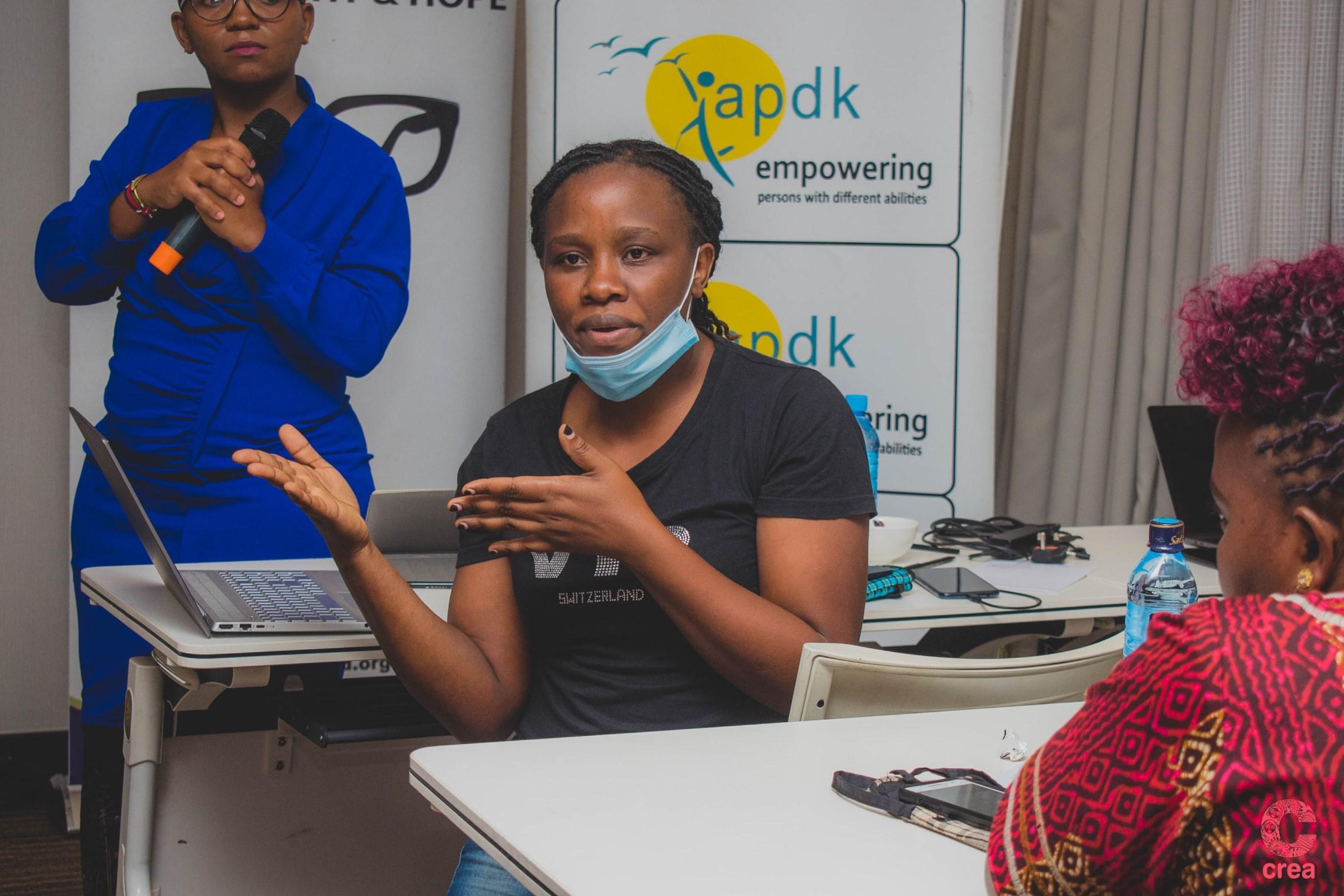
THINKING ALOUD OCT - DEC 2022 12 |
R D
F
S
calls for accountability to respect the human rights of all. The healthcare system must stop seeing people experiencing mental distress as objects in need of being saved from their ‘illnesses’ and start respecting their choices and offering them dignity.



What support should be afforded to people with psychosocial disabilities? Peer support has been one of the many tools that has supported me. However, peer support is only but one tool, there are many other ways but it is important to have communities that appreciate and respect diversity. When this is the case, people feel welcomed in these communities irrespective of their diverse nature.
communities have been historically marginalized. This is based on many characteristics, including disability.
Exclusion happens in many ways. For example, when you have environments that are physically inaccessible. This disproportionately affects people with disabilities. When you have inaccessibility in information, communication and technology; when public transport is inaccessible, or even when negative attitudes and perceptions about what people with disabilities can or cannot do are widespread in society – all of these factors act as barriers to the participation of people with disabilities in society on an equal basis as others.
Raising awareness about the capabilities of people with disabilities must continue to be spread throughout our communities to counter negative beliefs. These campaigns must happen with people with disabilities at the center – it should not happen without meaningfully involving them. Over the years, I have engaged in raising awareness on issues that directly or indirectly affect all people with disabilities, and specifically those with psychosocial disabilities.
Q6. Your advocacy of disability rights began in the year 2009, how long did it take for you to see the desired results after you took the bold step from regular life to a completely new path of advocacy? What were the challenges you faced at the beginning of this new step?
I have been a member of a peer support group since 2009. The group was filled with peers who, like me, had experienced mental distress in one way or another. We would come together in a space of 'peership' to learn from each other and support each other by use of our own lived experiences.


My experiences with mental distress did not change after becoming a part of a peer support group and engaging in advocacy. Even after many years, I still experience anxiety in social places. But my awareness around these experiences has significantly changed. I stopped looking for a magic pill for sure! What changed was that the more I became aware of my rights; of the place that I occupy in my community, of the critical role I play in making my community, what it is; I realized that I could be and do so much more.
Q7. What problems do people with disabilities encounter in the workplace, school and community at large? Do you think people without disabilities will learn to accept them? How have you been able to address this situation as an advocate?
Our societies are not prepared for diversity. There are many ways that groups of people within our

Together with others, we continue to raise awareness that society must be able to work for all people, in their diversities. The removal of barriers that affect different people within our communities should be a focus for all.
Q8. In some Africa countries like Nigeria, most people diagnosed with psychosocial disorder are often taken to rural communities by their relatives for traditional treatment or sometimes abandoned in traditional psychiatric homes with insufficient or ineffective care system. How do you think this practice can be discouraged and what is your advice to relatives of psychiatry users?


The issue of people with psychosocial disabilities, as for most people with disabilities, are often viewed from traditional, and cultural perspectives as well as religious perspectives, which brings another layer of complexity.
For example, someone with a psychosocial disability may be looked at as someone who has sinned, or who is being punished for wrongdoing. In this aspect you may find religious solutions being sought, such as families taking their loved ones to prayer camps where their rights are violated as the treatment they receive in the guise of healing them can be violent.

The other scenario is to dump loved ones in long stay mental health facilities as families have to shoulder the burden of taking care of them with

| 13 A QUARTERLY MAGAZINE
The healthcare system must stop seeing people experiencing mental distress as objects in need of being saved from their illnesses’ and start respecting their choices and offering them dignity.
R D S F
little support from government. We have often advocated for a whole community approach in supporting the inclusion of people with psychosocial disabilities within our communities.
We advocate for community solutions. For example, communities that are kind and empathetic, communities that would intervene to offer support to people with psychosocial disabilities rather than further isolating them. The models of peer support for example are tools that can be embraced where people with psychosocial disabilities are able to feel like they belong in their communities.
Q9. In climes where psychosocial disability is considered to be more of a spiritual problem than a deviation from normal, how have you been able to help to correct such misconceptions?
Religious aspects cannot be ruled out, but they must be carried out within contexts that respect people’s dignity and a place of wellness, not cause further damage to the person with a psychosocial disability. We advocate for people with psychosocial disabilities and their families to receive social protection schemes from their governments to support them with extra costs of disabilities. For example, when a caregiver must take time to support their loved ones. We also advocate for more innovative ways to support people with psychosocial disabilities that will put a stop to violations to their
human rights both within their communities or in long stay mental health facilities.
Q10. How do you intend to spread your awareness to other African countries especially to those that do not believe such disabilities exist.
On spreading awareness in African countries on these issues, I continue to work within frameworks of collective advocacy. For example, in Africa, we have the presence of the Pan African Network of persons with psychosocial disabilities that continues to carry out advocacy for the inclusion of people with psychosocial disabilities in Africa. We also have strong regional advocacy organizations such as the African Disability Forum that continues to advocate for the inclusion of all people within communities.
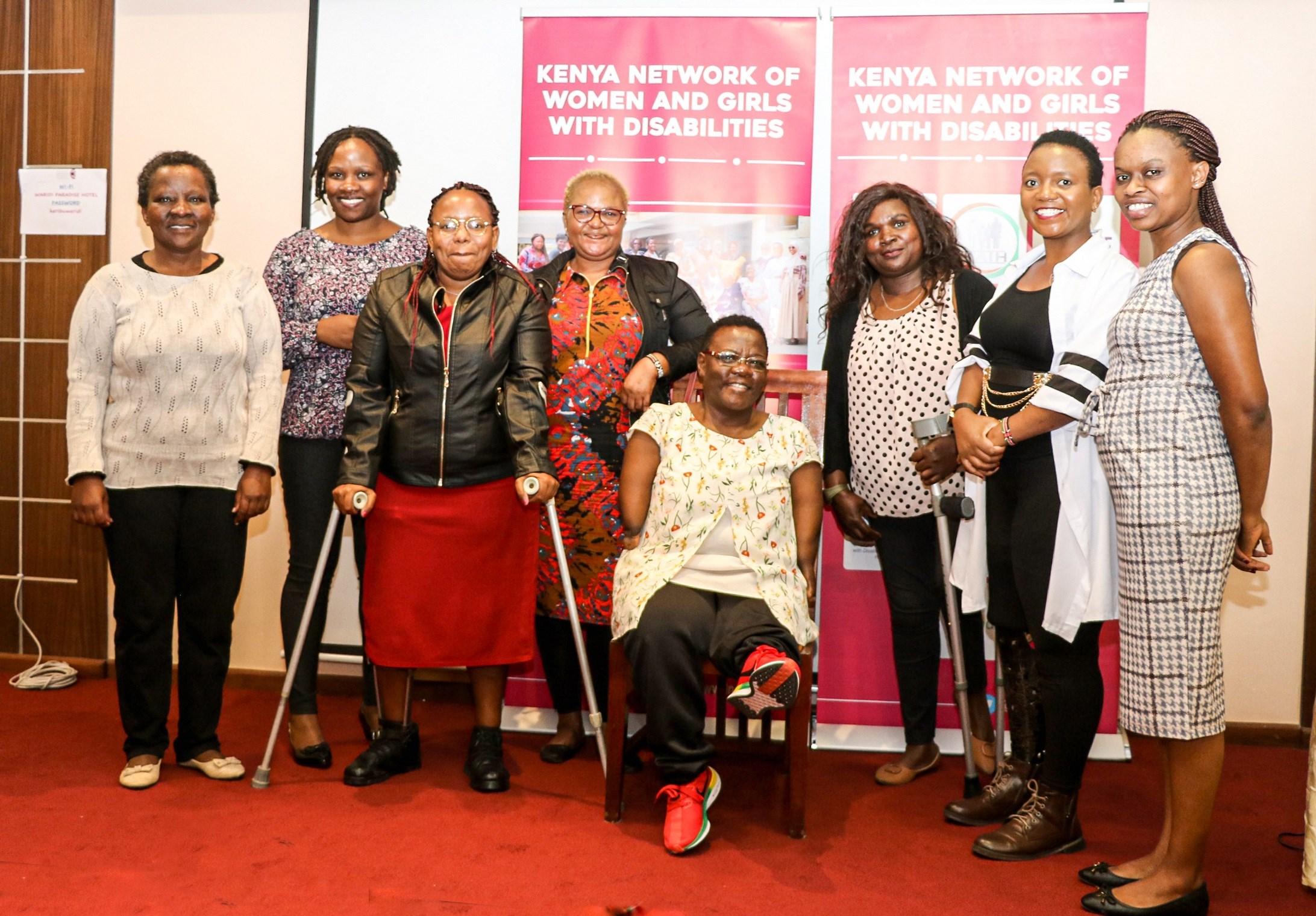
Q11. As an engagement officer in a Disable People’ s Organisation, what are the challenges you face in ensuring the voice of people with disabilities are heard?
The greatest challenge I continue to see is the exclusion of the voices of people with disabilities in decision making spaces. Processes are not accessible – for example, holding a meeting in a physically inaccessible place; or not having a sign language interpreter during a meeting, or not ensuring that the materials are in easy read formats, or not
THINKING ALOUD OCT - DEC 2022 14 |
R D S F
availing necessary documents on time to ensure that a public consultation is meaningful among others.
Q12. Most children with disabilities and from poor homes often have unequal access to educational resources, despite the law guaranteeing such access. What has your organization done or what does it plan to do for them?
African countries have ratified the Convention on the Rights of Persons with Disabilities (CRPD) and it offers a roadmap of how to ensure we meaningfully involve people with disabilities, in all their diversities, in all consultations. This has often not been the case. Accountability to people with disabilities must be upheld by governments as well as international development partners; remaining accountable to citizens.
For instance, billions of children with disabilities are not accessing quality inclusive education in inclusive schools. Funds are still going into special education which is adding onto the exclusion that children with disabilities face. We are raising a lot of awareness around this, including the International Disability Alliance and hence it will take political goodwill from governments to consult with people with disabilities among other stakeholders and support all children in school.
One day, my colleague explained to me something I had not envisioned before. He asked me whether I would view my experiences differently if I realized that having a ‘mental illness’ in itself was not a problem, but rather to try and conceive environments where I would receive support to thrive.



Whether the self-stigma was an idea that I wanted to carry forward, or I wanted to view my experiences vis a vis the role that my community had played and kept playing in supporting me to actualize my dreams.
To start appreciating that it is okay, I did have an impairment. But much more than that, to be shown that, there were barriers in the environment that resulted in my little participation on an equal basis with others in the workplace.



Q13. You mentioned in one of your publications that, people with disabilities face enormous barriers to realise their rights to work and employment. What advice do you have for a disabled person in search of a job and a career opportunity; especially in communities with high stigmatization?


There is a lot of focus now on access to employment in the open labour market for the diversity of people with disabilities. Focus should still be on governments to ensure that environments are supportive of people with disabilities to realise their rights to work and employment. It takes many forms, from addressing pervasive stigma towards people with disabilities, to accessing quality education, and accessible workplace environments.
Q14. What does inclusiveness mean in simple terms? How can employers make the work environment more inclusive? And what workplace programmes would you advise employers to adopt or introduce in their organizations to enhance inclusiveness?
Leaving no one behind. When we think of marginalized groups, we each have to play a role to realize the 2030 agenda call to leave no one behind. People with psychosocial disabilities still continue to be viewed in very negative ways and laws are still not respective of their dignity.
Q15. You were part of the Bridge training International Disability Alliance in past years which supports an inclusive society. How would you rate the level of inclusiveness in Africa?


Our laws still speak about people of unsound mind and how they should not access rights. This is very retrogressive. People with psychosocial disabilities must be recognized as responsible people and fully participate in all activities within their communities and accorded all support they need to thrive within these communities.

15 A QUARTERLY MAGAZINE
There is a lot of focus now on access to employment in the open labour market for the diversity of people with disabilities. Focus should still be on governments to ensure that environments are supportive of people with disabilities to realise their rights to work and employment.
R D S F
For children with disabilities to thrive in their own communities, there is much that needs to be done.
In Africa, we say that it takes a village to raise a child. This is no different for children with disabilities. Firstly, we need to have safe and inclusive communities where all children can thrive.
Parents must work together to achieve this, communities which are devoid of stigma and discrimination that are directed at people with disabilities, whether they are children, men, women, girls and boys, etc.

Once we have such inclusive communities where everyone can thrive, it will be easy for parents for example, not to resort to very difficult decisions like locking up their children in their houses. We know that this happens in many communities in Africa, children with disabilities are locked up in their homes for different reasons.
Governments (both local and national) must invest in structures that support the thriving of children with disabilities. For example, inclusive education schools within communities, where parents can take their children for quality education. Others include rehabilitation programs that are affordable, where
parents can enrol children. Access to assistive technology are needed and economic empowerment programmes that can be accessed by parents to support them in their child-rearing roles.
Q17. As a woman with a psychosocial disability, what would your one wish be/or what would you like to pass across to all people reading this interview?
The people with psychosocial disabilities are human beings too and they should be treated with respect and dignity. Our societies should not have to look or act condescendingly at people with disabilities.
All people, with and without disabilities must find it within themselves to treat one another with respect and dignity and be able to co-exist within communities devoid of stigma and discrimination.
Q18. On a final note, considering how busy you are, how do you spend your leisure time?
I spend my leisure time engaging in couple of activities. I like to spend time with my family.
Other times, I’m alone meditating on life, listening to music, or going for walks in the neighbourhood.
I also enjoy reading nice books. Indeed, I do many things simply to remind myself of the joys of being alive :)
THINKING ALOUD OCT - DEC 2022 16 |
Q16. How can parents support their children with disabilities?
R D S F
INTERVIEW WITH DR MARCY VERDUIN

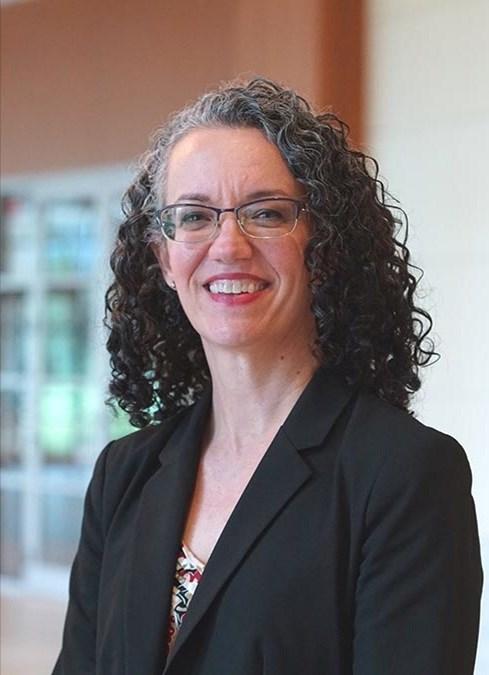
| 17 A QUARTERLY MAGAZINE
Answer:






The first thing that I think is most important about me is that I love Jesus. I did not always love Jesus. That is a whole other part of my life, but I love Jesus. I think that is the first thing about me. I think the second most important thing about me is that I have an amazing husband and two amazing teenagers, so I am a wife and a mom. Then the third on the list is that I am a psychiatrist and a professor of psychiatry at the University of Central Florida in Orlando and I am also the Dean of Student Affairs at the Medical School. So that is a little bit of my background.
I was an atheist. Believe it or not, I was far from God for many, many years. Actually, when I met my husband, he was a follower of Jesus, and I was an atheist. I had grown up going to the church a little bit here and there, not regularly, and when I was in my late teens, I just made a decision that there was no God, and I just rejected Him.
I had a very difficult upbringing. My father was an alcoholic, he was very verbally abusive and sometimes physically abusive, and he expected me to be perfect in everything I did. I felt really that I had to earn love and that I was never good enough to be loved. And eventually, when you are a teenager growing up like that, you can be very angry and bitter, and that was when I decided there was no God because of the type of life that I was living in.
Things got worse when I was about 17. Then when I was 19, my father died from alcoholism. He was in his late 40s. A few years later my mom had a very severe suicide attempt. She was very depressed and almost died. A few months after that she had a traumatic brain injury. So, a series of very bad things happened in my life, and I remember thinking that it all came down to me to hold it together and I was barely making it.

Around that time is when I met my future husband, and I will never forget the night that we met. He told me that he was a believer and I told him I was an atheist, and he said, “I don’t worry about that at the beginning,“ and I remember thinking, “The beginning of what? I’m never going to see you again.”
Long story short, he was the first person I had met who was a Christian who did not try to pressure me, and because of that, I actually felt very comfortable asking him questions. I didn't feel like if I asked a question, it was going to start being pressure, pressure, pressure. And so, as I asked questions, he just answered honestly and from the heart, and it really started opening my eyes that there might be a God.
Through that, I got to know the love of Jesus. I asked Jesus to be my Lord and Saviour. Although I had done that and I was saved, I had lived so long with an earthly father who expected me to be perfect that I realised later on that my walk with God was the same, thinking that I had to earn love from Him. That I still had to react that way. And so, it was when I started having children that God really used my children to show me what His love for me is like.
My eldest, my 17 year old son, has a number of disabilities, one of which is autism. Watching him, there are a lot of things he can't do, and that does not change my love for him. But I realized that I love him no matter what he can or he cannot do. And it was what allowed me to see that is how God loves me. And so that has really blessed my life and I am very thankful for that.
TA Team
Thank you so much Dr Marcy for being so vulnerable and open and that is what we love about spiritual family, and I am sure a lot of people here who have similar challenges, especially with their children , will take some encouragement to learn that this has not stopped you from doing what God has called you to do and being who God has called you to be. So, we are very encouraged to hear this and we will continue to also pray for you in this particular situation.
Question 2. Now Dr Marcy, We know also a lot of things happening right now in homes, the challenges in the society and everything. How has your experience or your professional background helped you to navigate with your teenagers? Is there any tip you want to leave with us? In terms of how you have been able to navigate with your teenage children in these difficult times that we live in?
Answer: Being a psychiatrist, I would say ”Yes” and “No”. “No”, because we are all human, and it is hard sometimes. Like, I can easily see what is happening in somebody else's life, and it’s easier to be objective about somebody else than it is in your own life.


THINKING ALOUD OCT - DEC 2022 18
Question 1. Dr Marcy can you tell us a little about yourself?
Things got worse when I was about 17. Then when I was 19, my father died from alcoholism. He was in his late 40s. A few years later my mom had a very severe suicide attempt. She was very depressed and almost died.
R D S F
nitely my children know what my hot buttons are, and they will push them. So I would say that is the ‘No’ part. The ‘Yes’ part, where being a mental health person, having an expertise in that area has helped me in understanding the developmental trajectory of children and what the next stages are that they are going through. So, with teenagers, what I know is that there are a couple of things that they are really seeking. One is they are learning to be independent people, and they want a lot of independence. But the truth is (though there are probably some teenagers who might disagree with me on this), that subconsciously teenagers don't want full independence. Because they don't feel ready for it, and they don't feel safe. So when I see teenagers who have complete independence, or have full run, who can do whatever they want, they end up insecure.
Something like, when you have a toddler, they come to mom and they may go off and play with the toys and they come back to check on mom, is mom still there, and then go off again. In good teenagers, that is what happens. They are learning to do that, they are practicing to be adults. But they need to know that there is still somebody there who has got their back and is not going to let them mess things up too badly. So they need some boundaries, but some ability to grow and test their independence.
They are also at a stage where they are really trying to figure out who they are. My 14-year-old daughter regularly asks me, “Who am I? Am I the funny one in my friend group? Am I the nice one? Am I the smart one? Who am I?” I think our role as Christian parents is to say, you are a child of God, and that is what I tell her. I say, I know that you are a child of God and the rest of it will fall into place. So I think they need to hear that from us over and over, because they are wondering who they are in the world, the world wants to tell them they are this or that and they just need to know what is most important, they are children of God.
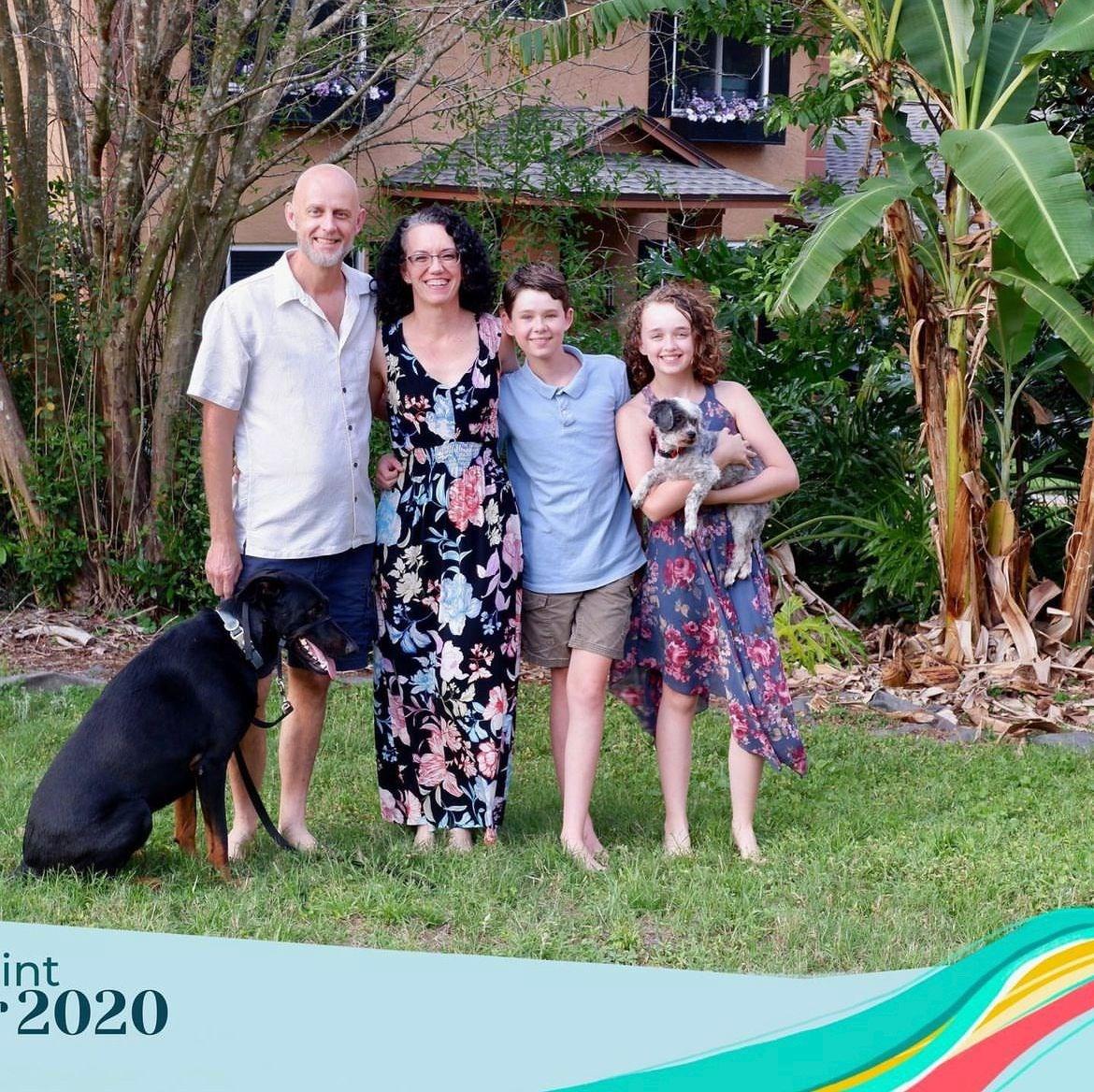
The other thing that I have learned is that; in that independence, we’ve got to figure out where to pick our battles, and I am going to use my son as an example. He loves all things science-fiction and likes gory movies and all that stuff that I don't like at all. And so, we have had to decide, where do we draw the line for him, because I don't want him watching all of that stuff all the time. But guess what, if I say no to everything, there is going to be a rebellion. There is going to be push back because he has no independence. So we figured out in our household, you know you can watch those as long as the moral of the story is that they are fighting evil. If evil is being defeated, I can tolerate that. So that is where you have to do some give and take with them.
Furthermore, I really think the most important thing that you can do as parents is to strive to have open communication with your children of all ages. My children know that they can come to me with anything even when they come to me with something that disappoints me, and they know that I still love them and we are going to have a conversation about it - and that really needs to start before they are teenagers, but it is never too late, and that’s one of the most important things you can do. We live a life that is busy, but sitting down with your children for 15 to 20 minutes, even a few times a week if you can't do it every day, where there is no agenda. The agenda is, as you sit, just be with them, whether they are playing, whether they are just hanging out watching a TV show, whatever it is, that you are putting your attention on them and what they need. That’s what builds relationships that they have trust in. So those are the thoughts that I have. Those are the tips I would share.
Question 3. Social media platforms now make it easy for people to self-diagnose. If someone notices symptoms of mental challenges, what are some of the steps they need to look into first?
Answer:
Be careful of Dr Google. Dr Google is not always right, and Dr Google can take any symptom and say you are dying. That is the truth. You must be careful with that. So I think the first thing is to make sure you are looking at a reputable source. A source that is a legitimate medical source. The second thing is it is really difficult to self-diagnose. There are so many nuances, and we don't even see them in ourselves. So that is why, if it was a matter of just doing a checklist, you would not need to see a doctor. You could just do the checklist online, and it would tell you what you have and then you are done. The reality is that, let us say that you are worried because you are not sleeping well, you don't have much energy, and you can't concentrate. Well, you might go, oh my gosh that means I have depression because those are three of the symptoms of depres-
| 19 A QUARTERLY MAGAZINE
R D S F
sion. But those are also symptoms of anxiety. They are also the symptoms of problems with the thyroid, they are also symptoms of problems with anaemia and lots of other things. So the problem with Dr Google is that you don't have the full scale of information. So if you look online and you see some symptoms that are of concern to you, then make sure you go see someone who has expertise in that area and tell them, here is what is going on, what do you think it could be? Are there other things that we should be ruling out?
if we never had sadness, we would never know what happiness is. That is why we are wired to detect differences.


Depression happens when you find yourself in an abnormal sadness that persists. So usually at least two weeks of feelings sad or blue or down most of the day every day. It doesn't always have to be sadness, it could be that you just aren't enjoying things like you used to. Maybe you love fishing, and it just doesn't do it for you anymore. You like going to movies or whatever it is, just no enjoyment in life.
Question 4. How do you differentiate between someone suffering from burnout and depression? Are they the same or are there some signs you can really pick?
Answer:








Burnout is not a medical diagnosis, but it is a defined syndrome. It is a syndrome that happens where you feel emotionally depleted. Like you just have nothing left to give, kind of detached, and you also feel like you are not doing a good job in anything, like, the feeling of being ineffective at everything. For instance, a feeling of, “I am not a good mom”; “I am not doing a good job at work”; “I just feel like I can't keep up”.
Burnout happens when stress is high, but your ability to control that stress is low. So you have no autonomy over it. Like the time when the pandemic was happening, we had no control over all of that and stress was very high. This is perfect setup for people to develop burnout. So, burnout itself is not a mental health disorder, but if it is left unchecked, it can progress to other problems. Depression and anxiety are two common things that it can lead to, and other things can happen.

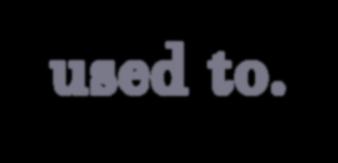







Depression is different than just feeling sad. We are supposed to have a full range of emotions. God created us to feel. God feels sad at times. We are supposed to feel sad by what makes God feel sad. We are supposed to be moved by what moves Him. So nobody’s emotions should be flat. We should have good days and bad days, they go up and down. In fact, our brains are wired to detect differences. So,

Then, in addition to that, you have to have several other symptoms. Usually problems with sleep, either sleeping too much or too little, appetite - too much or too little, low energy, feeling hopeless, like there is no hope for the future, feeling worthless, poor concentration and sometimes suicidal thoughts or thinking, it may be better off if I wasn't here. That is what depression looks like. You don't have to have all of those symptoms, but the majority of them. So certainly if somebody is moving into that space where you find yourself low and having those biological symptoms impacted - appetite, energy, concentration, sleep - that suggests that maybe you need to get some help. Certainly if you have any thoughts about hurting yourself, if anyone feels their life is not worth living, then, you need to talk to somebody right away.
Anxiety. There are different kinds of anxiety, but I am going to talk about one, generalised anxiety. It is not really sadness, although they can overlap. It is more of a sense of worrying, worrying excessively. You know that you need to stop worrying, but you can't set it aside. You can tell yourself, “I don’t need to worry about this”, but it just keeps coming back again and again and again. And that is usually associated with difficulty relaxing, always feeling on edge, keyed up, restless, some irritability, either towards other people or just towards yourself, like, low frustration tolerance and feeling very tense.
THINKING ALOUD OCT - DEC 2022 20
Be careful of Dr Google. Dr Google is not always right, and Dr Google can take any symptom and say you are dying. That is the truth. You must be careful with that. So I think the first thing is to make sure you are looking at a reputable source.
R D S F
Depression happens when you find yourself in an abnormal sadness that persists. So usually at least two weeks of feelings sad or blue or down most of the day every day. It doesn't always have to be sadness, it could be that you just aren't enjoying things like you used to.
A lot of times people complain of tension, clenching their jaws, and headaches. And sometimes what I found is people have a true anxiety disorder because they can't control it. Once it gets to that point, sometimes even scripture makes them feel worse. They think like, the Bible says, “be anxious for nothing”, so what is wrong with me? Do I not have faith? The challenge is that we sometimes forget that our brains are an organ. And that organ is what controls our thoughts and our emotions. Just like, if you had diabetes, you can't tell your pancreas to make more insulin, you can't tell your brain to not be anxious once you have developed a disorder. It’s no different than having a stroke, if you have a disorder that affects your thought, if your brain is sick, it can affect motivating behavior, it can affect sensory functions or cognitive thoughts. So, I think it is important to recognize that and be willing to seek help.
Question 5. Next question is, would you recommend Christians to go to only Christian therapists/ Psychologists?
Answer:
Hmm, I get this question a lot. So I am going to ask a provocative question back. Would you only go to a Christian mechanic? Or would you only go to a Christian surgeon? Or, would you only go to a Christian chef? So if the answer is No, then, I mean personally, I want to go to the best. I want the best.
Now if I have two who are the best and one is a Christian, I can go to the Christian. But I want the best first, and what I can tell you is that all psychiatrists and psychologists and therapists are trained that it is our job to ask questions about what the other person's views, beliefs, and values are, and we are not to put our views on the other person.
So if you have a good therapist, a decent therapist, they should not be trying to talk you out of your views or anything. In fact, I have found that even therapists that don't believe are often relieved when they have a patient who believes, because they know you have a support system, and that is a good thing for mental health.
Question 6. Would you recommend that Christians take anti-depressants?
Answer: I am going to ask another provocative question. Would you take medicine for diabetes? Would you take medicine for heart disease? High blood pressure? The brain is an organ. We sometimes tend to view it in a different way because it controls our thoughts and our emotions and our behavior. So somehow we feel like we should be able to control that. But again, you can't tell your heart not to have a heart blockage. You can't tell your pancreas to make insulin.
Let us take Type 2 diabetes as an example. It is a disease of high blood sugar. Generally, it is caused by an interaction between a genetic predisposition (the fancy word for family history). It runs in your family, and in your genes. Plus environmental influences. So maybe you have a really strong genetic risk for diabetes, but if you never eat unhealthily, if you take care of yourself, you eat well, you exercise and keep your weight where it’s supposed to be, all those things; maybe you will never get diabetes.
This is because it is the gene plus the environment that interact to lead to the disease. Now you can imagine you have a very low risk family history of diabetes, but the environmental influences are so great. He just really doesn’t have good control of his diet and his exercise and for whatever reason, no judgment, it just happens, and then he develops the disease.
Depression and anxiety and psychiatric disorders are very similar. So often there is a genetic risk. We know that it runs in families. But if you never encounter problems with loss or trauma or significant stress, you might not develop the disorder. But if you do encounter those things, the genes plus the environment can lead to the disease.
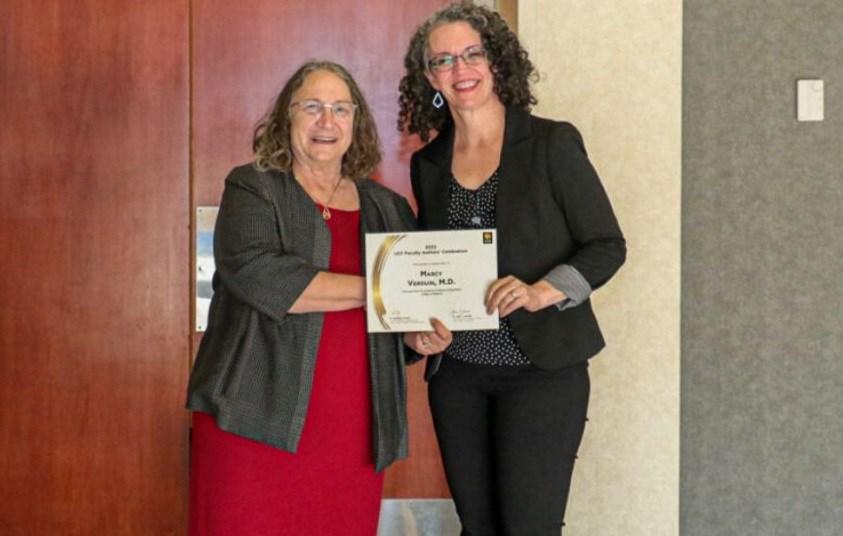
Again, even without the genetic influence, if you have enough environmental influences, enough loss, enough trauma, and enough stressors, they can create the brain disease of depression and anxiety. Now I want to go back to diabetes for a second, when we treat it, we do a combination of behavioral interventions and/or medications. So often we will say, why don't you try to diet and exercise first.
And when that doesn't work or if you are just not able to do it for whatever reason, given your circumstances in life, you might need medication for it. It is the same thing with many psychiatric illnesses. Some just require medications. But we are talking about depression and anxiety, so you can do the behavioral intervention, which is called psychotherapy, talk therapy, which has been shown to
21 A QUARTERLY MAGAZINE
R D S F
cause changes in the brain, increasing the brain volume in certain areas, for example. It creates changes in the brain that help the patient get healthy. But sometimes you can't do that, or it is expensive, or you don't have the time for it. And so those times it doesn't make sense, or maybe you just want to get better faster, or the severity of it is significant enough that you want to take the medicine. So again, your brain is an organ just like your heart and your stomach and your lungs, and it can get sick just like other organs.
Question 7. A parent said, “I was not a good mother, and my kids have been somewhat emotionally affected. Now, as a believer in Jesus Christ, I have turned a new leaf, what would be your advice, your suggestion on how to help my kids get better? How can they now trust me that I am going to be able help them correctly?“
Answer:
That is a great question. There are so many different directions I could go if I had more details, ages of the children, the nature of the problems and that sort of thing. What I will say that I think can apply no matter the circumstance is that sometimes trust takes time.
Even for us, even if somebody turned over a new leaf in your life, if you felt like they had been hurtful to you or you could not rely on them or they weren ’t trustworthy, even if you want to forgive and believe them, you are going to have caution in doing that, until you see the fruitfulness.




So, don’t give up, just continue to persist in showing them the love of Jesus and being the good parent now that you can be, showing them love, sitting down with them.

I will tell you, before my son got diagnosed with some of the challenges that he has, we didn’t realize what was going on with him, and our relationship was not always good and so it did take time. I shared that idea of spending 15 to 20 minutes sitting down on the floor with the child or sitting there listening, because that is what I did.
He needed us to just come stay on the floor with him. Some days he didn't talk, he just played with the Legos or whatever he wanted to do, but just sitting there being with him allowed him to want to gain trust in us and to share more with us.
And so I would just say start doing those things. God is faithful, and as long as you are putting one foot in front of the other, you don't have to fix it because you are not the saviour, God is. So just keep doing the things that you know to do, pray about it, and trust God to work it out.

Question 8. If you notice that your spouse is not doing very well, emotionally, mentally, and you have been trying to get him or her to see a specialist but because of faith and belief he or she has refused. The spouse doesn't really believe in going for medical checkups or to see a professional. What would be your advice, how can you encourage that kind of person to seek help?
Answer:
This is not a unique problem, it happens a lot. Nobody wants to be like, oh, “I have a problem.” How many of us like to do that? Nobody really likes to admit to that. If you have had open conversations about your concerns and there is still hesitation, you don't have to start with a psychiatrist or a counselor. You can start with a general practitioner or primary care doctor. They are also trained in recognizing some of these issues, and that might be a good place to start and to say to your spouse, let us go to make sure, because there are real medical problems that masquerade as depression and anxiety. Hypothyroidism can do that, it can look like depression, it can look like anxiety.
Anaemia can look like depression. I could name more. There are a whole host of those. So maybe the starting point should be telling him or her, let us go to the primary care doctor. Let us just get a full check up and see if there is anything going on medically that could be causing these issues. And then the experts can talk.
Question 9. Should mental health issues be considered strictly a medical condition or strictly a spiritual issue and how best should it be addressed?
Answer:
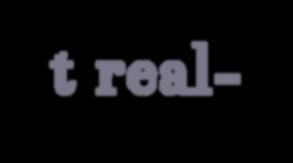


I would love to make an analogy back to medical condition. Mental health is also medical condition, you know. If somebody has cancer, you are going to pray for them. You are going to ask God for healing, you are going to ask God for deliverance and you are going to see a doctor. You should do the same thing with mental health problems. You are going to pray for deliverance, you are going to pray for healing, you are going to ask God for healing, and you are going to see a doctor.

THINKING ALOUD OCT - DEC 2022 22
I will tell you, before my son got diagnosed with some of the challenges that he has, we didn t realize what was going on with him, and our relationship was not always good and so it did take time.
R D S F
If somebody has cancer, you are going to pray for them. You are going to ask God for healing, you are going to ask God for deliverance and you are going to see a doctor. You should do the same thing with mental health problems.
Question 10. I just like the way you have married the physical, the spiritual, and the emotional. I always like to say that there is no way we can separate the three. It is not one or just two. It is all the three, the spirit, soul and the body. This is really what I just heard you say. Maybe you want to say a little bit more about that. Do the three always go together? Or is there a separation, is it 3 minus 2 or minus one?
Answer:



It is mind, body, and spirit. We are a whole being. God made us whole beings. That is why when you have depression, it is not just sadness, it also affects us physically. That is why you have sleep problems, appetite problems, everything. So it is mind, body, and spirit, you need to address all of it.
The other thing I really feel like I need to say is, don't let someone tell you not to take your medication. If you are taking medications for mental health concerns or if you see someone taking medication for medical concerns. Don't ever do this unless you are trained as a psychiatrist or a therapist.
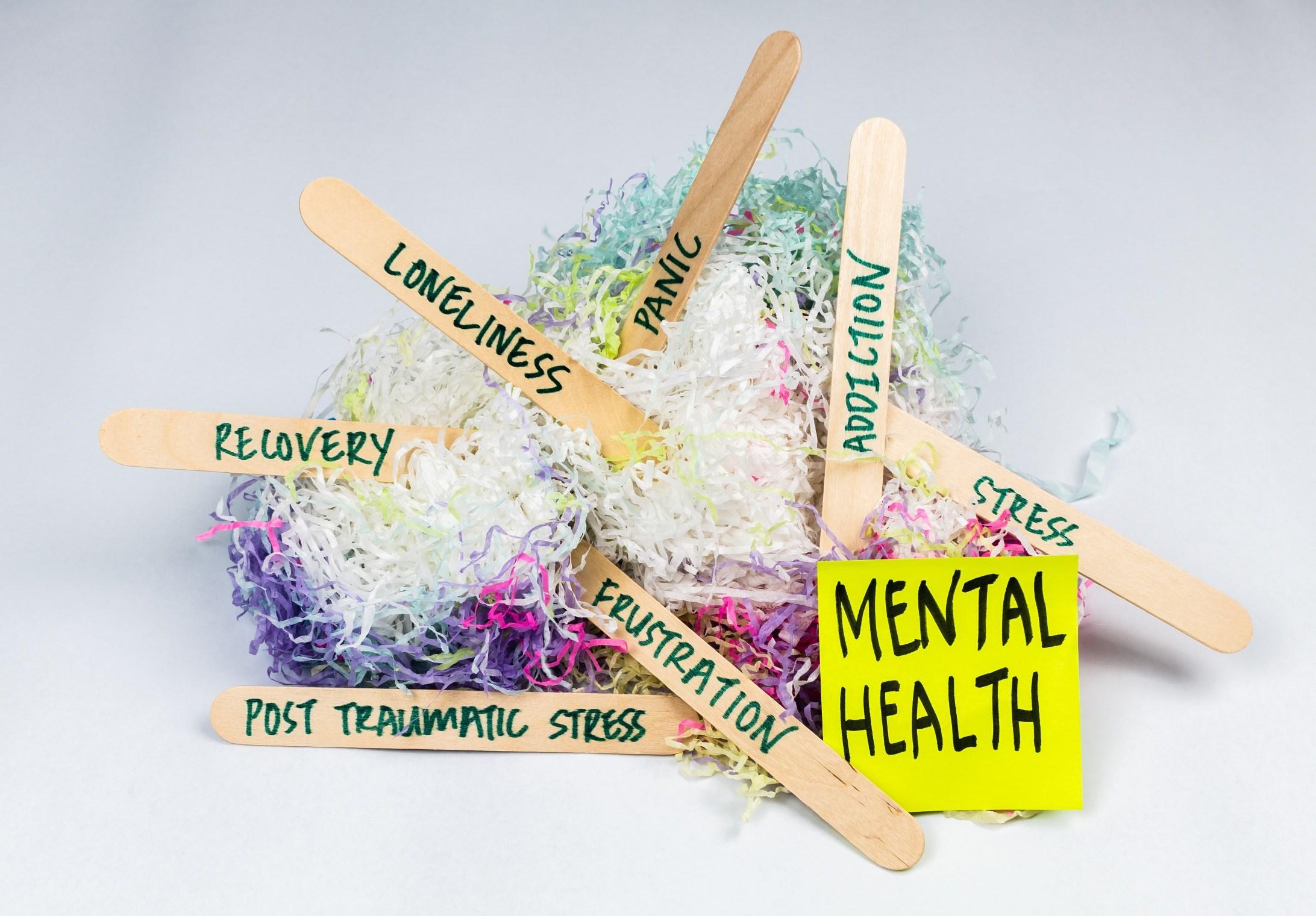






Don’t say “God has healed you, don't take the medicine anymore,” because that is not your expertise. I have known stories of people who have in faith said that I am not going to take my medicine anymore and then end up killing themselves. You don't want that to happen.

So, if you want to believe for somebody to be healed, pray and God can do anything. God can heal anybody of depression, of anxiety, of any health problem. But don't you be the one to tell them not to take that medicine anymore unless you have expertise in that area. Let them go to a doctor and let the doctor be the one to tell them not to take it anymore It is just like you would not say “ you are healed of cancer, stop your chemotherapy.” You would let them go to their oncologist or their cancer doctor.
Conclusion. Thank you so much Dr Marcy. It has been a great time. We do appreciate you and also seize the opportunity to thank those who have made this interview possible.
23 A QUARTERLY MAGAZINE
R D S F
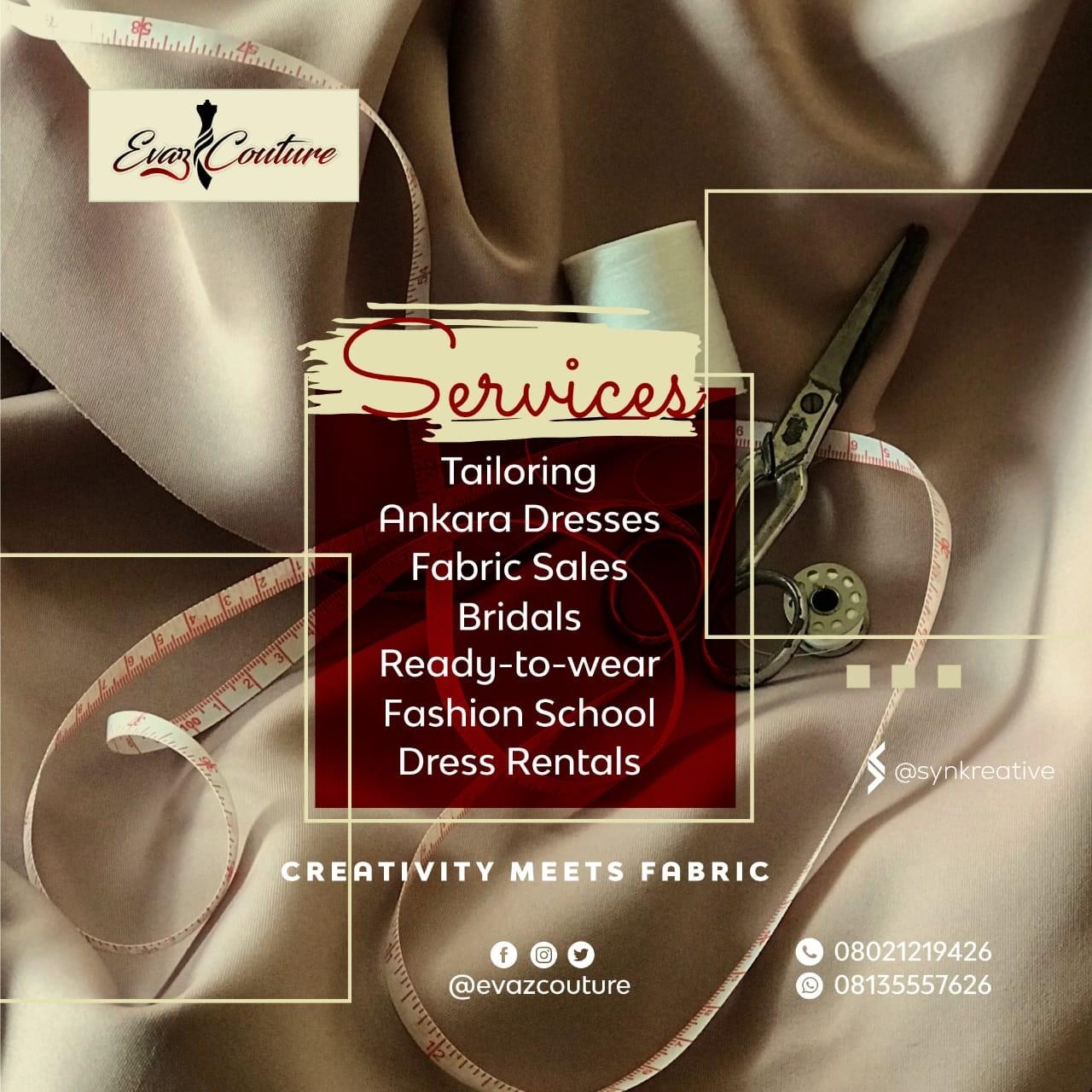

Q1. Tell us a little about your background –childhood, family & educational background. Is there anyway your upbringing has influenced your choice of charity? Are there other charity organizations you volunteer for?
ANSWER:
Well, the choices you make in life are influenced by experiences from your childhood. So yes, my choice of supporting RDSF is partly influenced by my background and by the fact that I know the promoters. That is very important to me. I won’t want to support a foundation where the promoters’ values don’t align with mine. To an extent, my background has also influenced what I am doing in terms of support.
I come from an educated background. My maternal grandparents were teachers and education was very important to my parents. As I grew up, secondary school was mixed with students from diverse socioeconomic backgrounds, unlike now, which meant that one was introduced to children from homes where life was a struggle but they did well and some were exceptional despite their challenges. It made me realize I wasn’t so special and it was a wake-up call.
As a young student I wanted to open a finishing school for children who didn’t have the opportunity to be brought up in privilege so they would not be disadvantaged by things that we took for granted. I used to be a founding trustee of an organization called Women of Essence and it’s an organization for women and girl empowerment. It so happened that when I joined the foundation I had started the journey of defining with more clarity, the meaning and purpose of my life.
RDSF TRUSTEES CORNER


The foundation is about discovering yourself and fulfilling purpose so as to become all that God created one to be. I am also currently a trustee of Sista Power, a foundation where the power of collaboration of women is emphasized and women are encouraged to identify and fulfil their purpose and potential.
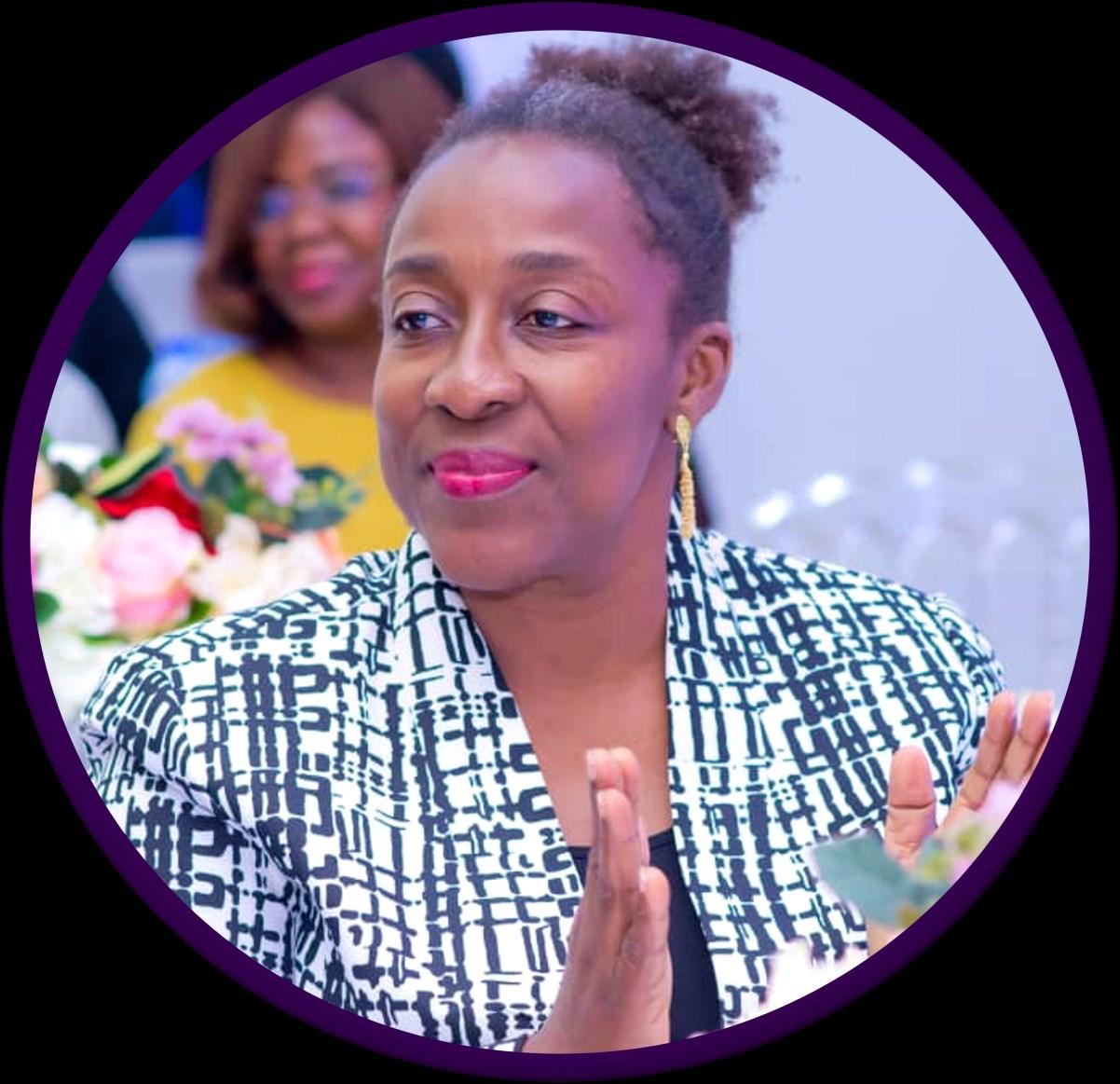
Q2. You serve on the board of trustees of the RDSF, can you share with us what influenced your decision to join the board despite it being a pro bono service?
ANSWER:
One of the Founders, Mrs. Komolafe is my friend and I have known her for many years. When she approached me to join, I knew it was pro bono but what she said was that she wanted the foundation to have a structure with accountability. I know what she and Admiral Komolafe stand for; their faith in God - and we aligned and that was what was important. It also aligns with my desire to help indigent children get better and do better at life. My purpose is to help others become what they want to be.
Q3. Kindly tell us how the success in your career has been instrumental in your engagement at the board of the RDSF and other Non Government Organisations (NGOs) you have served.
ANSWER:


I have worked in organizations that have been well run with structured work spaces and I was exposed to things that have shaped my mind about what you need to do to put structure in an organization and in my business. I therefore think that helped me put certain structure within RDSF and helped me contribute to the way RDSF runs.

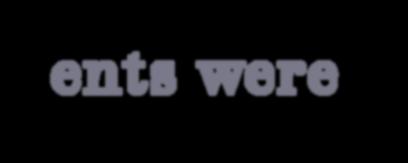
| 25 A QUARTERLY MAGAZINE
My maternal grandparents were teachers and education was very important to my parents.
R D S F
Q4. The RDSF focuses on economic empowerment through charity activities in education, mentoring and skills acquisition. In your opinion, what is the most challenging problem confronting the Nigerian educational system?
ANSWER: Personally, I think funding or actually underfunding, is one of the major problems. There aren’t enough funds allocated to education. The fact that education is underfunded in Nigeria means public schools are generally not up to standard and teaching is not an attractive career.
There is a high tendency to find teachers in schools who are teachers because they weren’t able to pursue their career of choice. It is bound to affect everything. Also, salaries are not good enough to attract class high performers to a career of teaching. They would rather go into banking, oil and gas or tech. If education was better funded and made more attractive then it would yield better results.
The United Nations recommendation is that 26% of the annual budget for developing countries should be allocated to education. Nigeria’s budgetary allocation to education is below 10%. We also have the highest rate of out of school children with about 20 million children out of school. We need government to give education special attention.
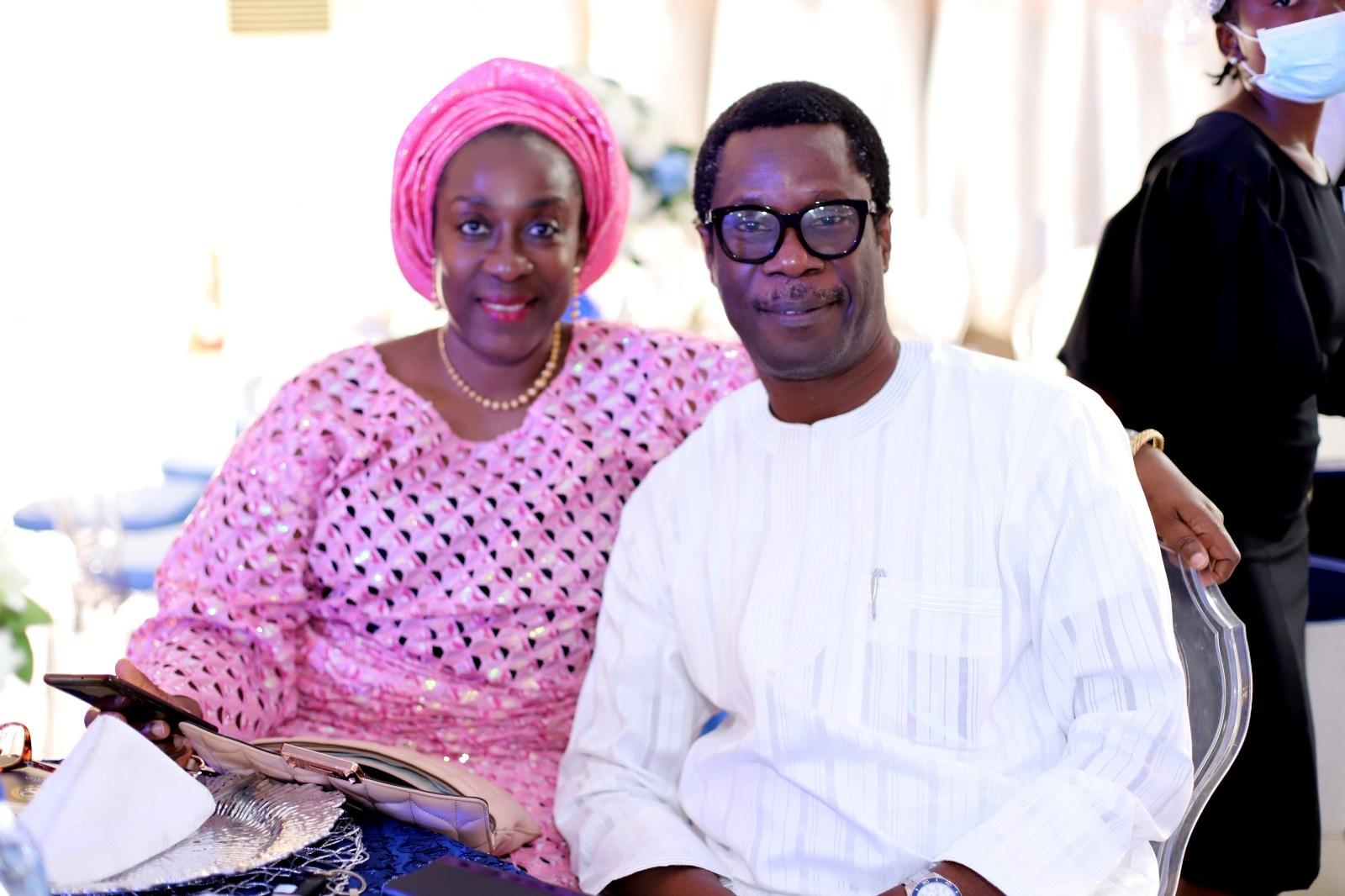
Q5. Of all the projects executed by the Foundation, to which do you have the most emotional attachment and why?
ANSWER:
There are two projects, one of them has to be the Teachers’ award that we organize. Like I said, the teaching profession is not given the recognition and status it should have yet teachers mold our children for good or bad and have a great influence on children.
Therefore, when a teacher does well despite the many challenges, he/she should be recognized and rewarded.
The 2021 Teachers’ award event was at a government school hall and it gave me the opportunity to observe the public-school environment and it wasn ’t a comfortable place.
Despite this, some of the presentations by the students were really good and moving. Another thing that moves me emotionally is when I see the success stories of the beneficiaries of the RDSF foundation.
Taking someone from their lowest level and assisting them with opportunities to be better and seeing good results and their lives on a different trajectory, is emotional.
THINKING ALOUD OCT - DEC 2022 26
R D S F
MrsRonkeOsikoyaandherhusbandMrTosinOsikoya.
Q6. Based on your experience, what would be your advice to a Nigerian interested in joining the board of an NGO or seeking to setup one?

ANSWER:
I have heard of people who set up NGOs just to get grants from overseas. In my opinion, it is very important to set up for genuine reasons to fill a need and for the NGO to be well structured and transparent. NGOs are primarily run with other people’s money. People donate money because they feel you are trustworthy enough to utilize the money in ways that they will be happy with. Be prudent and use the money wisely. An NGO is not a business. It is a non-profit organization and it is not for accolades. The only time recognition may come is if you have done something newsworthy or people nominate you for an award; and that is okay because God put you on earth for various reasons and not for yourself alone.
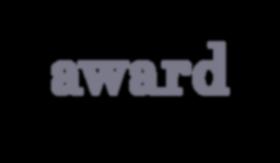


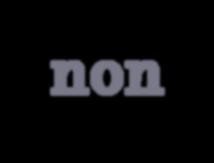

Q7. Based on your career as a management consultant, where did you find the connection between management consulting and philanthropy?
ANSWER:
I am not sure that there is a connection like that. Management consulting shows you gaps in many things because you are invited to solve problems in your own area of expertise. Because I might be able to identify problems or gaps in the different things



that I am exposed to and I have been trained over the years, I tend to reach out and help people. There are times I offer free services to my smaller clients. It's not something that's unique to me, it's just human nature.
Q8. You have been married for 34 years. Can you share with us some of the marital values that have kept your marriage?
ANSWER:
It’s important that you share the same values with your spouse. As a Christian, over the years and after making some wrong assumptions, I have come to discover that you have rights in marriage but they are those rights established by the author of marriage (God). Follow the principles in the bible if you want to make your marriage work and you will

27 A QUARTERLY MAGAZINE
An NGO is not a business. It is a non profit organization and it is not for accolades. The only time recognition may come is if you have done something newsworthy or people nominate you for an award
Lecture R D S F
MrsOsikoyaansweringquestionsatthe2019RDSFAnnual
do well. My husband and I are friends, and we have made up our minds that we are going to be together, so whatever problems come up, we are determined to resolve them and we do. No marriage is a fairy tale where you live “happily ever after”. Strive to be happy, do your best and be trustworthy
It is easy to get so scared of losing your job or missing out on a career that your family takes the back burner. There was a time my son was ill and I couldn't take a day off work because I was scared of losing my job. On my way to work, I dropped him with my sister-in-law to take him to the hospital. Looking back now I feel bad. Why was my job that important?
I think our lives also have an effect on children because they imitate what is modelled in front of them. If we are caught up in the trappings of wealth, so will they. Money is nice to have, don’t get me wrong, but sometimes I look back and believe that God didn't allow us to be very comfortable too early because we would have done lots of things without thinking just because we could afford them.
It's not easy to be parents. You just need to rely on God to bring up your children right because there are many temptations. Parents have to be more present in their children’s lives, help them to be strong enough to get through challenges and prevent them from getting their values from the streets.
Q10. What advice do you have for our readers on ensuring work – life balance?
Q9. On parenting, we have seen a rise in social vices within the last few years amongst our youth. As someone who has been mentoring young ones, kindly share your thoughts on how this menace can be curbed in our society.
ANSWER:
Absentee parenting is probably one of the reasons. Absentee parenting is not when the parents are not there physically. You can be there physically but not emotionally present or invested, not knowing who your children really are, or spending quality time with them.
In present-day Nigeria, both parents go out to work often till late and someone else raises your children for the most part. Our parents came home early when we were younger. We were left in the care of house helps for fewer hours and though there were still problems, at least our parents were more present. They were not caught up so much in the matrix that life has become.
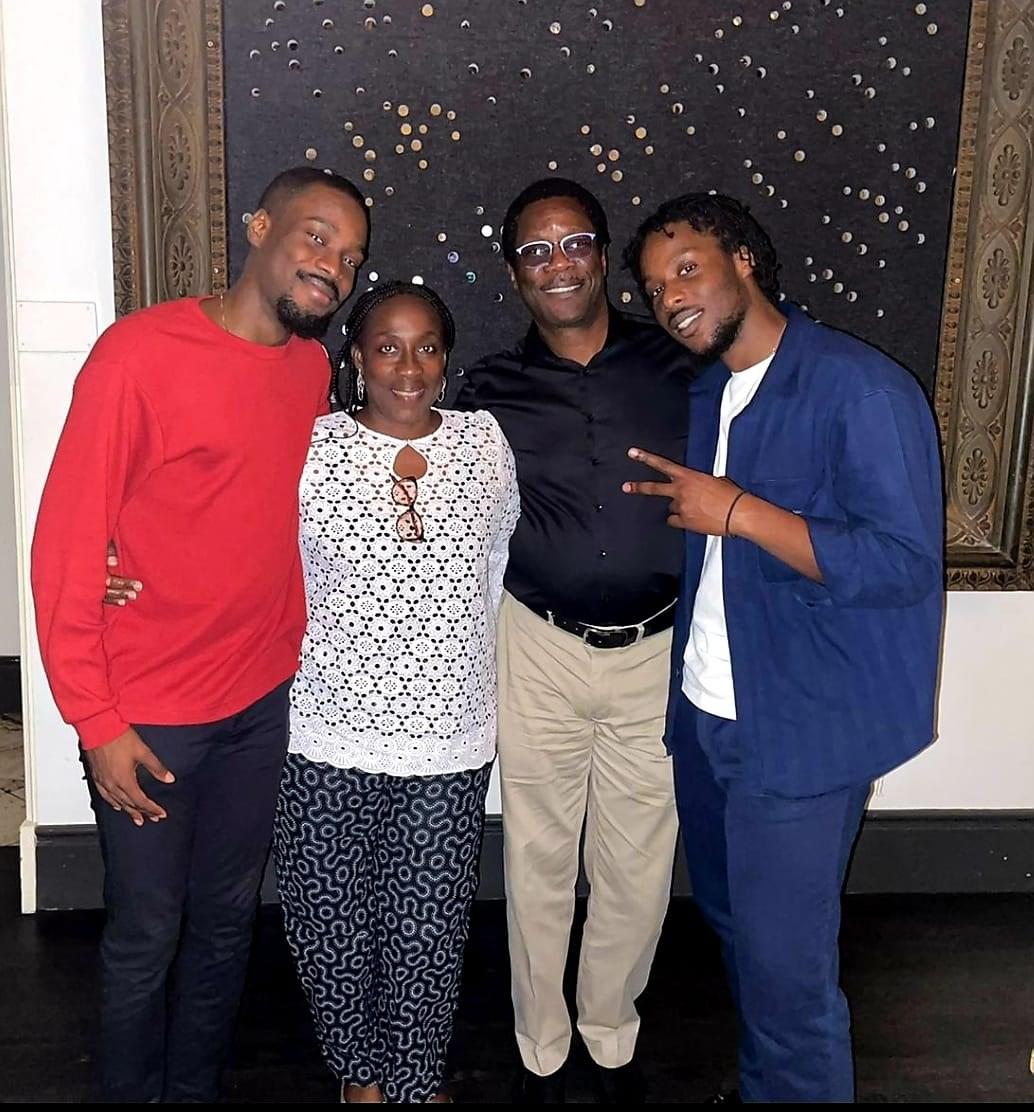
We were content people and those values percolated within the family. My mom always reminded us with examples that life is not smooth and would not be the same all the time. There are ups and downs in life and we should be able to cope with anything that comes. I can do most things on my own because of my upbringing because though we were brought up with all manner of help, my Mum never let us forget that it was a privilege.
ANSWER:
Sacrifice is the first thing I will say about that. People always talk about work - life balance but there are certain jobs where that is very difficult to attain. Sacrifice is often the only way and by establishing priorities. In marriage, the sacrifice often lands on the plate of the woman but it is okay.
If my sacrifice means my children turn out right, my husband is well regarded at the gate according to the bible and I can still live a life of fulfilment, then it works for me.
So my advice: Be prepared to make sacrifices for the sake of your marriage, children, and health and so on. God is not an author of confusion. He will ensure you get to where he has purposed for your life, if you let Him, without destroying you or your family in the process.
Q11. How do you unwind and enjoy yourself?
ANSWER:
I enjoy my own company. I like to read books. I love to read autobiographies and biographies. I like to see how people lived their lives and how great men and women surmounted life’s challenges.
I listen to audio books, read articles and watch teaching videos. I also watch documentaries. I feel the need to catch up on so many things.
THINKING ALOUD OCT - DEC 2022 28
R D S F
MrandMrsOsikoyawiththeirsonsSayoandAyodeji.

SPECIAL FEATURE ON RDSF
The Guest speaker was Dr. Marcy Verduin, an Associate Dean for Students and a tenured Professor of Psychiatry at the University of Central Florida College of Medicine. She is a Distinguished Fellow of the American Psychiatric Association and the Association for Academic Psychiatry, and a Fellow of the American College of Psychiatrists, where she also serves on the Board of Regents as an officer. Dr. Verduin a leader in psychiatry and medical education shared from her wealth of experience with the webinar attendees.
2022 RDSF Teachers’ Excellence Award
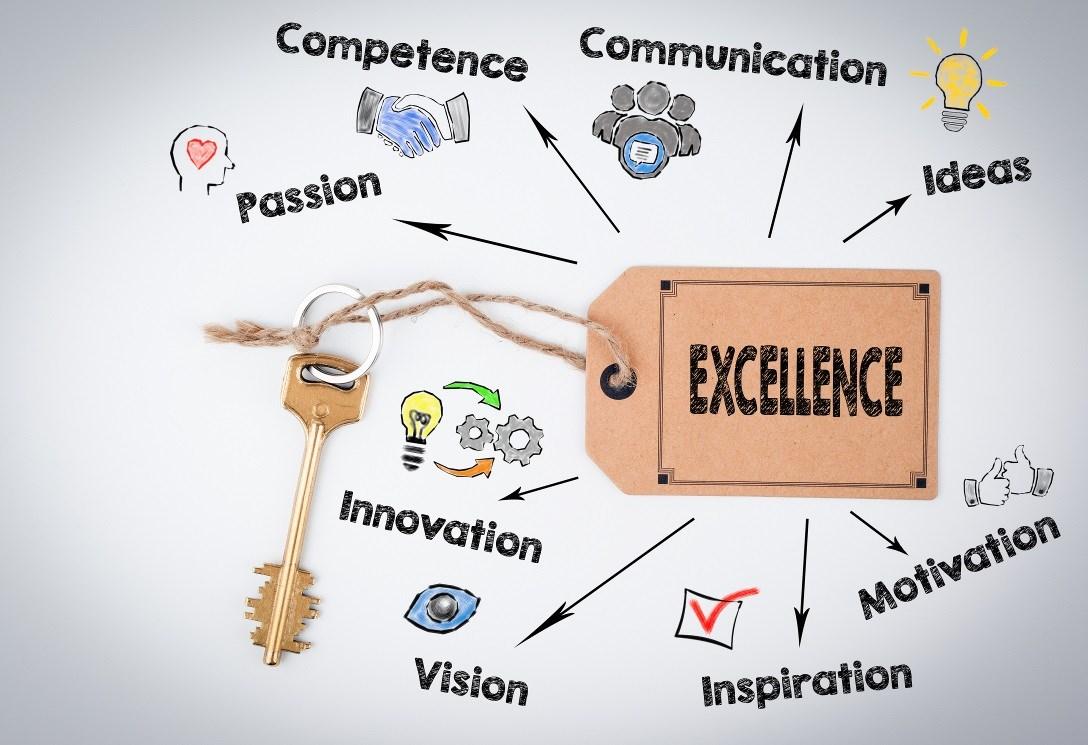
The 2022 RDSF Teachers’ Excellence Award held on the 30th of November at the Igbobi Junior High School Lagos. The event had as special Guest of honor, Rear Admiral Hamza Ibrahim, the Admiral Superintendent, Nigerian Navy Dockyard VI Lagos. The Chairman, Board of Trustees of the Rehoboth Dream Solid Foundation, Rear Admiral (Rtd) Olasehinde Olusoga Joseph delivered a speech on the occasion of the 2022 RDSF Teachers’ Excellence Award ceremony. His speech at the event is shared with our readers for an insight into the mission and work of the Foundation.
The Rehoboth Dream Solid Foundation since inception in 2011 has supported over 250 students via scholarships and over 1,000 young people through her skills acquisition and mentoring programs.
The impact of the work done by the RDSF can be seen in the ability of our past beneficiaries to live financially independent lives. Most of them are now able to acquire additional professional qualifications and to further their studies even as some have joined other benevolent Nigerians to extend financial support to those in need via the RDSF schemes. Some of these testimonies have been published in past editions of the TA magazine and can also be found on our website.
This year, the Foundation adopted and awarded scholarships to fifteen new students in various tertiary institutions in the country; even as we continue to support existing beneficiaries.
2022 ANNUAL TEACHERS’ AWARD EVENTS
The 2022 Annual Teachers’ Award events held between 29th and 30th of November 2022.

Webinar
On the 29th of November, the Foundation organized a webinar on the topic; Mental Wealth: Understanding Mental Health and Well-Being. The webinar was attended by over 300 people and post event feedback received shows it was a wellreceived topic.
1. Let me first express my gratitude to the Almighty God for granting us the grace to see the light of today. I am indeed honoured to present these remarks.
I felicitate with our dear teachers on this occasion of the Rehoboth Dream Solid Foundation’s 2022 Teachers’ Award-in-recognition of the efforts of teachers. As we are all aware, Nigeria being a player in global affairs and a leading nation in Africa has had its fair share of insecurity in recent times, which has overtime, threatened the positive development of education. Similarly, the advent of Covid-19 and its attendant disruptive effect on
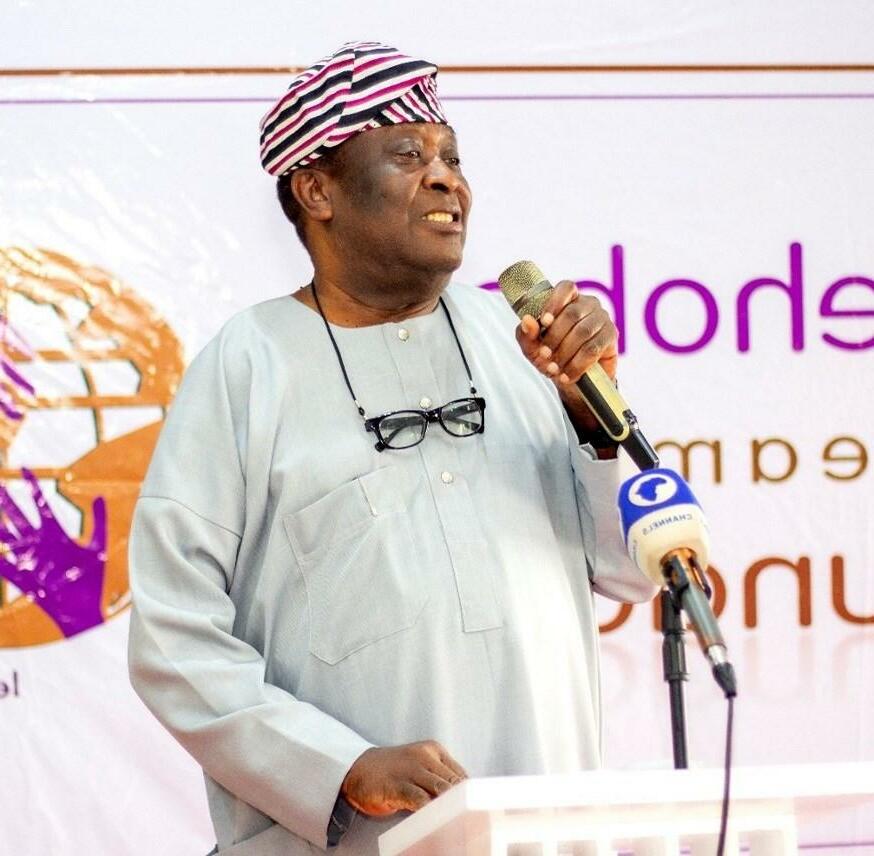
THINKING ALOUD | OCT - DEC 2022 30
Rear Admiral (Rtd), Olusoga Oladeinde Joseph giving his speech at the 2022 Teachers’ Excellence Award:
R D
F
S
academic activities further strengthened a more holistic technology-based approach to teaching in order to avoid learning gaps. It is really gratifying to note that teachers have continued to put in keen efforts in the discharge of their responsibilities despite the challenges of the unusual times we are in.
2. The former president of India, Dr APJ Abdulkalam said: “Teaching is a very noble profession that shapes the character, calibre, and future of an individual. If people remember one as a good teacher, then it would be the biggest honour for one ”. Since 2018, The Rehoboth Dream Solid Foundation, alongside numerous well-meaning citizens of the world has chosen to recognise teachers who are doing their best to invest in the next generation world leaders. It is therefore our joy to set aside today to acknowledge and appreciate teachers for all their efforts.
3. Richard Dufour, an American Education researcher known for developing educational strategies once said, “Teaching is the profession that creates all other professions”. Without teachers, there will be no lawyers, no doctors, no scientists, no engineers, no architects and many more. Teachers do not only build the life of students but an entire generation through their ideas and knowledge.
Therefore, teachers have a major role to play in shaping the future of students and helping them become successful in their respective careers. Dr AbdulKalam equally noted that “Teachers are the backbone of any country, the pillar upon which all aspirations are converted into realities.” Consequently, Teachers form the crucial stepping stones that ultimately guide students to the path of success.
Hence, it is only logical for anyone in a position to encourage and recognise teachers to do so, in whatever little ways they can. It on this note that I on behalf of RDSF Board of Trustees make a pledge that the Foundation will continue to encourage and reward teachers making a difference, for as long as God gives us the grace,
4. It is in this light that we will be giving 3 awards today. These awards come with cash prizes ranging between three hundred and fifty thousand to the winner, two hundred and fifty thousand to the 1st runner up, one hundred and fifty thousand naira to the 2nd runner up and fifty thousand naira as consolation prizes to six teachers that have been carefully selected. Kindly note that, should you miss out of today’s prizes, it does not in anyway indicate the RDSF appreciates you less. This opportunity comes once a year, it may just be your
turn next year. You are also encouraged to stay fully connected with the Foundation as the Foundation is in the business of celebrating teachers.
5. Ladies and gentlemen, permit me to use this forum to pass a message to the authorities in Nigeria on behalf of teachers, since we can not tell where this will be heard or seen. Given the importance of the education sector to the national prosperity of a nation, I would implore the Federal, State and Local Governments to put in place measures that will ensure never again in our country will education be interrupted in the way it was through ASSU work to rule recently. Nigeria is yet to know the damaging effect of that action on our education system and it is hoped the Nation will recover from it.
6. To teachers, I encourage you all to continue with renewed vigour to imbibe the tenets of a good teacher that would enhance the quality of education, thereby promoting the national prosperity of the nation. Create a trusting environment for your students. Communicate the classroom’s curriculum in an effective and organized manner that students will understand.
7. In addition, as good teachers, you must imbibe a strong work ethic. A good teacher never quits, and especially not on his students. Strong work ethics involve professionalism and being completely responsible to students. You must take responsibility for several things, including your students’ possible misbehaviour within classroom settings.
Note that not all students have the same attention span or the same level of discipline and ‘learnability’. As teachers, you must be patient and remember that this is an inevitable part of the teaching profession.
8. Lastly, as good teachers, you must be role models to your students. You should always be able to influence your students positively to ensure they meet the required expectations. Your students will always want to look up to you as their role model. You must not fail them in this responsibility.
9. On this note, I want to sincerely commend the Board of Trustees of RDSF for this noble initiative. I also want to appreciate all teachers here today and congratulate today’s awardees for their selfless efforts in shaping the future of our nation.
10. I thank you most sincerely once again and hereby declare open Rehoboth Dream Solid Foundation’s 2022 Teachers’ Award Ceremony.
Thank you and God Bless.
| 31 A QUARTERLY MAGAZINE
R D S F
photographs from the 2022 teachers’ award




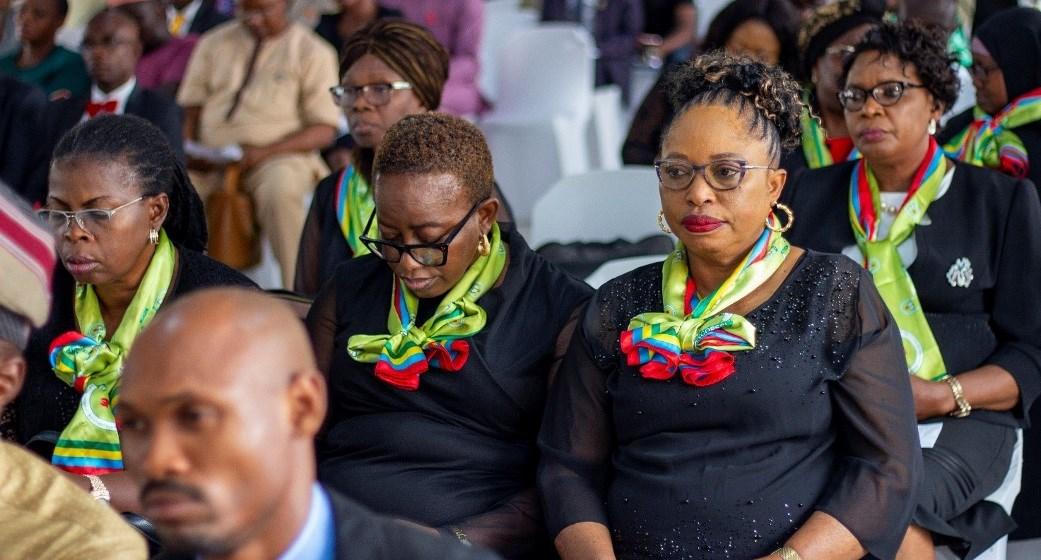
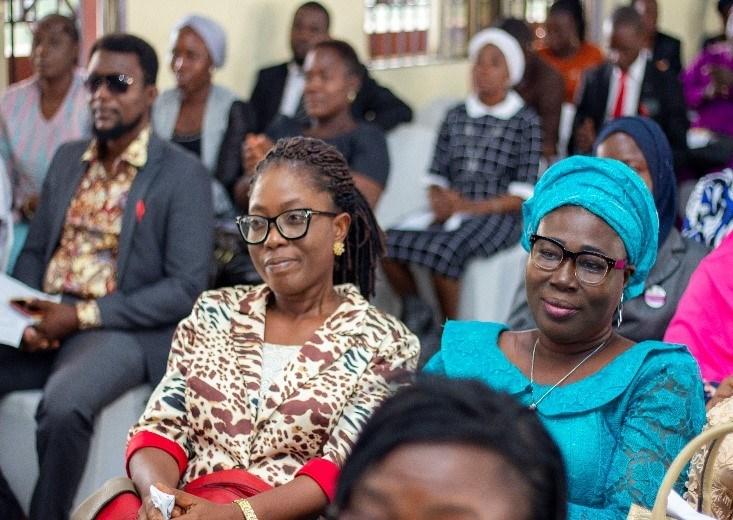
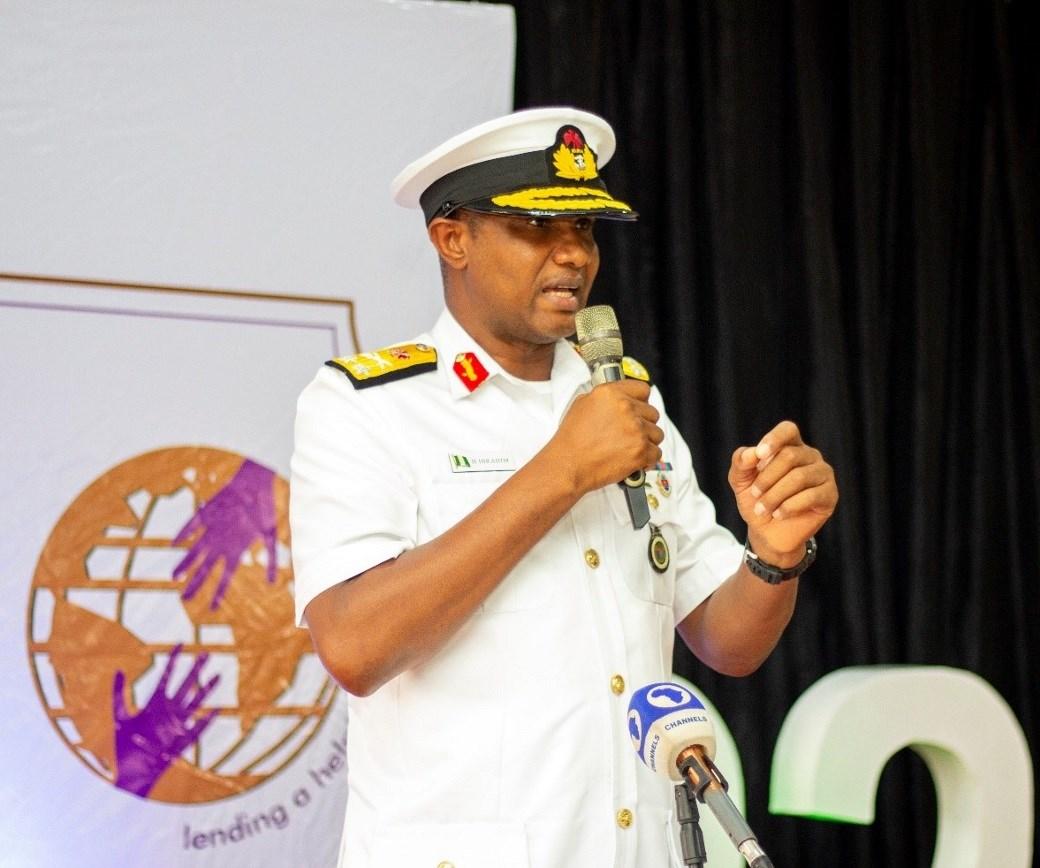
THINKING ALOUD OCT - DEC 2022 32
Special guest of honor; Rear Admiral Hamza Ibrahim Admiral Superintendent, Nigerian Navy Dockyard VI Lagos
Cross-section of teachers at the event.
Cross-section of college principals at the event.
RDSF Trustee/Co-Founder, Mrs Abimbola Komolafe (centre) with winners of the 6 consolation prizes
Right: Winner, Mrs Omolola Funmilola Adeyeye.
Cross-section of teachers at the event.
R D S F
Right: 2nd Runner-up, Mrs Abiola Ige.
Mrs Omolola Funmilola Adeyeye Winner of the star prize
accorded it’s deserved respect is because of the poor remuneration given to teachers by their employers. If I wasn’t teaching, I would be a Chemical analyst.

Q3. How do you feel being the winner of the TEA 2022? Have you won any award before now?
I feel super excited to be the winner, I’m eternally grateful to God. This is my first award in the teaching profession and it came at the right time.
Q4. You have been a teacher for over a decade, what will you call your most memorable experience?
Q1. Kindly tell us a little bit about yourselfeducation background and family.
My name is Omolola Funmilola Adeyeye, née Osho. I am from Osi Ekiti in Ido Osi Local government area of Ekiti State. I was born into a family of 7 and I grew up in the ancient city of Kano in Kano State. I obtained my first degree in Chemistry from Kano University of Science and Technology in 2008. I got my Post Graduate Diploma in Education from Usman Dan Fodio University, Sokoto in 2014, then a masters degree in Chemistry from University of Lagos in 2018 and I am presently a PhD student in University of Lagos. I’m happily married to my best friend.
Q2. Why have you chosen the teaching profession? Do you think the profession is accorded enough respect in Nigeria? and what would you be doing if you were not a teacher?
I chose the teaching profession because of my passion for impacting lives through teaching. “Education is the most powerful weapon which you can use to change the world,” as Nelson Mandela said. If this quote is true then I can say that most people in our country don’t value the teaching profession and it is not accorded the respect it deserves.
For instance, we cannot compare the massive financial support the popular Big Brother TV reality show gets from both the viewers and the sponsors with that of the Teachers Naija TV reality show. I appreciate few organizations like the Rehoboth Solid Dream Foundation, RSDF who has deemed it fit to appreciate the efforts of teachers. Another reason I think the profession is not
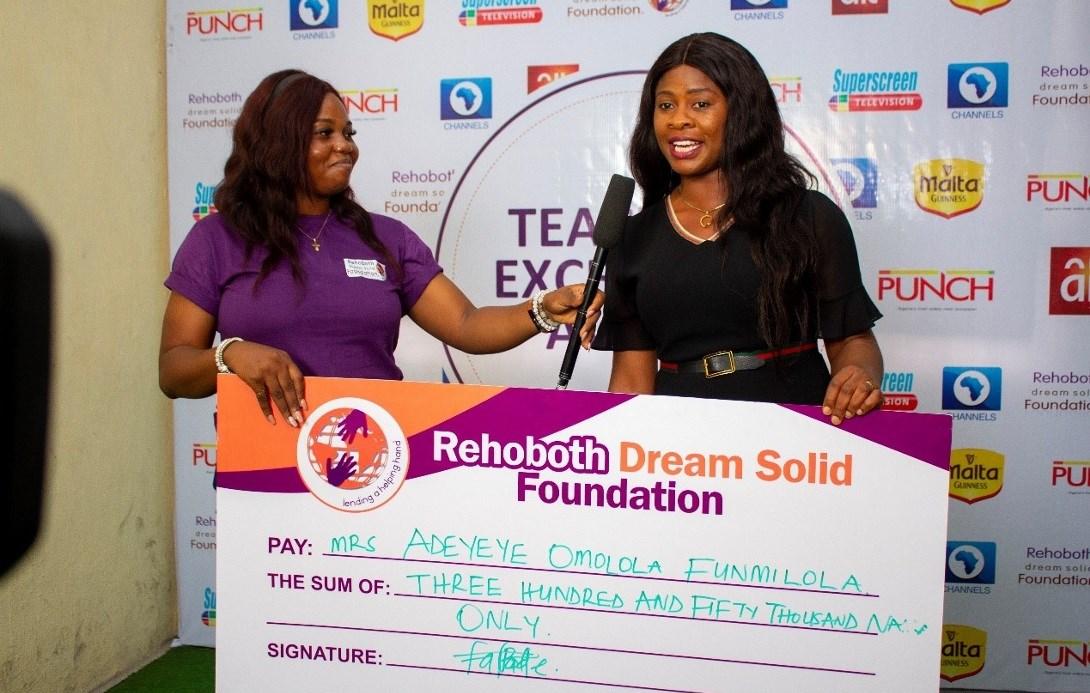

My most memorable moment was when my name was called out during the 2022 RDSF Teachers Excellence award ceremony as the best teacher. It’ s over 10 days now and the whole event still keeps flashing back.
Q5. The theme of this year's award is on Mental Health. How do you create a work life balance as a teacher?
My mantra is “Never get so busy making a living that you forget to make a life “ - Dolly Parton
To create a work life balance, the first thing I do is to plan every week by having a “to do list”. I deliberately set out time to visit families and friends and also plan fun activities for my personal time and this was one of the reasons I started out on my passion (photography) and it’s now gradually turning into a profitable business.
Q6. Finally, what is your advice to every teacher and aspiring teacher out there?
My advice to every teacher or aspiring teacher is that they should be passionate about the profession having in mind that millions of lives will be impacted either directly or indirectly.
33 A QUARTERLY MAGAZINE
R D S F
Mr Christopher Eziefula 1st Runner-up
Q1. Kindly tell us a little bit about yourselfeducation background and family.
I am Mr. Christopher Chidiebere Eziefula from Owerri-North Local Government Area in Imo State; The first of four siblings, born and raised in Lagos, where I had my primary and secondary education. I obtained a Master’s Degree in Educational Measurement & Evaluation from the University of Lagos (2014), and a Bachelor’s degree in Education and Chemistry from Lagos State University, Ojo Lagos State (2007).
A year later, I served in Bauchi State NYSC batch A stream 2 during which I obtained a graduate membership certificate in management (Nigerian Institute of Management), volunteered as a peer educator under the National Reproductive Health and HIV/AIDS prevention and care project through the NYSC scheme and also served as a zonal coordinator in Nigeria Christian Corpers Fellowship.
A few months after my service year in 2009, I gained employment with an IT firm as an IT instructor, I worked with tech savvies and learnt a lot. In 2010, I joined the Lagos State Teaching service as an Education Officer, I have been there till date as an Assistant Chief Education Officer.
Q2. Why have you chosen the teaching profession?
I chose the teaching profession because it affords me the platform to mold and inspire younger minds to be unwavering in succeeding. It accords me the opportunity to model the right attitude to them so they can lead fulfilling and satisfying life. I don’t know how to hoard knowledge, I just feel eager to share in my experience and skill, in return, the feedback and gleeful expression of satisfaction gives me feelings money can’t buy. What started out as an academic pursuit later turned into a passion and my forte.
Q3. Do you think the profession is accorded enough respect in Nigeria and what would you be doing if you were not a teacher?
Here in Nigeria, I think The Teaching profession is not accorded “enough respect”. I started out into the IT world before veering into professional teaching, I can say assuredly that there is a need to accord much more respect to the teaching profession. Some reasons responsible for such disrespect include:
a. The impression that teaching is a noble profession and not a fast money-spinning line of work that yields profits within a short period of time.
b. That teaching is an all-comers affair, just about anybody can teach not minding if they meet the profession’s requirement, qualification, skillsets and passion.
I believe the government and the community can do more to face lift the profession and curb the brain drain in teaching field. Get in the best brains to teach and remunerate them adequately. The current teachers also need periodic in-service trainings, and lastly, there is need to openly motivate and celebrate the hardwork and efforts these teachers put in.
If I were not a teacher, I would be an ICT consultant and trainer or pursue a career in Test, measurement and evaluation. I find these fields fascinating and interesting too.
Q4. How do you feel being one of the winners of the TEA 2022? Why do you think you deserve the award?
I feel so elated and gleeful being one of the winners of the TEA 2022, such an honor. Thank you for the recognition. I believe this award provides validation and recognition for years of conscientious hardwork and sacrifice for the teaching profession. Below are reasons why I deserve this award:
• I am a qualified, experienced and passionate teacher, I inspire and encourage all my students to learn. I devise creative ways to enhance my teaching and their learning experience. This is responsible for the consistent 80-100% Computer Studies pass rate in my students’ performance like in the just concluded WASSCE and NECO 2022.
• I have the respect and admiration of my students (Ex and present). I have a good empathetic interpersonal skill which makes me treat them fairly with their interest in mind, without having to compromise with discipline.
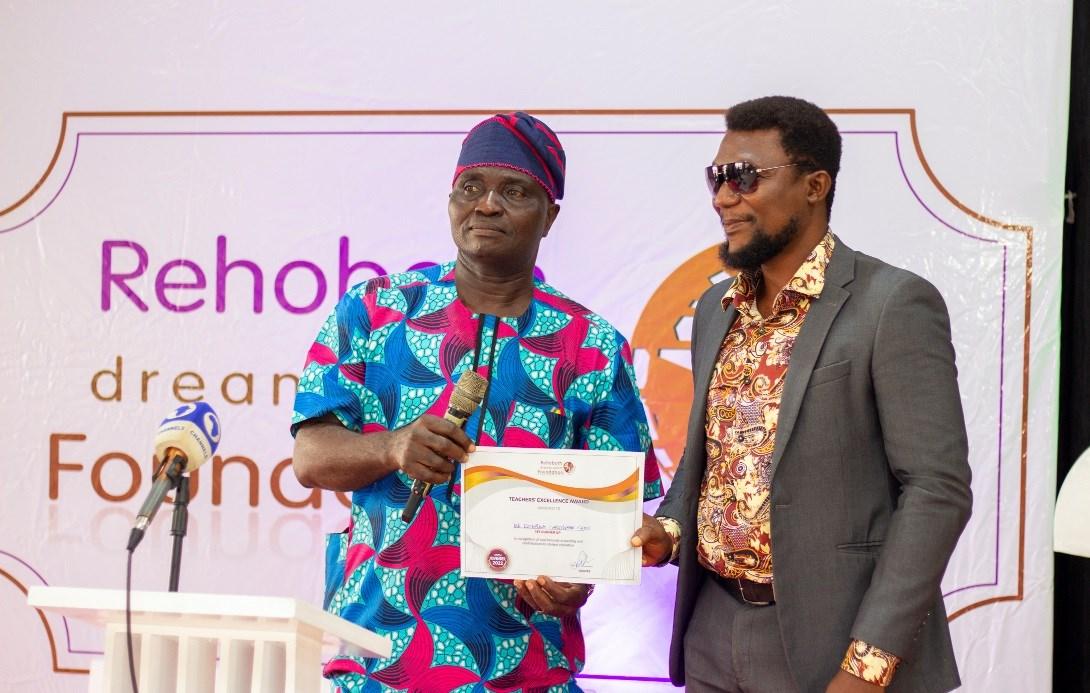
THINKING ALOUD OCT - DEC 2022 34
R D S F
L-RMrStephenOlatunji(representingtheLagosstate Commissionerforeducation)andMrChristopherEziefula;1strunnerupTEA2022.
• I go above and beyond the regular duties as a teacher to handling other responsibilities assigned to me by my school management, the district authorities, and Subject association. For example, Education Management Information system personnel, school records management and data analysis resource person, Information technology Subject Teachers Association of Nigeria (ITSTAN) Education District II pioneer and current executive member, coordination of the school Boys’ Brigade.
• Professionally, I have a positive relationship with my colleagues and I align with educational goals and policies like Child Rights and etc.
Q5. How do you think a teacher can avoid burnout? What advice do you have for your colleagues who are considering quitting teaching because of burnout?
Burnout is a state of chronic stress that leads to physical and emotional exhaustion, detachment and feelings of ineffectiveness and lack of accomplishment.
I think a teacher can avoid burnout by:
• Creating a balance into their lives, set clear boundaries on activities and your time, so as not to be ineffective.
• Know when to rest. At some point you should be able to take a break and refresh, it is good for your health though.
• Love what you do so.
• Never underestimate the role of feedback, it is an assessment tool that sets a guide on what areas need improvement.
Q6. How do you motivate your students as a teacher?
One way I motivate my students is to pay attention and observe my students to know when they are lagging behind and offer my assistance through words of encouragement and most of the time, taking extra time to explain the difficult concepts.
I make myself accessible and reachable.
I understand the place of individual differences in terms of learning, where we have slow, average and fast learners, hence I am cautious as not to overtly stress on their inadequacies.
I applaud every little win/progress.
I create a threat free environment where students are free to learn without fear and marginalization.
Mrs Abiola Ige 2nd Runner-up
#1. About Myself - Education, Background, And Family
My name is Abiola Olubusola Ige. I was born on 31st March 1971, into the family of Prince and Mrs. Moses Adeoye Olatunji. We used to be four girls and three boys. I am the eldest child (after the loss of the family’s first child).
I started my primary school education in 1974 at Grace Children Nursery and Primary School , Ikorodu Road Lagos, and completed it at Anglican Primary School, Ogudu, Lagos. I had my secondary education at Federal Government College, Odogbolu in Ogun state between 1982 and 1988.
For my tertiary education, I attended the University of Ibadan where I graduated with a B.Sc. in Physics in 1992. In 2003, I obtained a Postgraduate Diploma in Education (PGDE) from the University of Calabar and followed it up with a Master of Education (M.Ed.) degree in Measurement and Evaluation from the University of Lagos in 2012.
I am happily married to Assoc. Prof. Olumide Ige. Our marriage is blessed with wonderful children.
#2. How I Feel Being One of the Winners of the TEA 2022 Award
I feel so overwhelmed, honoured, excited, and above all, grateful for being one of the winners of the TEA 2022. I consider the award as a recognition of the hard work I have put into service and the contributions I have been making to the education of young ones over the years.

#3.
Why I think I deserve the Award
I deserve the award as a dedicated, passionate, and focused teacher who, over the years, has been mentoring students who have been distinguishing themselves in various fields of human endeavours
35 A QUARTERLY MAGAZINE
R D S F
L-RMrsAbimbolaKomolafe(RDSFTrustee),MrsAbayomiAbolaji(TutorGeneralEducationDistrictII),MrsAbiolaIge;2ndrunnerupTEA2022andRearAdmiral(Rtd) KehindeKomolafe(RDSFTrustee)
and competing well with their counterparts across the globe. Presently, I teach Physics at Somolu Senior High School, Igbobi, and, just like I have done in all the schools where I have been opportune to serve, I approach teaching with dynamism and a keen sense of purpose.
This is why I use diverse but engaging teaching and assessment strategies, adapt my lessons to accommodate individual differences and make my subjects more appealing.
#4. How I Manage a Depressed Student?
First, I would like to say that the theme of this year ’s award on Mental Health is not only apt but timely, especially given the reported rise in the cases of depression and other mental health-related illnesses across the globe. Although depression is often perceived as an adult disorder, some reports indicate that middle to late adolescence is the most common age when symptoms first appear. It is believed in some quarters that the average age of onset of major depression is 14! This is a period in which the students are in secondary schools under our guidance as teachers. However, when depression is recognized early and, professionals provide treatment, young people can function better in school and life. As a teacher, I have always cultivated positive relationships with my students. They feel free to share with me some things that bother their minds. Our interactions have always provided the opportunity to recognize the signs of depression in my students early enough.
Now to the specific question: How do I manage a depressed student? Once I recognize a depressed student, I would devote more time to relate with the student to regularly monitor whether there are suicidal thoughts and possibly determine the underlying cause(s) of depression, even while giving the student frequent feedback on academic and behavioral performance. This is important because there could be situations that might necessitate making appropriate referrals.
In the course of our interactions, I would always encourage the student to set realistic goals, teaching the student how to set such goals and selfmonitor. I would also coach the student in ways to plan and execute tasks demanded daily or weekly in school. This would help a depressed student manage pressure.
Teaching a depressed student problem-solving skill is critical at this point. This is to help the student realize that problems are part of life and the reality of living and that whenever they arise, they are to be solved as much as possible without allowing them to overwhelm or crush us.
Moreover, because it is important to give the students opportunities to engage in social interactions, the student will be allowed to participate in group activities or projects, and sometimes lead their groups in these activities. This can help rebuild self-concept and improve the student’ s outlook in life.
#5. One of My Proudest Moments as a Teacher
In my experience as a teacher spanning about three decades, I have had so many proud moments (all of which I cherish!), but the most recent and touching was the one in which I was announced as one of the winners of the prestigious TEA 2022 awards. It was most touching because I was nominated by students. Interestingly, I never directly taught some of the students. After all, they are not even science students. It was simply awesome! I felt I had received a priceless gift. I still have with me some of the written accolades by my past students which I so treasure.
#6. Practice in the education sector I would change if I had the capacity
The practice I would change in the education sector if I had the capacity is the recruitment of unqualified people as teachers at every level of education. Given the role of the teacher as a nation-builder and the profession as a lighthouse in any progressive society, teaching is supposed to attract the finest and the best. The requirement in other climes tends to be more rigorous and intended to ensure that only those that want to be in teaching and are amply qualified, are teachers.
Unfortunately, due to several factors including the ever-increasing pupil enrolments, many people have found their way into the profession as an interim or stop-gap activity. These people cannot be expected to be committed to the profession. This is why sound policies may not be successfully implemented. As a result, the students are affected, the system is affected and the entire society is affected.
I am aware that efforts are ongoing to further professionalize teaching at all levels, but the perception that teaching is an ‘all-comers’ profession is still strong. Some even doubt if teaching could be termed a profession in the ‘technical sense’. There is a need to scale up efforts in this regard. The image of a profession can only be as good as the quality of its members. It is my humble submission here that the teaching profession is noble, and the nobility of the profession should reflect in and through the practitioners at all times.
Thank you for the opportunity.
THINKING ALOUD OCT - DEC 2022 36
R D S F
A REHOBOTH DREAM SOLID FOUNDATION SUCCESS STORY
Background

My name is Dr Falade Oluwabukola Modupe a graduate of medicine and surgery from Ekiti state university. I am the second child in a family of four and I am from Epe Local Government in Lagos State. I am currently doing my year Housemanship programme.
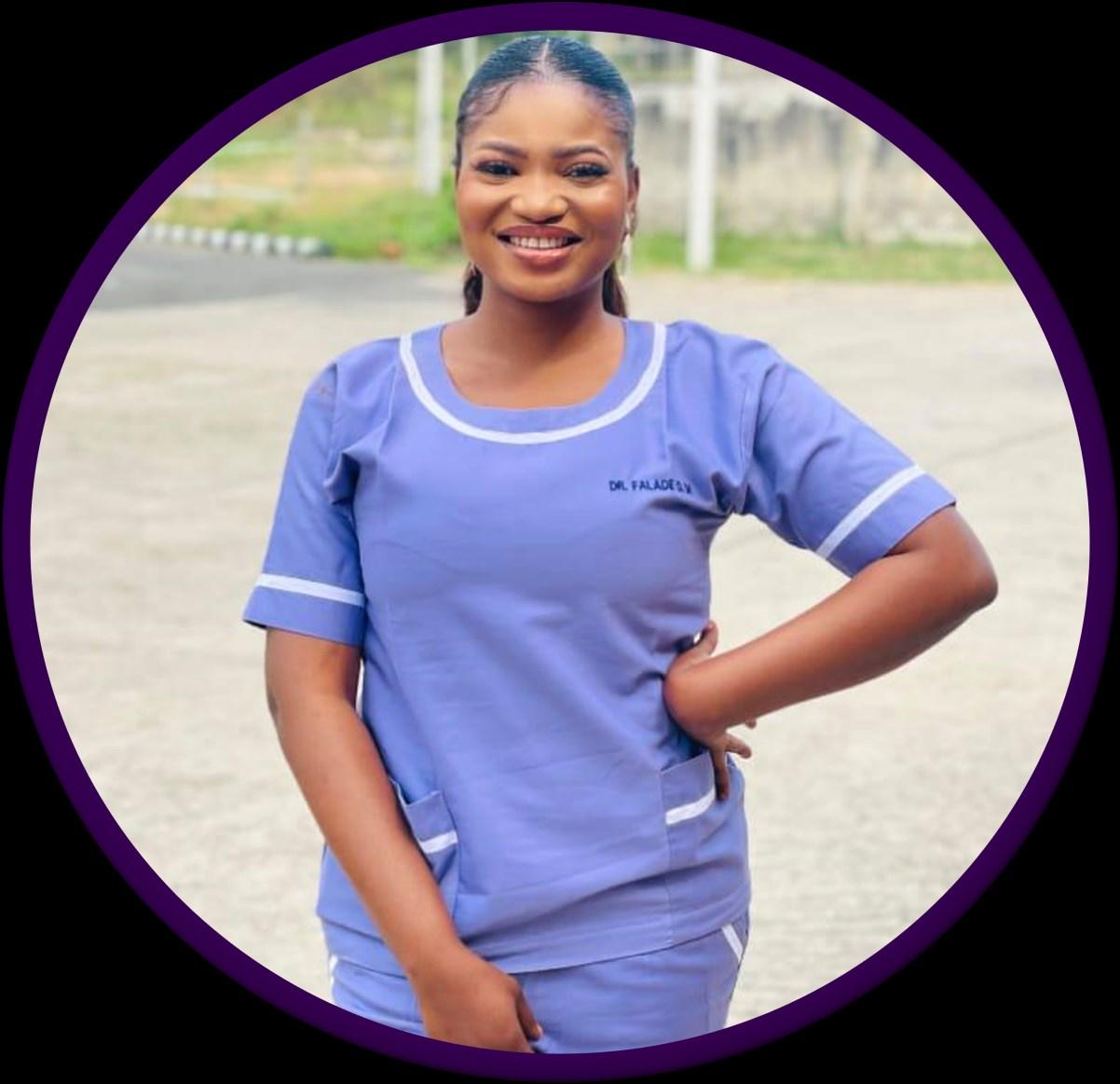
Growing up, we lived in a “room and parlour” in Mushin, Lagos. My family was among the average families in our neighbourhood and most families around our neighbourhood looked up to us as we were comfortable to a considerable extent. It was fun for me as my parents were doing fine in their businesses - I had the privilege of attending a private school from primary to junior secondary school but things started to fall apart when I was about to enrol for my senior secondary education.
My parents’ businesses were experiencing a downtime and none recovered for a very long time. They had to withdraw me from the private school I was attending, to a public school.
Academic goals and obstacles faced
I had always wanted to be a medical doctor because I had interest in caring for children and the elderly within my reach. I remembered being friends with everyone who just gave birth in my neighbourhood just because of the new born and I have always been among the best in my class.
The major challenges I faced as a child were financial as most times, I had to be sent away from school due to my parents’ inability to pay my school fees and get the necessary textbooks. I remembered when I was in JSS 2, the Vice principal had to invite my mother to school and begged her to
always pay my fees on time because I was too brilliant to keep missing school and I remembered my mum wept uncontrollably. So basically, while growing up, finance was a major obstacle.
My journey with RDSF
While I was preparing for tertiary studies in 2012, I sought admission into Lagos State University because I am an indigene of Lagos State and the school fees at the time was just N25,000 which would have been affordable to my parents.
However, it was that same year that the State Government increased the school fees to N250,000 per session. I knew my parents will not be able to afford this, so I opted for Ekiti State University whose fees was below N150,000 at the time.
I supported my parents to raise the money by working for some time before resumption. Unfortunately for me, Lagos State Government reversed the fees policy a year later.
I gained admission in 2013 but by 2018, I was still in 300 level because the school was battling the challenge of accreditation. By the time this was eventually resolved, the basic fee was increased to N350,000 and this excluded other vital fees. At this point, I was full of regrets and almost depressed because my parents will not be able to afford it.
I had spent 5 years of my life chasing a dream that was about to be shattered – not to imagine the disgrace of returning home. I engaged in a whole lot of activities all in the bid for survival. I did a lot of menial jobs and hustling; including street-promo jobs, ushering, serving at events and even work as a sales girl while in medical school.
Whenever I was on break, I am always among the first to travel to Lagos but return late because I must find part time jobs to raise money to feed and get textbooks.
37 A QUARTERLY MAGAZINE
R D S F
an extra year.





While being friends with the RDSF administrator, he got to know about my predicament, encouraged me to search for scholarships online but never mentioned he works for such NGO.

I remembered even telling him that I do not believe in scholarship programmes because I have been applying since 100 level and got none. I thank God for listening to him because it was in the reply that I got to know he works there and that was the breakthrough for me. The Foundation had a limit it
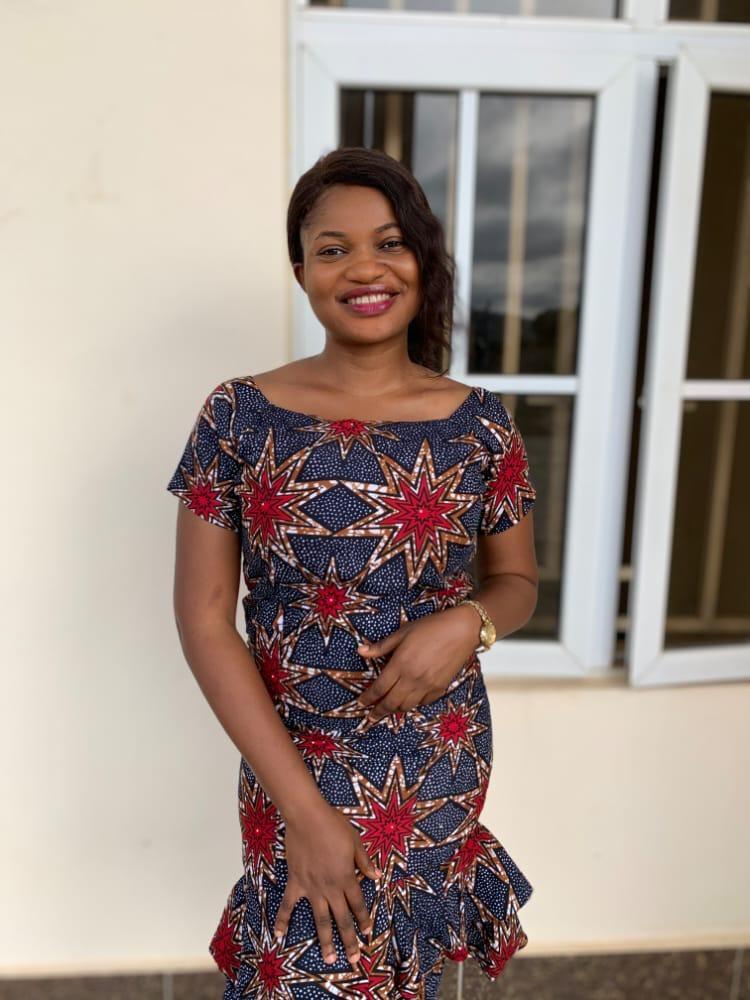
reward you all abundantly. Amen.



THINKING ALOUD | OCT - DEC 2022 38
R D S F
My background has taught me that no matter the circumstances you are face in life, you can be whatever you want to be in as much as you are hardworking, prayerful, and focused.
A REHOBOTH DREAM SOLID FOUNDATION SUCCESS STORY
Introduction



My name is Ige Rachel, the last child in a family of four children. I am a graduate of the University of Ibadan from where I got my LL.B degree, I also hold a BL degree from the Nigerian Law School, Abuja.
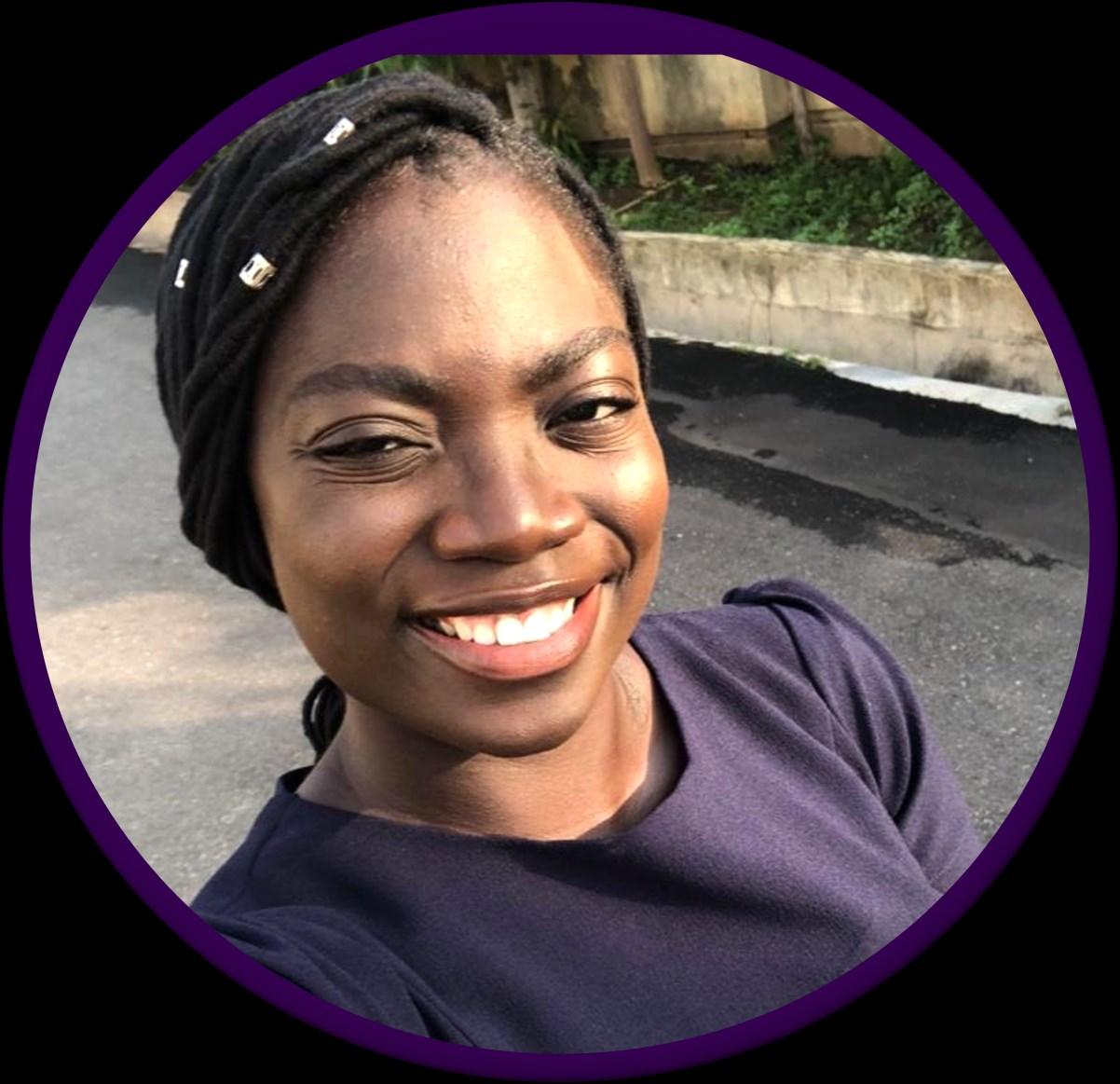
Background



I was raised in Ibadan and had most of my education in the large city of rusty roofs. My parents were both civil servants who were deeply involved in the overall welfare of their children.
My father was a teacher as such, he placed a high priority on education and did all he could to ensure that his children had access to great education.
I remember when we were in Primary school, my father would wake my siblings and I up as early as 4:30am. We would read our book till 5:30am, have our family devotion and from there prepare for school and we were never late!
Expectedly, with our supervised reading our academic performances improved. I particularly was always in the top 5. Thankfully, my school, St Catherine’s Nursery/Primary School, Jericho Ibadan, has a proprietress who loved to encourage students who displayed academic prowess and show avid interest in education.
As the best graduating student in my primary school, I was offered a partial scholarship at St. Catherine’s College, Aleshinloye Ibadan.
This was a great relief to my parents as they had to juggle payment of my elder siblings’ university education alongside mine and my brothers secondary education.
My father would always tell us that the only inheritance he would leave for us is a good education and with that he was confident that we can forge our own paths and make a name for ourselves. His aim, as he would always tell us, was to ensure that his children would have all completed our tertiary education before his retirement.
My father’s death... Unfortunately, about four years to his retirement, my father died. This was during the long ASUU strike in 2013. I had already gained admission to study law at the University of Ibadan and was in my second year at the time.
Due to the strike, I had enough time to grief and was a bit emotionally stable at the point of resumption.
Before my father’s death, I was a bit too comfortable and lax with my education, as I always believed that as long as my father was available, things would always make sense.
When he died, I had a rude awakening, I knew I had to work harder since my failsafe option was gone. Thankfully, though I could not afford to buy textbooks, I was blessed with senior colleagues who donated theirs to me and they really helped a lot.
My brother who was a banker at the time took up payment for mine and my immediate elder sibling’ s education, supporting my mother. It helped that we were both in Federal universities with reduced fees.
39 A QUARTERLY MAGAZINE
Unfortunately, about four years to his retirement, my father died. This was during the long ASUU strike in 2013.
R D S F
RDSF and I
The first time I heard about RDSF was in 2016. I was already in my final year when we were notified of a call for applications for sponsorship by a charitable organization through the University of Ibadan. Although I was almost done with my school, I felt the monetary aid would come in handy for my thesis as I was struggling and managing the limited funds at hand, it helped that I was frugal. Unfortunately, an interview date was set for applicants but I was not aware because my phone was faulty and I didn’t get a notice. I only knew about the interview days after it was conducted when a junior colleague informed me. By December 2016, I graduated with a Second Class Upper Degree against all odds.
It however seemed that God was intent on my paths crossing with RDSF. When it was time for law school, I could not afford the fees but it didn’t stop me from trying. Garnering the fees was a daunting task particularly because the fees were almost four times the amount I ever had to spend in a session while in the university. I considered giving up the whole idea of attending law school until a colleague of mine who was a past beneficiary of RDSF encouraged me to apply for sponsorship. I was well aware that most of their beneficiaries at the time were undergraduates but I just had to explore all chances no matter how slim. I visited their website, read the application guidelines and followed them to the letter. It was a great relief when I got a
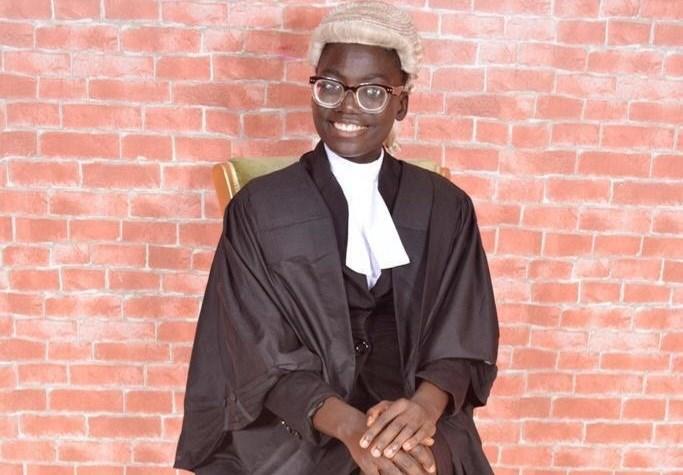
response from the Foundation, I was given a grant which revived my hope and vigour and within a few days of the grant I was able to pay my school fees and also get reading materials, textbooks and satisfy other needs with the help of family and friends.

Conclusion






To benefit from a scheme, grant or curry favour generally, it is often believed that you need connection, a foot in the door, a person on the inside. I probably would have continued believing in that stereotype if I had not come across RDSF. Just by following due process and making a standard application, RDSF came through for me without caring who I was or who I knew; all they cared about was my desire for education and they strived to keep that dream alive and for that I would always be grateful.
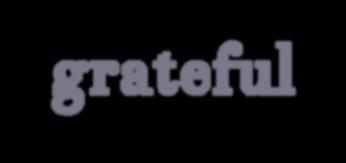

THINKING ALOUD | OCT - DEC 2022 40
R D S F
RDSF came through for me without caring who I was or who I knew; all they cared about was my desire for education and they strived to keep that dream alive and for that I would always be grateful
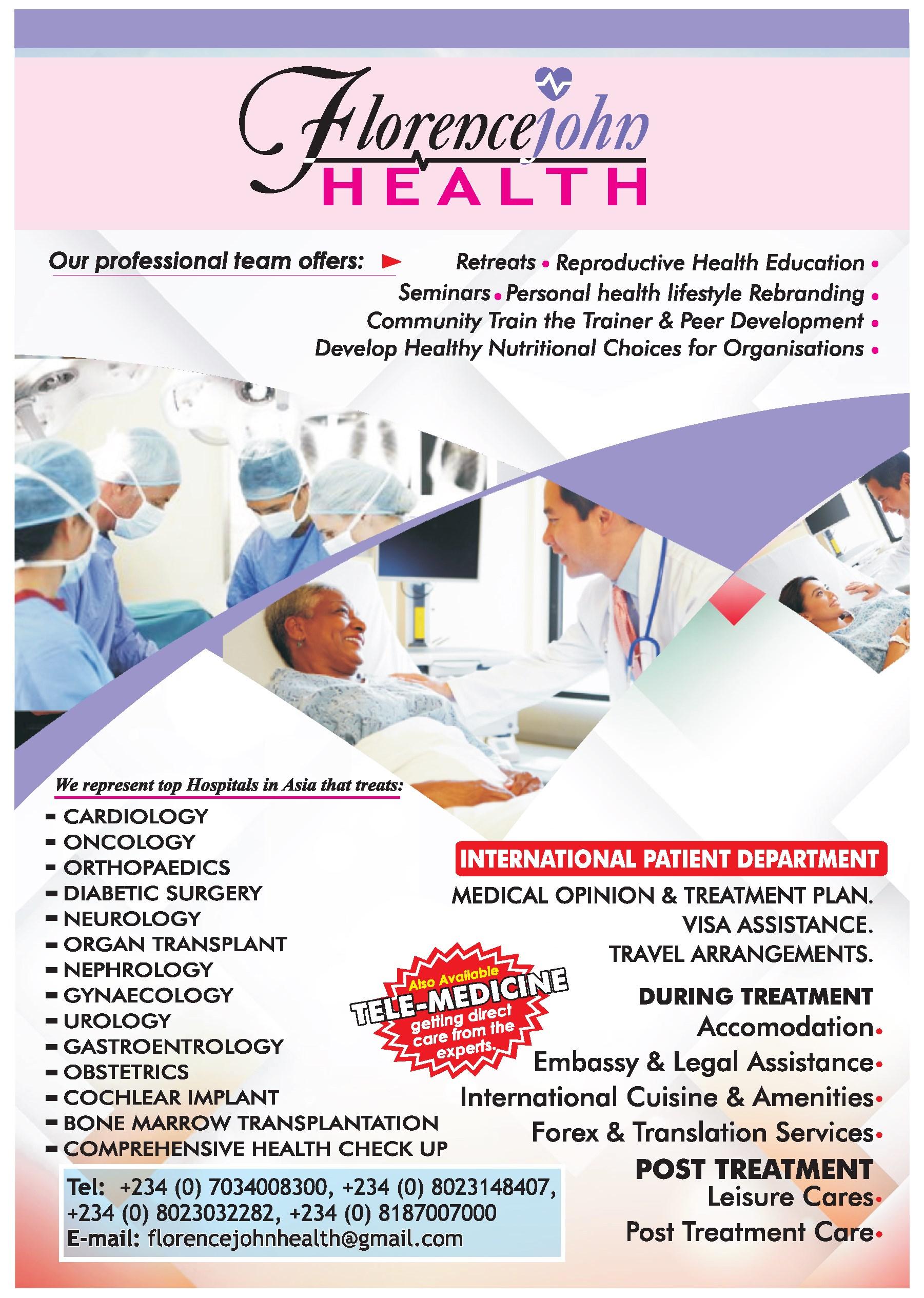
BETTER KIDNEY HEALTH FOR CHILDREN - WHAT EVERY PARENT SHOULD KNOW

Kidney disease affects millions of adults and children worldwide. The world Kidney Day 2022, celebrated on March 10th focused on bridging knowledge gaps to lead to better kidney care through increased education and awareness about kidney health. Understanding the important role of the kidneys and preventing potential health problems, can prevent immediate and long-term consequences.
In childhood, kidney diseases can occur at any age and affects infants, children and adolescents. These can threaten well being, interfere with growth and development, and even sometimes require a transplant. They range from treatable disorders without long term consequences to life- threatening conditions.
HOW KIDNEYS WORK
The kidneys are part of the waste collection and disposal system of the body. Through very small, microscopic units, they remove extra water and waste products from the food eaten and in turn return useful chemicals like sodium, potassium and phosphorus back to the blood. The extra water combines with other waste to form urine. In order to achieve this, the
entire blood in the body gets filtered about 400 times in a day through the kidneys. The kidneys also control the chemical balance of the body, help regulate blood pressure, maintain healthy bones by controlling the calcium balance of the body and stimulate the bone marrow to produce red blood cells through the production of the hormone, erythropoietin.
WHAT ARE THE CAUSES OF KIDNEY DISEASES IN CHILDREN?
Causes of kidney disease in children include: birth defects (problems that occur while a baby is developing in the mother’s womb), hereditary causes, nephritis (inflammation of the kidneys which can be caused by bacteria, viruses, toxins or autoimmune disorders), nephrotic syndrome and kidney stones.
From birth to four years, birth defects and hereditary diseases are the leading cause of kidney failure and thereafter, nephritis, hypertension and systemic causes like systemic lupus. Birth defects affecting the urinary system are a group of abnormalities affecting the kidneys or other structure of the urinary tract which includes the bladder, the tubes that carry urine

THINKING ALOUD | OCT - DEC 2022 42
R D S F
from each kidney to the bladder (ureters) and the tube that carries urine from the bladder out of the body (urethra). These abnormalities are important because they can result in recurrent urinary tract infections or a build- up of urine in the urinary tract (due to obstruction of urine flow), which may damage the kidneys. Severe forms can result in life-threatening kidney failure or end stage renal disease (the stage at which a regular course of long-term dialysis or kidney transplant is needed to maintain life) both in children and adults.


Treating chronic kidney failure. Treating chronic kidney failure includes blood pressure control, dietary restrictions, dialysis and eventually kidney transplant.
HOW TO KNOW IF A CHILD HAS KIDNEY PROBLEMS
The complaints of children with kidney problems are diverse and depend on the age of the child. They include:

• Swelling around the eyes, face, feet and ankles.
• Burning or pain during urination.
• Significant increase in frequency of urination.

• Recurrence of night-time bedwetting (in children who have been dry for several months).


• Blood in the urine.
• Passing small quantities of urine.



• High blood pressure.
• Stunted or poor growth.

• Poor stream or dribbling of urine (for boys) soon after birth.
Kidney failure (Renal failure): Kidney failure (Renal failure) is when the kidneys slow down or stop the removal of excess water and the filtration of wastes from the body. This causes a build-up of water, waste products and toxic substances in the blood. Kidney failure can be acute or sudden, (also called acute kidney injury or acute renal failure) or chronic, usually happening over a period of time. Some causes of acute kidney injury include:
• Bacterial infection.
• Sepsis.
• Heart failure.
• Immune nephritis.
• Poisoning.
• Drugs.
• Shock (from severe dehydration, severe infection, blood loss, severe burns or trauma).
Treatment of acute kidney injury. Treatment of acute kidney injury involves correcting the underlying cause and, in some cases, dialysis.
Chronic kidney failure. Chronic kidney failure is the deterioration of kidney function over time and it is usually long lasting or permanent.
In infants, children and adolescents, it can result from acute kidney injury that fails to improve, birth defects, chronic kidney disease, chronic severe high blood pressure.
High blood pressure in children is mostly caused by kidney diseases. If kidney disease is suspected, the doctor will order some tests which include:
• Urine test to check for protein which may be a sign of kidney damage.
• Blood tests to check for presence of waste or chemical imbalance.
• X-rays.
• Ultrasound scan.
• CT scan.
• Kidney biopsy, a procedure to remove a small piece of kidney to be examined under a microscope for signs of damage or disease and probably refer to a paediatric nephrologist.

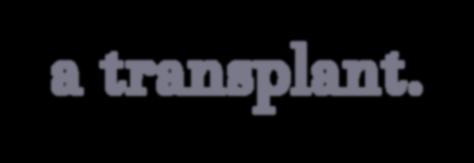
BETTER KIDNEY HEALTH FOR CHILDREN


Preventing kidney disease in children requires awareness and vigilance. Parents and caregivers can do several things to help their children stay healthy and prevent chronic kidney disease.

43 A QUARTERLY MAGAZINE
In childhood, kidney diseases can occur at any age and affects infants, children and adolescents. These can threaten well being, interfere with growth and development, and even sometimes require a transplant.
Preventing kidney disease in children requires awareness and vigilance. Parents and caregivers can do several things to help their children stay healthy and prevent chronic kidney disease.
R D S F
Some of the ways this can be done are listed below: Maintain a healthy weight. This can help prevent diabetes, obesity and high blood pressure. Diabetes is the leading cause of chronic kidney disease in adults. Parents should ensure that their children eat healthy, well-balanced meals. Eating well helps children maintain a healthy weight which will reduce their risk of obesity, which in turn reduces their risk of chronic kidney disease. Obese children are also known to develop high blood pressure and diabetes at a much younger age and these are added risk factors for chronic kidney disease.
Regular exercise. Regular exercise and physical activity can help a child feel better, improve and maintain health. It can also help maintain a healthy weight and a normal blood pressure. As a start, children should be encouraged to take part in school sports, and families should become more active.

Reduce salt. Sodium is needed for the body to function properly, but too much sodium makes the body hold on to more water. This extra stored water can raise blood pressure. High blood pressure can damage the kidneys as the child gets older and is the second leading cause of chronic kidney disease in adults.
Serve water. Water is important for good kidney health and helps the kidneys remove waste from the body. Water also helps blood travel freely around the kidneys and the rest of the body. Making sure children drink enough water is important especially when they are active and the weather is warm. Sugary drinks should be kept to a minimum.
No smoking. Children should be discouraged from smoking during their teenage years when they are more likely to experiment with cigarettes. Cigarette toxins can damage blood vessels, slowing blood flow to important organs like the kidneys.
Beware of over- the -counter drugs. There is a tendency for parents to buy over-the –counter drugs for their children. Many drugs, especially antiinflammatory drugs, can be harmful to the kidneys.

Health checks. If a child is healthy, an annual check-up should be sufficient. It is important that during these checks, blood pressure measurement, blood sugar levels and dipstick urine tests are done. Urine test and blood pressure check may show early signs of kidney disease.
Conclusion









The overall increase in kidney disease in children mimics that of adults due largely to the increased occurrence of obesity in children. Prevention of kidney disease is paramount. The aim of prevention is to eliminate or reduce exposure to factors that cause kidney disease. In adults, preventive measures are limited to a few conditions such as diabetes and high blood pressure.

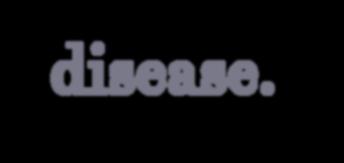



In children however, there is a wide range of conditions that can cause kidney disease, some of which can start even before the baby is born and if not recognized early, can cause kidney damage and progress to chronic kidney disease or end stage renal disease in childhood, adolescence or later in adult life.

Dr. Sylvia C. Olomu is a Paediatric Nephrologist and head of Paediatric nephrology unit at the Irrua Specialist Teaching Hospital, Irrua. She is an examiner for the West African College of Physicians in Paediatrics and an honorary Senior Lecturer at the Ambrose Alli University Ekpoma.
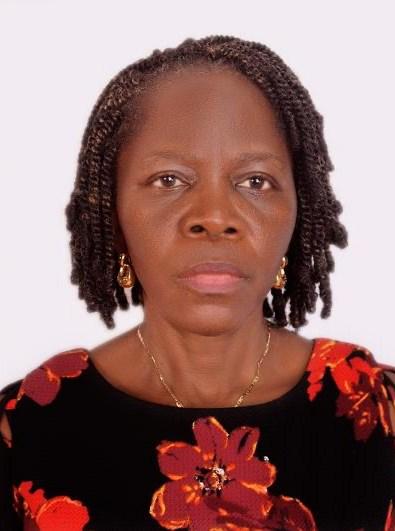
THINKING ALOUD OCT - DEC 2022 44
Regular exercise and physical activity can help a child feel better, improve and maintain health. It can also help maintain a healthy weight and a normal blood pressure.
Prevention of kidney disease is paramount. The aim of prevention is to eliminate or reduce exposure to factors that cause kidney disease.
R D S F

FITNESS PERSONALITY HIGHLIGHTS
 #1. Rukky Tongo
#1. Rukky Tongo
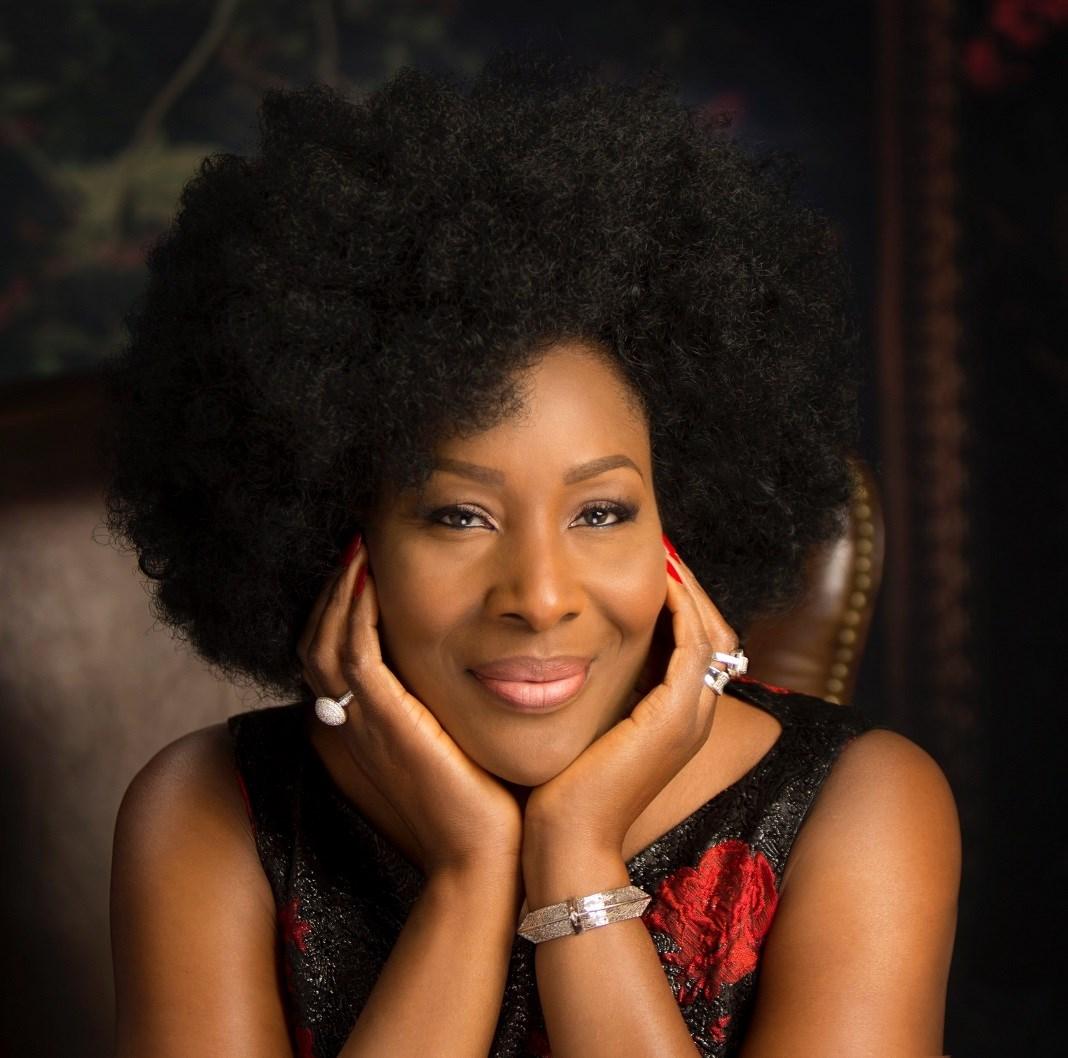
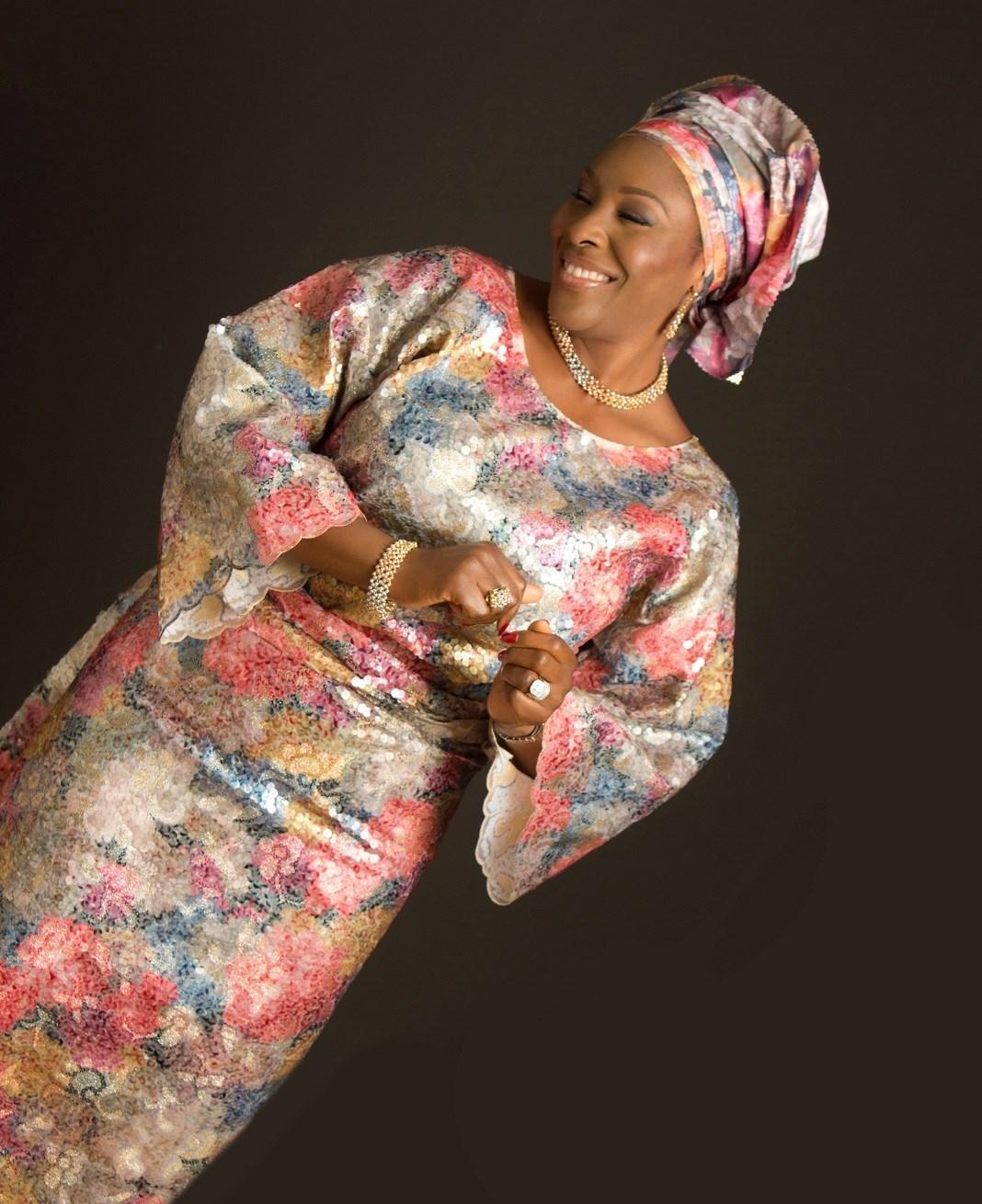
Q2:Howimportantarefoodchoicesinyourfitness journey?Howdoyoubalanceeatinghealthyandworking out?
I am very watchful over my food choices because I have realised that I am prone to obesity- even water would make me fat! So I stick to chicken, fish, cruciferous vegetables like Cauliflower, Broccoli, Kale etc., lots of beans- moi- moi especiallyandseeds like almonds.
Rice and other starchy foods are no go areas for me, I substitute those with either Bulgar Wheat or Quinoa. I go for fruits that are low in fructose such as blueberries, strawberries, carrots, avocados etc.
And lots of water- a minimum of 2litres a day. With this eating structure and my regular dance classes i find myself fitting comfortably into clothes i could only wear 10 years agowith the aidof body trimmers!
Q3:Whatadviceortipsdoyouhaveforbusyexecutives strugglingtojugglefitnesswiththeirbusyschedule?
My honest advice to busy business executives is to make time for an exercise regimen, even if it is for just 20 minutes each day. Apart from controlling weight, this simple action would minimise the risk of heart failure, manage blood sugar and insulin levels, improve mental health and keep your judgment skill sharp as you age. It could be early before your day starts or after work in the evening. A 20 minute consistency is all there is to it. It takes a lotof will power, but trust me, it is doable.
Q1:Whatdoes ‘livinghealthy’ meantoyou?Howdoyou stayfitandhealthy?
Living healthy to me means taking deliberate steps and putting actions in place that help me achieve optimum health. So I stay fit and healthy by taking responsibility for my decisions and making smart health choices dailyeating right, partaking in a beneficial exercise and ensuring I rest adequately.
I have mastered the art of eating intelligently- intuitive eating; eating only when I am hungry and ingesting just enoughto quenchmy hunger.
I have also realised that physical exercise is a very important component of keeping healthy so have engaged in various forms of exercises in the past but have now singled out dance because I leave each class feeling happy, feeling confident and feeling very capable. I also noticed it improves my flexibility.
THINKING ALOUD | OCT - DEC 2022 46
R D S F
Dipo Ojo
#3. Sophie Pokima

Q1. How can corporate entities/organizations help employeespaymoreattentiontohealthandfitness?
Encourage breaks at intervals for employees to stretch their feet, have a constant campaign to sensitize members of staff and register or pay for annual subscriptions for fitness clubs andgym membership
Q2.Howimportantistheuseofelectronictrackersin stayingfit?Whatelectronictrackersdoyouuse?Fitbitor Apple?
As with all things, accountability is always important to measure performance so does electronic trackers. I use fitbit or any smart wristwatch.
Q3.Doyouconsiderexercisesomethingonlyfortherich andeducated?
It cuts across all levels of the economic class andthere will always besome exercise available irrespective of financial status.
Absolutely right. I struggled a lot with this when I was working. You have to be very deliberate about this. Lagos for example is a very stressful city with all the traffic jams. Think outside the box and do something that works in your environment. You have to find the time otherwise you will never getto exercise.


More and more, most corporate organizations are including gyms in their offices. If you do have these, try taking a 45 minutes workout during your break period. If you have a driver, and you are stuck in traffic, put on your trainers, arrange with your driver to wait at a pre determined spot (whoever gets there first) on your route and take a brisk walk.
There are little things you can also do, like standing up to work instead of sitting down (with the help of those elevated desks). Take a 5 minutes walk around the office every 2 hours or so. I find you must be very deliberate on your meals otherwise you will find yourself eating junk food when you are very hungry. It helps if you prepare a healthy meal andsnacks to take along to work.
47 A QUARTERLY MAGAZINE
#2.
Q1.Mostwomeninthecorporateworldstrugglewith work-lifebalanceandhavelittleornotimetoworkout and/oreathealthy;whatsolutionsdoyourecommendto helpwiththis?
R D S F
Don’t skip your lunch, it makes you overeat your dinner whichis not good.
Q2. What advice would you give an individual who is about to start working towards a healthier and fit lifestyle?
Eat a balanced healthy meal. Avoid eating after 7pm and dinners should be light. Don’t skip meals. Go for reduced quantity and eat lots of fruits. Drinking water is key. I drink at least 3 liters of water per day. Find an exercise that you enjoy doing, start small and build up and be consistent with it. Have a regular sleeping habit. Aim for atleast 6 hours of sleep a day.
Q3. Overall well-being is very important; can you share some tips on managing mental health, emotional health andphysicalwell-being.
We have talked a bit about physical well-being as it relates to exercises. Know your body. Monitor your blood pressure and sugar level and schedule checkups with your doctor. Don t wait till you fall ill. Mental and emotional health is very important especially in these internet dominant world. Stay away from toxic discussions and negative people. Spiritual meditation is very important.
Q1.Whatisyourphilosophyonhealthylivingandfitness? whatisyourideaofaperfectmeal?
My ideology of healthy living is very simple, treat your body like a temple and your body will take care of you. The only way to do this successfully is to know and fully understand yourself.
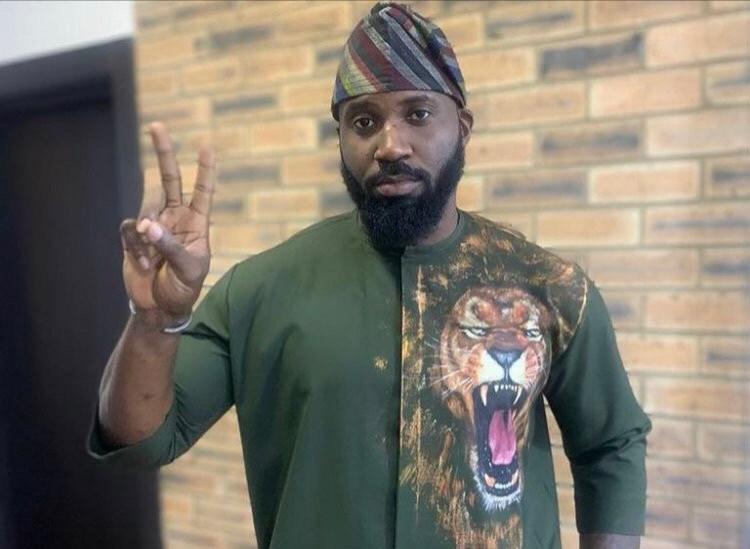
Self love is also important because when you love and respect yourself, you will do things to improve and evolve as a human being. In all honesty, there is no such thing as a perfect meal, only healthy choices when it comes to eating. I recommend a balance between carbs, proteins andvegetables withenoughalkaline water.
Q2.Alotofpeopleprocrastinateandstrugglealoton workingout.Whattipsforworkingoutcanyouadvice?
People who have these struggles are yet to appreciate the value of a fitness regime to their overall health. If you find yourself struggling to maintain a fitness regime, you need to do a self-evaluation with focus on self-love and self-respect. Know that working out is one of the best forms of taking care of your body which will also impact positively onyour mental health.

Once you understand the value and benefits, start with setting small fitness goals which are easy to achieve. Do something each day to get you moving, stay active and challenge yourself to keep going. When you start taking small actions and taking one day at a time, progressively, you will be motivated to take bigger steps and eventually settle into a regular regime.
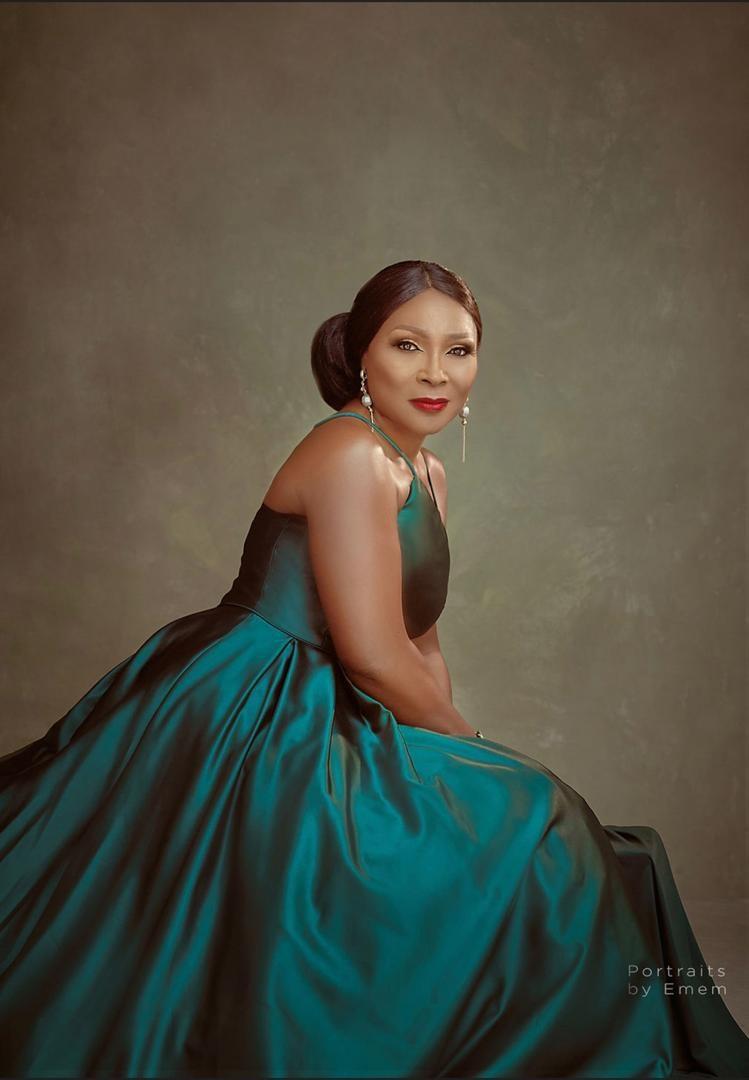
THINKING ALOUD | OCT - DEC 2022 48
#4. Olukoya Ajayi
R D S F
These are five simple guidelines on a Naira note that will help you to differentiate a counterfeit Naira from a genuine one:

1. Check the texture. 2. Observe the gold foil. 3. Use water or other liquid. 4. Examine the ribbon/thread. 5. Use mercury bulbs.
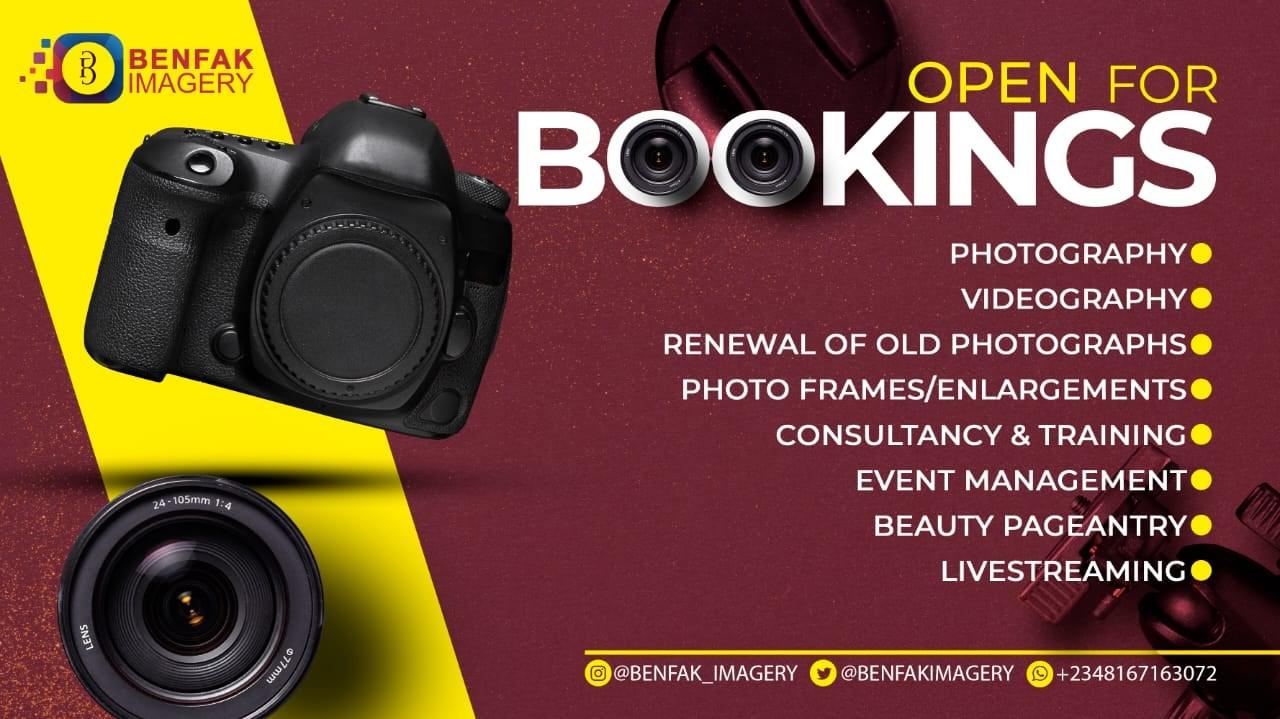 OLD Naira Notes NEW Naira Notes
OLD Naira Notes NEW Naira Notes
THE GIFT OF WISDOM
God’s wisdom swallows mysteries and makes a joke of puzzles
This is the wisdom encoded in your purpose
The manifestation of God in your expressions. Wisdom is not afraid to try new things or reflect on the old
It is found in both the young and the old Wisdom is not necessarily education, A truck loads of titles doesn’t equal ‘’wise,’’ It is not found in labels Experience is no proof of wisdom, yet Wisdom is what you learn from experience.
Sofia speaks with enlightened tongues, her sales copy is in your face
Wisdom is not hiding from you, she is crying out for somebody to pay attention Wisdom is a campaigner blasting on the streets of knowledge
From the beginning there was Sofia
The ingenuity that aided the master in separating light from day, The timeless initiator of time who knew morning and night were necessary

She was delicately woven into proverbs Solomon valued her more than jewels and I know; She is not one thing, wisdom is many-sided yet a unified expression of God, The gift that comes wrapped in truth. She is the womb of greatness In my mother’s tongue she is the proper hand washing that makes a child dine with the elders. Wisdom is God’s nature.
Perspective-shaping with her sense of sight, Without apologies, she challenges your mind with uncommon insight.
looking beyond what is visible is her thing, perceiving matters of the heart beyond what is in sight.
Elevated, she makes decisions above the world’ s small view.
There is a wisdom that see beauty in the eye of the storm, whose presence unveils ancient truths in the middle of tempests
Wisdom is the ageless game changer, the sculptor of bigger pictures, wisdom is a glimpse into the master’s soul.
A touch of godly wisdom wakes you up, She is that deep-seated conviction giving wings to courage.
Her breath is comfort-giving, anxiety-killing
She is the understanding carrying discernment in her backpack Wisdom is not hidden from you. Yes, there are diverse opinions on what is right, but wisdom smells what is wise Wisdom is knowing your truth, the mirror of your identity
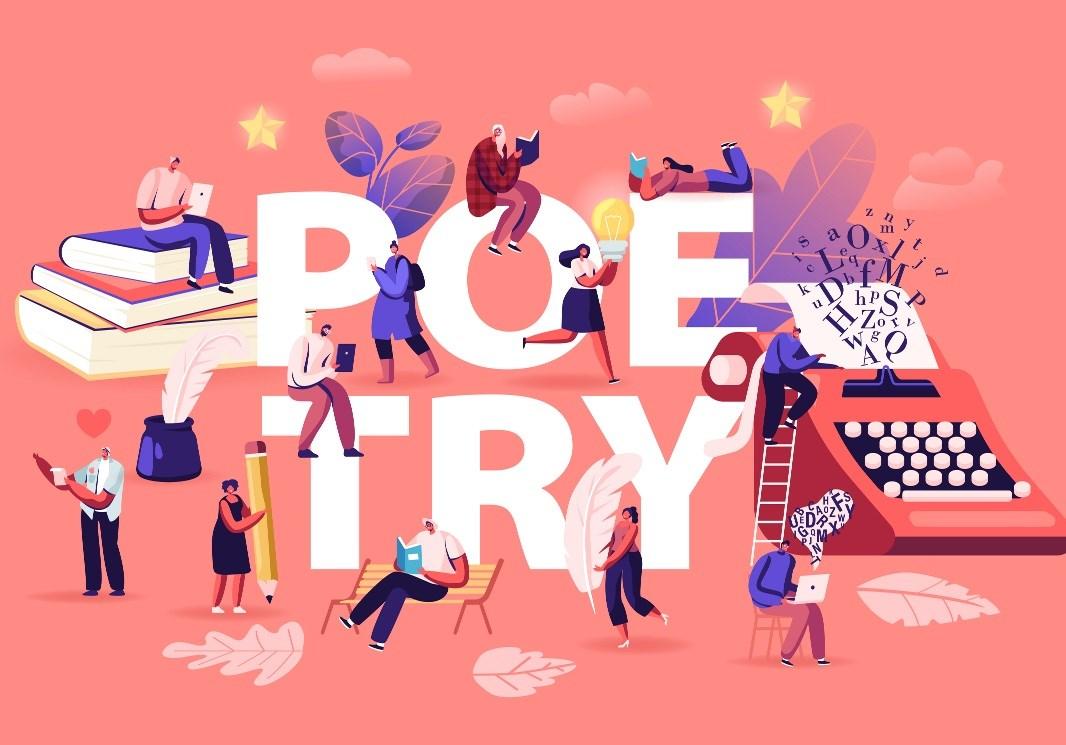
Wisdom is not always dramatic; you can meet her in a whisper Yes, the voice within speaks wisdom.
Wisdom is most valuable An investment proven all of life
A rich man once said to buy it and sell it not He said at all cost, get wisdom.
Wisdom is a big deal! In the school of proverbs, she is the principal To be wise is to never stop asking the right question
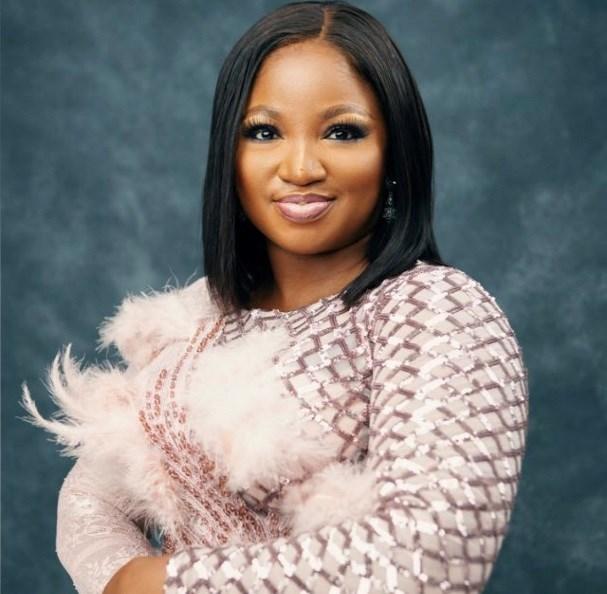
Wisdom is received by asking, asking the true giver Know that Sometimes wisdom takes time, And every day of our lives is a journey of ‘’wiser’ May you and I never stop growing in wisdom.
Shola Amaraibi is a Poet and communication strategist. She is the lead communication strategist at Piesocial Pro: a digital agency that helps businesses create and implement strategies in marketing, PR, copywriting, and digital project execution. www.olusholaamaraibi.com
THINKING ALOUD OCT - DEC 2022 50
R D S F
the rehoboth dream solid foundation board of trustees
Rear Admiral Oladeinde (‘Deinde) Olusoga Joseph was born at AraMoko, Ekiti State into the humble family of late Mr. Joseph Owolabi and late Mrs. Ajibabi Owolabi on the 9th of May 1948.
He enlisted into the Nigerian Navy in July 1967 and later graduated from the Nigerian Defence Academy Kaduna and was commissioned as a Sub-Lieutenant in July 1971 in India. He received professional training as a naval officer in India, United Kingdom and the United States of America. Rear Admiral Joseph is a graduate of the Nigeria Command and Staff College Jaji and the prestigious National Institute for Policy and Strategic Studies Kuru.
As a professional naval officer, he went through all the ranks in the Navy until he was promoted to the full Rear Admiral rank in 1998. While in the Navy, he had 4 sea commands, which included that of NNS Aradu (the Navy’s flag ship), 2 Training bases and 2 Operational bases. He had 2 tours at Jaji Staff College as Chief Instructor and Director of the Naval Faculty. He was also the Military Governor of Ogun State between 1990 and 1992. His last job was Chief of Navy Personnel at Naval Headquarters until he retired in June 1999.
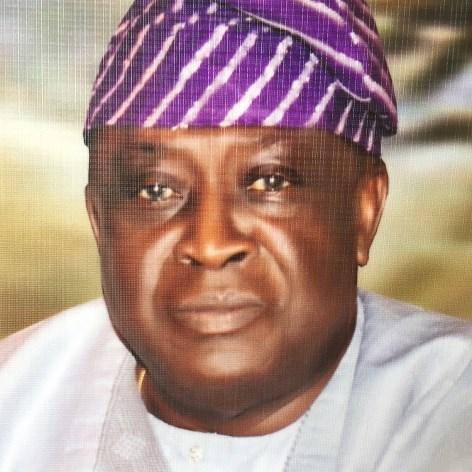
Married to Mrs. Katherine Lolade Joseph since April 1975, Rear Admiral ‘Deinde Joseph is blessed with 3 children; Toyin (now Mrs. Borisade), and the boys Seyi and Jide, all University graduates. His hobbies are photography, reading and he is a handicap 9 golfer. A practicing Christian of Methodist Church of the Trinity, Tinubu since 1967, he has a passion to help the less privileged in the society. Rear Admiral Joseph is a recipient of the National Honour of the Commander of the Order Of the Niger (CON), and brings his experience and goodwill to the Foundation as the Chairman, Board of Trustees of the Rehoboth Dream Solid Foundation.
Ms. Ketumi Alasa studied Computer Science in the then Sheffield City Polytechnic now known as Hallam University, Sheffield, England. Worked in various capacities as an IT professional in leading multinational Oil and Gas, Insurance and Iron and Steel companies in Nigeria for 28 years cumulatively. After a successful and rewarding career in the corporate arena, she took an early retirement and launched out to fulfil her entrepreneurial dream in real estate and retail management. As a real estate entrepreneur, she has made remarkable progress in development and management of properties. On the retail front, she runs a chain of interior decoration shops.
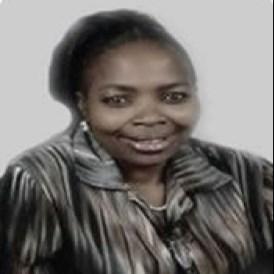
She is a practicing licensed Canadian Immigration Consultant and a certified Canadian Education Consultant and Foreign Student Recruiter for Canadian schools.

She is the CEO of Canada Outreach Immigration and Academic Consultancy, Managing Director of J-Three Sixteen Associates and Managing Director of Kay Kay Enterprise Interiors. She also serves on the Boards of a couple of christian and philanthropic organizations.
Blessed with five children, she enjoys playing the game of Golf. She served as a Lady Captain of IBB Golf and Country Club.
She is a Christian with a deep passion and commitment to supporting Missions work and the under privileged. Ms Ketumi Alasa is also a Trustee of the Rehoboth Dream Solid Foundation.
51 A QUARTERLY MAGAZINE
Deacon Samson Madu Igbokwe is a 1983 B.Pharm Graduate of Pharmacy from the former University of Ife (Unife), now known as Obafemi Awolowo University (OAU). In addition, he gained a Masters in Business Administration Degree (MBA) from the University of Lagos (Unilag) in 2000. He also acquired a Certificate of Proficiency in Information Systems Management (CPISM).
Shortly after his Youth Service Corp at Military Hospital Lagos, he set up his own pharmacy business at S.W. Ikoyi, Lagos in 1985 which he has been running as Chairman/Managing Director till date. This is a company that supplies and distributes pharmaceuticals to its community and hospitals in Lagos State.
A devout and practicing Christian, he gave his life to Christ on March 31, 1991 in The Redeemed Evangelical Mission (TREM), Akoka. Since then, he has served in various capacities in TREM as House Fellowship Centre Leader, Zonal Leader, Assistant Area Co-coordinator and Financial Secretary/Treasurer of Caleb Group of the Christian Men Fellowship.
He is currently serving as the Chairman Hospital Visitation Ministry in TREM. He is a member of Pharmaceutical Society of Nigeria (PSN) and a Treasurer at Ikoyi Pharmacy Community Zone. He has passion for contributing to his community, and often assists in reaching out to orphans, the fatherless and widows in the community.
Periodically, he visits in a group and prays for the sick in hospitals in Lagos, ministering to their spiritual, physical and material needs. He is happily married to his amiable wife Mrs. Roseline Igbokwe and they have 5 children. Deacon Samson Igbokwe is a Trustee of the Rehoboth Dream Solid Foundation.
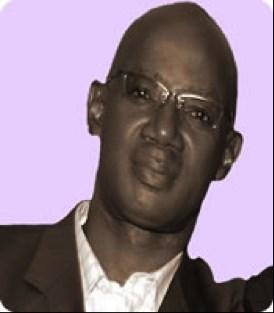
She is an alumna of Sikkim Manipal University (SMU),
She holds a Certificate of Proficiency in Information Systems Management (CPISM), Advanced Diploma in Systems Engineering (ADSE), Certificate in Strategies for Managing and Collecting Data (LBS) and Certificate in Core Sales Skills (LCT). She worked with Texaco Nigeria Plc as well as Chevron Oil Nigeria Plc as Food Mart
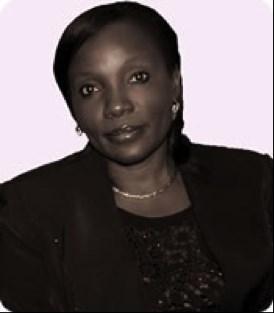
Senior Retail Business Consultant, South, and then MRS Oil Nigeria Plc as District Sales Manager, Southwest
Credit Control Manager for Nigeria, Aviation Commercial, Retail Sales Manager for Southeast/Southwest Nigeria and Head, Sales & Marketing. Nigeria.

A hard worker with enthusiasm for excellence, in 2006 she won the ‘African Pakistan Global Downstream 2006 Cultural Award, of Customer Facing and Market Focused’ in Chevron, having executed superior and consistent execution and sales implementation of all programs, processes and systems. She had focused the department’s organization around achieving the best business financial targets through an agreed set of Profit & Loss control measures in all MRS Oil Nigeria Plc service stations in Nigeria.
She is an ordained minister with The Redeemed Evangelical Mission (TREM): and at various times has held the following positions: Assistant Secretary, Young Women Fellowship; Assistant Secretary, Christian Women Fellowship and Chairman Disciplinary Committee of the Evangel Voices Choir and Team Lead with the Christian Women Fellowship. Deaconess Roseline Igbokwe is also a Trustee of the Rehoboth Dream Solid Foundation. She is blessed with (5) five children.
THINKING ALOUD OCT - DEC 2022 52
Deaconess Roseline Igbokwe was born on November 2, 1965 in Ikoyi, Lagos, and is married to Pharmacist Samson M. Igbokwe.
Gangtok, India and the University of Lagos (UNILAG); Bsc. in Applied Information Technology, Business Administration and Masters in Business Administration(MBA) from the same institution.
Supervisor,
Nigeria,
Pastor (Dr.) Joshua Gbadebo Opadiya is the Senior Pastor of Every Nation Church Sydney, Australia, a worldwide family of churches and ministries. He is currently serving as the Hub Leader of the Oceania (Australia, New Zealand, Papa New Guinea and Fiji) overseeing the ‘Every Nation churches and ministries in the Oceania region.
Pastor (Dr.) Opadiya previously lectured in the Lagos State University, Nigeria for 6 years, before moving with his family to Innsbruck in Austria where he lived for almost 6 years. Thereafter, the family moved to Sydney Australia in 1999 where together with his wife, Dr. Mrs. Opadiya started the ‘Every Nation Church.
He received his bachelor’s and master’s degrees from the reputable University of Ibadan in Nigeria and holds a doctorate degree in Ecotoxicology from the Technical University, Innsbruck, Austria.


Pastor (Dr.) Opadiya has a burden to raise godly leaders and see the nations return to Jesus Christ. He has travelled and ministered in several nations worldwide.
Pastor (Dr.) Opadiya's passion is to connect with young adults and adults alike who are leaders, peacemakers and bridge builders in their colleges, universities and in their communities. His life has been dedicated to this cause, reaching out, equipping, counseling and mentoring. He is also the dean of Every Nation Leadership Institute, a part-time program that is purposefully designed to provide discipleship training and biblical teaching for people from all walks of life. Pastor (Dr.) Opadiya and his wife have been married for 31 years. They are blessed with children. He is a Trustee of the Rehoboth Dream Solid Foundation.
Dr. (Mrs.) Yinka Opadiya is a senior pastor with Every Nation Churches and Ministries. Alongside her husband Pastor (Dr) Joshua Opadiya, she oversees the multi-congregational Church organization in Sydney, Australia – a church with members from diverse cultures, age groups and professions.
She is a teacher and motivational speaker with a passion for teaching about God's love and His purpose for humanity. She is also passionate about women and youth ministry; and is committed to mentoring women and young girls.
Her heart-cry is to see ‘the Church’ respond to the Great Commission of ‘making disciples’ and transforming nations. A graduate of the prestigious Universities of Ife and Ibadan in Nigeria, she also holds a Doctorate degree in French (Women Literature) from the University of Innsbruck in Austria. She had worked as a French Lecturer in the Lagos State University and in various schools in Sydney Australia. Dr. (Mrs.) Yinka Opadiya been married for 31 years. They are blessed with children. She is a Trustee of the Rehoboth Dream Solid Foundation.
Mrs. Ronke Osikoya holds a law degree (LLB) from the University of Lagos and an MBA (1988) from the same University. She is a Certified Trainer for the Commonwealth Association on Corporate Governance and has facilitated on the Directors course on Corporate Governance. She is a Management Consultant that co-runs a management consulting firm, Pedion Partnership Limited.

Her values are strongly shaped by her Christian faith and she believes very passionately in supporting the under-privileged, particularly children, which accounts for her involvement with the Foundation.
Mrs. Osikoya is a Trustee of the Rehoboth Dream Solid Foundation and lives with her husband and 2 sons in Lagos, Nigeria.

53 A QUARTERLY MAGAZINE
Mrs. Abimbola Komolafe is a devout Christian who was ordained as a Deaconess of the Redeemed Christian Church of God (RCCG) in the year 2000 and as an Assistant Pastor in August 2013. She served as a Coordinator in the Teens ministry of the Resurrection Parish of the RCCG in Lagos where her passion for supporting the education of the less privileged was birthed .
She is a Chartered Accountant and Chartered Banker and is a Fellow of the Institute of Chartered Accountants of Nigeria (ICAN) and a Fellow of the Chartered Institute of Bankers of Nigeria. Mrs. Bimbo Komolafe has taken various management, Leadership and professional courses, within and outside Nigeria and is an Alumna of the Lagos Business School. She worked for 9 years in a reputable Merchant Bank in Nigeria and thereafter worked for 20 years with one of the leading Oil and Gas companies in Nigeria. She currently works as a Principal Consultant for Threshold of Trust Nigeria Limited.

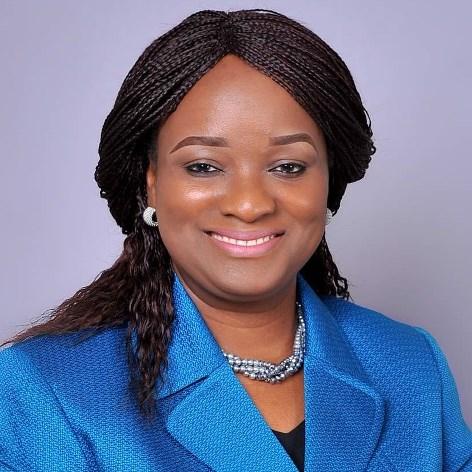
Married to Rear Admiral Kehinde Komolafe (Rtd) who is also an Ordained Pastor of the RCCG Nigeria, they are blessed with 3 children. Together with her husband, they are committed to providing financial support to as many less privileged students as they can accommodate. Mrs Bimbo Komolafe is the founder and Executive Secretary of the Rehoboth Dream Solid Foundation.
Rear Admiral Kehinde Komolafe (Rtd), is a highly revered and distinguished military officer who served meritoriously with impeccable records in the Nigerian Navy. He graduated from the Nigerian Defence Academy in 1980 and was commissioned as a Naval Officer a year after. Due to his quest for knowledge and passion for competence, he proceeded to study at the University of Nigeria, Nsukka where he graduated in 1985 with a B.Sc. Degree in Accountancy. He attended several courses nationally and overseas and witnessed consistent career growth during his active years in the military.
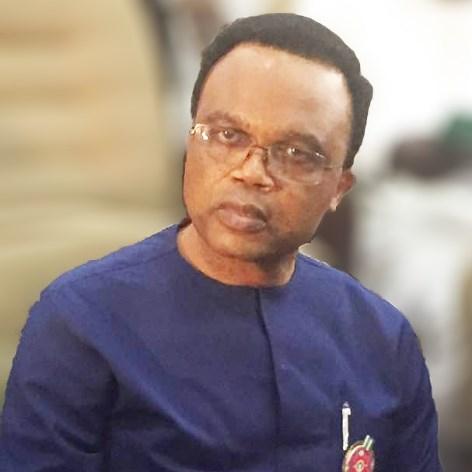
Rear Admiral Komolafe is a change agent with a commitment to providing transformational leadership and ensuring realignment of processes, operations, resource and people on various integrated fronts for optimum value creation. He held various sensitive positions in the Navy before his voluntarily retirement from the Service after 35 years of meritorious service. He presently sits on the Board of many prestigious organizations. Beyond his Military career, Rear Admiral Kehinde Komolafe (Rtd.) is a lover of God and a Pastor. He is married to Mrs. Abimbola Komolafe and they are blessed with 3 children.
Charity to the less priviledged Skills Acquisition programmes Raise funds for the needy

Supporting the poor










THINKING ALOUD OCT - DEC 2022 54
We appreciate every support over the years and your continued support and commitment that has made it possible for us to continue to provide succor to the less privileged in our society. We pray that God will bless you and grant you success in all your endeavors.

Donations:
You can make your donations online at: https://www.rehobothdreamsolidfoundation.org/donations
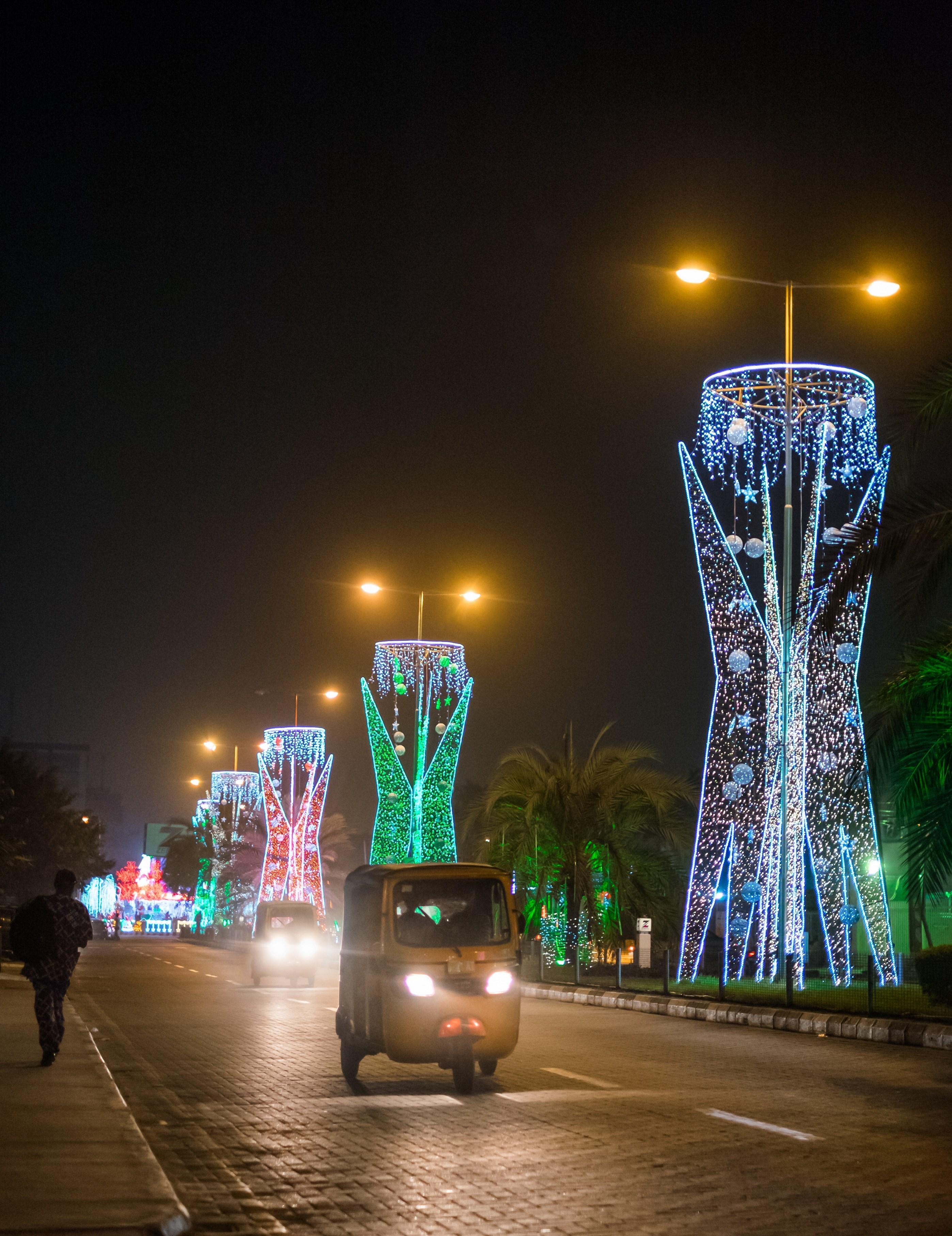





















 Bimbo Komolafe Editor
Bimbo Komolafe Editor





























































































































































































































 #1. Rukky Tongo
#1. Rukky Tongo









 OLD Naira Notes NEW Naira Notes
OLD Naira Notes NEW Naira Notes




















